












Emmanuel Addeh in Abuja
The federal government has opened talks with the African Development Bank (AfDB) for possible funding of the construction of some sections of the Coastal and Trans-Sahara highways in Nigeria and Cameroon.
Minister of Works and Housing, David Umahi, stated yesterday that it was part of the action plan of the federal government to increase the economic opportunities of the nation and enhance the transnational investment process.
Umahi spoke during a meeting with a delegation from the AfDB led by the Director, Infrastructure and Urban Development, Mike Salawou, in Abuja.
The project, the minister said, would provide enduring infrastructure and industries along the corridors and is expected to carry a large network of paved highways that will create good transport environment and trade routes for moving goods and services along the North-south corridors.
Umahi said opportunities for investment in infrastructure development abound along the coastal and Trans-Sahara routes, including opportunities for investment in the hospitality industry, tourism, agricultural production, estates, parks and industrial businesses.
He said that funding would be required to tackle the sections of the highways not yet constructed, awarded, or taken over by concessionaires under the Highway
Development and Management Initiative(HDMI).
"The coastal road is 700km. That is phase one and it is running from Lagos through Ogun state to Ondo State, passing through the coastal states of Delta, Bayelsa, Port Harcourt, Akwa Ibom, and ending in Cross River in 700 kilometres.
“We have spores to the Ogoja road, the one you did, the African Trans-Sahara road that is going to Cameroon. We are sectioning the roads.
“Just last week, we awarded section one, phase one, and phase one is 47.47 kilometres. It's already awarded to Hi-tech Construction Limited. We have phase two, which is about 57 kilometres, taking us from the end of phase one.
“Phase one ends at Lekki Peninsula. It takes us from Ahmadu Bello Way to Lekki Deep Sea Port. Phase two takes us to the boundary between Ogun State and Ondo State. That's about 57km.
"It's going to be available for a number of funders under the lead investor, That's Hi-tech Construction Nigeria Limited. So that is available, and when discussion comes up, then there will be a need for us to meet with Hi-tech and the Minister of Finance Coordinating Minister of the Economy,” a statement by his spokesman, Uchenna Orji, stated.
Earlier, the spokesperson of the team from AfDB, Salawou, said the bank has a mandate to contribute to the sustainable economic development and social
progress of its regional members individually and jointly. He said that the AfDB was therefore prepared as a multilateral institution to offer a robust partnership with the federal government of Nigeria, especially by providing
technical and financial support for the development of road infrastructure in Nigeria.
"So as the African Development Bank, we are ready to assist you. To make it easy for us, we need to have any studies available to
make sure we can support you on this project. “So we are ready. We can see where we can find the resources to support you in structuring the different projects. The dualisation of the road between Nigeria and
Cameroon will foster regional integration between the two countries, because I believe Nigeria is Cameroon's number one trade partner So, we need to reinforce the modernised infrastructure there," he said.
Nume Ekeghe in Lagos and Juliet Akoje in Abuja
Binance, a leading cryptocurrency exchange, has announced its decision to cease operations in Nigeria due to regulatory challenges with the federal government and the Central Bank of Nigeria (CBN) regarding foreign exchange regulations.
Customers have been given until March 8, 2024, to withdraw their funds, following the halt of naira deposits starting from March 5, 2024.
In a statement yesterday, Binance stated: "Binance will discontinue all Nigerian Naira (NGN) services as per the timeline below. Users are encouraged to withdraw NGN, trade their NGN assets, or convert NGN into crypto prior to the discontinuation of these NGN services."
The firm further stated that effective from 9 am on March 8,
2024, any remaining NGN balances in users’ accounts would be automatically converted to USDT at a rate of 1 USDT per N1,515.13. “Additionally, all spot trading pairs against the naira will be delisted on March 7 at 3:00 a.m. UTC, with open spot orders for these pairs being automatically closed.
“Furthermore, Binance Convert, Binance P2P, the exchange’s Auto Invest feature, and Binance Pay will cease support for the naira at various dates and times.”
Binance emphasised that the conversion rate was calculated based on the average closing price of the USDT/NGN trading pair on Binance Spot in the last seven days. The conversion process may take up to 24 hours or longer, with USDT tokens being credited to users’ Spot wallets thereafter.
“Please note that the conversion rate is calculated based on the average closing price of the USDT/ NGN trading pair on Binance
Spot in the last seven days. The conversion may take approximately up to 24 hours or longer. USDT tokens will be credited to users’ Spot wallets thereafter, and users can confirm receipt of the tokens via the Convert History page.
“If users hold less than 0.00000001 USDT worth of NGN in their Spot and Funding wallets, they will each receive 0.00000001 USDT in their Spot wallets after the conversion. Users should ensure they have not selected “Hide Small Balances” in all of their wallets to view their assets after trading ceases.
“Binance Auto-Invest will delist NGN after 2024-03-06 03:00 (UTC). Users may choose to remove the plan(s) beforehand. Otherwise, the next recurring cycle of the aforementioned token(s) will fail,” it added.
Meanwhile, the House of Representatives yesterday resolved to probe the current status of Cryptocurrency, blockchain, digital
Nume
The
The
forex activities.
The bank also noted that the restoration of the licence would occur upon the completion of the one-month suspension, contingent on the Bank of Ghana's confirmation that robust controls have been implemented to guarantee rigorous compliance with foreign exchange market regulations.
In the statement, the regulator stressed the importance for forex market participants to rigorously adhere to the relevant forex market
regulations and guidelines.
The statement from the Bank of Ghana explained: “Bank of Ghana has suspended the Foreign Exchange Trading Licences of Guaranty Trust Bank Ghana Limited (GTB) and FBNBank Ghana Limited (FBN), effective 18th March 2024, for a period of one month, in accordance with section 11 (2) of the Foreign Exchange Act 2006, (Act 723).
“This is as a result of various breaches of the foreign exchange market regulations, including fraudulent documentation in their foreign exchange operations which have come to the attention of Bank of Ghana.
“The licence will be restored at the end of the one-month suspension period once the Bank of Ghana is satisfied that they have put in place effective controls to ensure strict adherence to the foreign exchange market regulations. “By this statement, we caution foreign exchange market players to adhere strictly to the applicable forex market regulations and guidelines.”
Section 11 (2) of the Foreign Exchange Act 2006, (Act 723 stated: “The Bank
However, FBNBank Ghana in a statement disclosed that it was working with the Bank of Ghana to identify and address issues that led to the suspension of its forex trading license by the apex bank.
The bank stated: “We refer to the Bank of Ghana’s announcement of the 30-day suspension of our Foreign Exchange Trading Licence effective March 18, 2024. “We would like to advise our valued customers and esteemed stakeholders that we are working with the Bank of Ghana to remediate the identified trade-related matters.
Continues online
asset transactions in Nigeria to identify threats to national security and gaps in legislative framework and regulations to the detriment of the country.
The House also resolved to probe the online peer-to-peer (P2P) marketplace, utility sharing, the current status of the E-Naira on the global cryptocurrency platform, the cost incurred, processes undertaken, and statutory compliance in creating the digital currency.
In addition, the lawmakers also resolved to engage all relevant stakeholders to initiate necessary processes for establishing required legislation and regulations, while establishing the profile of operators in the sector such as legal status, parent company, and assess their compliance with our existing statutes or complicity in infractions against Nigeria including money laundering, illicit transactions, currency speculation and bad practices.
The resolutions followed the adoption of a motion of urgent public importance on the need to investigate activities surrounding digital assets, international money transfers and other such platforms moved by Hon. Isiaka Ibrahim at plenary on Tuesday.
Presenting the motion, Ibrahim expressed concerns about the national security implications of cryptocurrency transactions through cryptocurrency exchanges including consumer and investor security as these exchanges are said to enable money laundering by criminals and terrorists for their illicit activities.
He said as part of its sweeping market friendly reforms designed to attract substantial foreign direct investment into the countries struggling economy, the present administration reversed the ban on cryptocurrency transactions in Nigeria imposed by the previous administration.

The Chairman of the Body of Benchers (BoB), Rtd Justice Mary Peter-Odili, yesterday, disclosed that a committee has been set up to address issue of conflicting judgments of courts, which was fast bringing disrepute to the judiciary.
Peter-Odili made the disclosure at the swearing-in ceremony of 4,412 new lawyers in Abuja.
The committee according to her comprises of high ranking members of the Nigerian judiciary.
This was just as the Chairman of FBN Holdings and billionaire, Mr Femi Otedola and the President of the Dangote Group, Aliko Dangote, as well as the Minister of the Federal Capital Territory (FCT), Nyesom Wike, have pledged to build staff quarters and students hostels in the Lagos, Kano and Abuja campuses of the Nigerian Law School.
Speaking at the occasion, Mrs. Peter-Odili stated that the body was
working hard to address incidents of conflicting judgments as the Judiciary works hard to regain public trust.
"You have been called to the Bar in a very important historic period in the legal profession in Nigeria; a period when the good, the bad and the ugly are all operating at the same time. The good to the extent that the Supreme Court now has the full complement of Justices required to man the court. The good to the extent that the welfare of Judicial Officers is being taken seriously and the Body of Benchers alongside other relevant bodies is championing the process.
"I have read in the papers about the increased funding of the Judiciary which is a positive development. I hope it will be backed by adequate release of funds as and when due.
"It is a bad period in the sense that the Judiciary is being bashed and public confidence in the legal system is dwindling, occasioned by incessant conflicting judgements by our courts and flagrant indiscipline
amongst lawyers,
"In order to address this vexed issue of conflicting judgments, the Body of Benchers has constituted a Committee made up of ranking members of the Profession to came up with the best possible ways of addressing the concerns. When the Committee completes its assignment and presents its report to the Body of Benchers; it will, upon consideration and approval; be forwarded to the relevant bodies for implementation", she said.
Meanwhile, the former Supreme Court Justice, assured the new wigs that their welfare and remuneration would be given top priority, due to the current economic realities. According to her, young lawyers in private practice are practically left to fend for themselves as their take home pay is so poor that it can barely take care of their basic needs.
"I will like to use this medium to call for an urgent upscale review of the remuneration of lawyers. | am
aware that efforts are being made to improve on the welfare and remuneration of judicial officers, it is my humble opinion that this good initiative should also be extended to the Bar", she added. She accordingly advised them to as lawyers behave with honour and dignity at all times, to show that they are fit and proper persons to be admitted to the bar.
Director General of the Nigerian Law School, Prof. Isa Hayatu Chiroma, commended Otedola, Dangote and Wike for their interventions in the area of structural facilities in some campuses of the Law School across the country.
Chiroma while stating that the Nigerian Law School Headquarters and campuses have equally witnessed in the period under review new constructions, renovations and remodeling of many structures and building that hitherto continued to suffer serious neglect on account of poor budgetary provisions, noted
deji Elumoye in Abuja
Vice President Kashim Shettima on Tuesday announced the handover of 200 newly refurbished stores for use to 400 entrepreneurs at the popular Asero Adire market in Abeokuta.
The beneficiaries will use the stores free of charge for a period of one year, after which they will be charged discounted rates for the use of the facilities.
The gesture is part of efforts by President Bola Tinubu's administration to support small businesses by providing an enabling environment for them to thrive.
Shettima announced the gesture at the second edition of the Expanded National MSME Clinics in Abeokuta, Ogun State.
According to him, the Clinics and related activities hold the promise of easing the way for small businesses to transform their empires or unicorns of note.
His words: "The National MSME Clinics serve as a bridge between us—between the people and the government. They are designed to bring the government in close proximity to the people by convening all regulatory agencies under one roof.
"This journey further reinforces my conviction that our paramount responsibility as a government is to persist in crafting an enabling environment that allows these small businesses not only to thrive but also to expand their horizons".
Assuring that the Federal Government, in collaboration with partners, will not rest on their oars until small businesses reach the heights of their potential, the Vice President noted that the overall objective is to "foster an ecosystem where innovation flourishes, where the entrepreneurial spirit of Nigeria shines brightly on the global stage, and where our collaborations yield immense dividends."
He expressed confidence that with little support, MSMEs across the country can deploy their talents, creativity and boundless energy to building more viable enterprises.
Shettima paid glowing tributes to the Ogun State government for their cooperation in the project, describing the state "as a guiding force in the Federal Government's commitment to supporting enterprises and empowering their owners."
He noted President Tinubu's vision for the nation which he said "relies on exploring the industrial capabilities
the N1.8trillion it was listed on NGX.
Trancorp Power now above Transcorp Hotels Plc with over N1 trillion and Transcorp Incorporated Plc with N701.99 biillion in market capitalisation as of March 5, 2024.
Within two days, the market capitalisation of Transcorp Power
has added N378 billion following N50.4per share or 21per cent gain in its stock price.
Trancorp Power was listed at N240 per share and closed at N290.40 per share. The leading power generation company gained 10 per cent on the first trading day. It appreciated by 10 per cent to reach N290.40 per share yesterday.
The electric power generating company on the first day of listing was the second most traded stock on the Exchange, trading 40million shares and N10.56 billion by market value to close to N264.00 per share after gaining 10 per cent.
On the second day, Transcorp Power rose by 10 per cent or N26.40
that they have "achieved and still making the difference largely due to prudent use of very lean resources at our disposal and through the gracious interventions of good spirited Nigerians, Organisations and other concerned stakeholders.
"I am happy to place on record the latest intervention to the Nigeria Law School from the following: Mr Femi Otedola, who has agreed to build Staff quarters in Lagos Campus of the Nigerian Law School. Alhaji Aliko Dangote, who has agreed to build student’s hostel in Kano Campus of the Nigerian Law School. The Honourable Minister of the Capital Territory, Abuja Barrister Nyeson Wike, CON who has agreed to build staff quarters in Abuja Campus of the Nigerian Law School as well as provision of official vehicles to the Nigerian Law School.
"These interventions are coming at a critical phase of our development period where there is an astronomical increase in the number of applicants
into the Nigerian Law School. Words are not enough to thank you for your intervention in the Nigerian Law School", Chiroma said. He however called on others to follow their footsteps. The DG said a total of 4,412 candidates, who were successful at the November 2023 Bar Final examinations as well as fourteen (14 candidates from previous Bar Final Examinations are being called to the Nigerian Bar.
In a breakdown of the figure, Chiroma disclosed that the "Total number of students who participated at the Examinations: 5,300; total number of successful candidates: 4,412;
(c) ‘The Nigerian Law School is proudly happy to report that a total number of two hundred and fifty-one (251) candidates bagged First Class grade in the last Bar Final examination. This is indeed an outstanding excellent performance and of course unprecedented.
...Daily turnover rises by 63%
"These figures translate to 83.3% success at the Bar Final Examinations",., nume Ekeghe
The Naira yesterday made a U-turn from its gaining streak as it depreciated at the official window after recording gains for four consecutive day. But was however stable on the parallel market as it closed at N1,635 the same as the previous day.
At the official Nigerian Autonomous Foreign Exchange (NAFEM),
per share to close at N290.40 per share.
Speaking during the listing on NGX, the Chief Executive Officer of Transcorp Power, Mr Peter Ikenga, had said the company had witnessed transformation in its ownership, through the takeover of a government-owned asset into a leading private sector-led organisation. He stated that Transcorp Power presents a unique opportunity in Nigeria’s power generation sub-sector, which is pivotal to the country’s economic growth. He explained that the firm has 18 gas turbines of different capacities.
"Through effective maintenance and upgrading programmes, Trans-
Naira deprecated yesterday closing at N1,602.43 signifying a N68.24 loss or 4.45 per cent, compared to N1,534.19 it closed on Monday.
Notably, the daily turnover recorded yesterday was $291.78 million indicating a 63.37 per cent increase from $178.63 million, quoted on Monday.
Also, the highest spot rate yesterday was pegged at N1652.40, while the lowest spot rate recorded was N1,450.
corp Power has continued to ensure optimal performance of its turbines, irrespective of the section of the Plant in which they are located.
"Whilst installed capacity has remained same in the past few years, Transcorp Power has been able to steadily improve on its capacity utilisation rate. In 2023, the Company’s utilisation rate stood at 78 per cent," he said.
Also, the Chief Finance Officer of Transcorp Power, Evans Okpogoro, added that the company's revenue has grown impressively over the past five years, driven by a surge in energy delivery and capacity charge, coupled with the lucrative expansion into international markets.



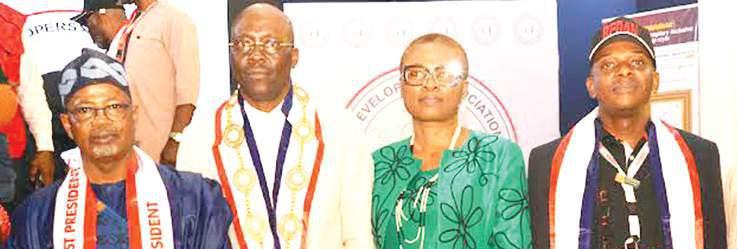
L-R: Immediate Past President, Real Estate Developers Association of Nigeria (REDAN), Dr. Oroji Wamakko; President, REDAN, Mr. Akintoye Adeoye; Wife of the President, Princess Adeola Adeoye; and Financial Secretary, REDAN, Mr. Peter Inuaenye, during the Installation of Akintoye Adeoye as the 7th President of REDAN held in Lagos. recently
A former Deputy Governor of the Central Bank of Nigeria (CBN), Dr. Kingsley Moghalu, has declared that although the policy reforms by the Bola Tinubu- led administration were, "bold and correct," it erred by removing fuel subsidy, implemented exchange rate unification and a further effort to float the naira in an environment awash with naira liquidity without first taking necessary steps to rein in the fallouts.
In a keynote address titled, "Nigeria's Distressed Economy: Which Way Forward?" which he presented yesterday, at the 2024 Leadership Group 2024 Conference and Awards, in Abuja, Moghalu admitted that the reform policies introduced by the Tinubu’s administration were bold and correct, stressed that the first error was the precipitate nature of the introduction of the policies without a thorough preparation for the implications.
According to him, some of the pitfalls were the failure to first educate Nigerians on why the subsidies had to go and on what steps the government was taking to mitigate the anticipated impact; lack of prior and in-depth consultations on the forex reforms with institutional investors who are movers of global capital and in the absence of robust revenues from oil, influence forex liquidity through capital importation.
He maintained that the exchange rate unification and a further effort to "float" the naira in an environment awash with naira liquidity was a mistake, adding that this contributed to the naira's race to the bottom.
Moghalu said: "The first error was the precipitate nature of the introduction of these policies without a thorough preparation for the morning after. Nigerians should first have been educated on the economics of why these subsidies had to go, and on what steps the government was taking to mitigate the anticipated impact, e.g., with a subsidised mass transportation system across the country.
"The forex reforms at the central bank should have benefitted from prior, in-depth consultations with institutional investors who are the movers of global capital and in the absence of robust revenues from oil, influence forex liquidity through capital importation.
"Second, exchange rate unification and a further effort to "float" the naira in an environment awash with naira liquidity (a loose monetary environment) was a mistake.
"This contributed to the naira's race to the bottom. The policy should have been accompanied, or preceded by, immediate monetary tightening. But we know that a substantive Governor of the CBN was appointed only several months later, and the Monetary Policy Committee was only just appointed and confirmed in office-last month, I believe.
"That these two important institutional props of Nigeria's economic policy making were not in place for several months after the new administration was sworn in, created policy uncertainty and damaging gaps in investor confidence - even as investors were broadly in support of the reform direction.
"The CBN's recent increase of the MPR (Monetary Policy Rate) by 400
basis points and the cash reserve ratio by 12.5 per cent, from 32.5 per cent to 45 per cent, although belated, is appropriate in our circumstances today. Better late than never.
"Third, the appointment of the President's cabinet took too long in a sensitive period of transition. When the appointments were finally made, the cabinet's composition turned a predominantly "political" one instead of a strong bench of apolitical technocrats to address the economic crisis, which investors had hoped for.”
He added: "This was a lost opportunity. It is always the case that when a government inherits an economic mess of humongous and fundamental proportions, the wiser course of action is to invest in the confidence of both the investor community and citizens with a clear departure from politics as usual in favor of a stronger technocratic
quotient (TQ) in constructing the highest echelons of the executive branch of government."
Moghalu, who is the Chairman, Advisory Board & Board of Directors, Africa Private Sector Summit (APSS), explained that the past years of the Nigerian economy were particularly ruinous.
But he noted that there were also some immediate causes of the present economic mess traceable to significant strategic errors by the present government early in its seven months in office, adding that he was pointing these out not as a form of recrimination, "but only so we can learn lessons for the future."
"Nigeria's economy today is to use the title of the classic novel by Gabriel Garcia Marquez, the ‘Chronicle of a Death Foretold.’
On whether there will there be a rebound of the economy or not, he expressed optimism, saying that
this would depend on fixing the fundamentals. "There is nothing that is happening today - hyperinflation, the crisis of the value of the Naira, debt distress and the revenue challenge, unemployment, and extreme poverty etc - that should surprise any thinking citizen or professional observer of how our country's economy has been mismanaged for a long time.
"Choices have consequences, there is hunger and anger in the land. The past 10 years were particularly ruinous. They were the years of the locust, marked by unprecedented mismanagement of fiscal policy, unproductive external borrowing, unnecessary budget deficits, illegal Ways & Means lending by the Central Bank of Nigeria to the federal government to the tune of N30 trillion, and unprecedented corruption.
"Earlier, a combination of oil
price shocks and an incompetent policy response from the CBN, in the form of an attempt to fix the exchange rate, all helped give us two recessions within seven years.
"Many of these things happened because as we witnessed, there was a successful political assault on the independence of the central bank, with the storekeeper willingly handing over the store keys to the marauders.
"We are in a crisis regardless of whatever short-term measures that are taken, and the success of those measures or lack of it, this crisis and its effects will be with us for a minimum of 3-5 years," he said.
Drawing an example from Mexico, he argued that although the Mexican peso crisis lasted for two years from 1994 to 1995, the effects lasted for about six years.
Continues online
Blessing Ibunge in Port Harcourt International organisations, Centre for Research on Multinational Corporations (SOMO), Stakeholders Democracy Network (SDN) and others have urged the federal government to stop the divestment plan by Shell Petroleum Development Company (SPDC) until clean-up and decommissioning issues are addressed in Niger Delta region.
Unveiling a report titled "Selling Out Nigeria: Shell's Irresponsible Divestment", in Port Harcourt, the Executive Director of SOMO, Audrey Gaughran said Shell plans to divest, leaving widespread historical oil pollution across the Delta.
Gaughran who spoke via zoom, insisted that Shell cannot be allowed to divest from the onshore oil industry in the Niger Delta before it takes responsibility for its toxic
Onyebuchi Ezigbo in Abuja
The management of Nigeria Social Insurance Trust Fund(NSITF) yesterday, said it has effected changes in the operational network of its offices in Ilorin, Onitsha and Yenagoa.
It said pending approval by the Board, it has recommended the realignment of the Ilorin Branch of the Fund from Abuja Region to Ibadan Region and Yenegoa Branch from Asaba Region to the Port Harcourt Region as well as Onitsha Branch from Enugu Region to the Owerri Region on the basis of proximity and ease of operation.
The NSITF also said it has approved the creation of four new branches in Lagos region (Surulere, Epe, Badagry and Lagos Central branches) and Bonny Service Delivery Centre,
pending the approval of the Board and the Minister of Labour and Employment.
The Managing Director of the Fund, Maureen Allagoa, who stated this at the maiden edition of the Fund’s Central Management Performance Review (CMPR) meeting taking place in Abuja, said the agency was being re-modelled in line with 8-point agenda of the Tinubu administration in order to better service delivery to Nigerians.
A statement signed by General Manager, Corporate Affairs, Nwachukwu Godson, quoted the NSITF Managing Director as having said the review was part of the roadmap for the strategic restructuring of the NSITF.
He urged the management and staff of the Fund to key into the plan.
The Managing Director also announced new operational policies
and strategic action plans to include the adoption of the ECS compliance certificates as part of bidding requirements for contracts in the states of the federation, harmonised ECS central database in all branches and regions to forestall double registration.
She said the move was to ensure, "aggressive registration of new employers and segmentation of all coverage areas to ensure effective enforcement, intensification of the occupational safety and health awareness to reduce workplace accidents."
She added, “management has approved the creation of 4 new branches in Lagos region (Surulere, Epe, Badagry and Lagos Central branches) and Bonny Service Delivery Centre (SDC), pending the approval of the Board/Minister.
“These will be the first of many
more branches and SDCs to be created in furtherance of our branch-in-branch expansion policy and service delivery centres policy.
“Regional and Branch Managers who have genuine cases for new branches or service delivery centres in their coverage areas can forward comprehensive data on the proposed locations, outlining the justification, benefits, and cost implications to the management for consideration.
"Pending approval by the Board also, the Managing Director further announced the re-alignment of the Ilorin Branch of the Fund from Abuja Region to Ibadan Region and Yenegoa Branch from Asaba Region to the Port Harcourt Region as well as Onitsha Branch from Enugu Region to the Owerri Region on the basis of proximity and ease of operation."
legacy of pollution and the safe decommissioning of abandoned oil infrastructure.
The organisation noted: "The oil giant is leaving behind petroleum contaminated rivers and streams, and large areas of polluted land that have devastated the lives and livelihoods of millions of people living in the Niger Delta".
Narrating the unveiled report, Gaughran stressed that while Shell has maintained that oil theft and interference with pipelines are the causes of much of the oil pollution, the claims has no bearing on the company's responsibility to clean-up the degraded area, insisting that "Under Nigerian law, Shell must clean-up oil spills no matter the cause".
Noting the consequence of ignoring the polluted areas, the group regretted that it is likely to worsen in the years ahead with an alleged massive unpaid bill for safety decommissioning oil and dilapidated oil infrastructure.
"As the oil industry enters its final phase, whether that's in the next five years or 25, Shell has sold its toxic assets and will not be left holding them when the music stops.
“ Shell has profited from oil extraction for decades, and in doing so, has made the Niger Delta one if the most oil polluted places on earth, leaving communities to
face the dire consequences that will remain well beyond the lifetime of the industry.
"Shell is not the only international oil company exiting the onshore Niger Delta. All of the European and US oil majors are also leaving. However, the departure of Shell, which has been the dominant operator with the largest footprint in the region for decades, impacts significant areas of the Delta and thousands of communities," it said.
In her remarks at the programme, the Country Director at SDN, Florence Kayemba noted the economic crisis faced by Nigeria, saying that the region will suffer badly in future if there is no proper clean-up of the environment before Shell divestment.
"The international oil companies are divesting at an accelerated rate and the report highlighted that the process is inadequate. There will be no just energy transition under this regime. That is why civil society organisations are proposing a set of principles for responsible oil industry divestment that can be adopted by Nigeria and followed in all deals.
"The principles would help ensure a transparent process to assess the capacity of the incoming companies, with meaningful community consultation throughout, address environmental pollution, and deteriorating and abandoned infrastructure," she added.
Emmanuel Addeh in Abuja
Africa's richest man, Aliko Dangote, is planning to set up an oil trading arm, likely based in London, to help run crude and products supply for his new refinery in Nigeria, six sources familiar with the matter have told Reuters.
The move, it said, would reduce the role of the world's biggest trading firms, which have been negotiating for months to provide the refinery with financing and crude oil in exchange for products exports.
According to the report, the giant
Emmanuel Addeh in Abuja
The International Monetary Fund (IMF) has said recent increase in Nigeria’s interest rate by the Central Bank of Nigeria (CBN) is a step in the right direction, stressing that President Bola Tinubu inherited a difficult economic situation from his predecessor.
In a similar vein, Fitch Ratings yesterday said the recent 400 basis points increase, to 22.75 per cent, in Nigeria’s Monetary Policy Rate (MPR) marked progress in the country’s effort to contain inflation.
The Monetary Policy Committee (MPC) of the CBN increased the policy rate by 400 basis points to 22.75 per cent for a total tightening of 1,025 basis points since May 2022.
IMF gave its verdict in its end-ofmission press release by the IMF staff team that recently visited Nigeria for consultations and assessment.
However, the organisation stated that the views expressed in the statement were preliminary findings of the mission, explaining that a report that would emerge from the visit would still be subject to management approval after presentation to IMF's executive board for discussion and decision.
“The new government inherited a difficult economic situation marked by low growth, low revenue collection, accelerating inflation, and external imbalances built up over years,” the report stated.
But it pointed out that addressing food insecurity was the immediate priority, and said the recent approval of a well-targeted and effective social protection system remained an important step towards addressing the food crisis, stressing that implementation will be crucial.
The decision of the MPC to
It described the latest levy as “punitive levy,” which was already “being perceived as a punishment imposed on investors for daring to invest in Nigeria and on indigenous companies for employing needed foreign nationals”.
The statement said EEL “is potentially an albatross to the realisation of Mr. President’s private sector led economy aspirations and would certainly ruin the trust and confidence he is striving hard to build among domestic and foreign private investors”.
Ajayi-Kadir added, “The imposition of EEL poses potential impact on the manufacturing sector and the economy at large.
“This will in turn mark an unwarranted and unprecedented addition to the cost of doing business in Nigeria, especially to manufacturers.
“The policy will surely undermine the administration’s determination to position Nigeria as an attractive global investment destination and may engender a cold welcome in Mr. President’s future foreign investment promotions endeavours, as well as undermine Nigeria’s efforts at becoming a hub for shared services centre and business process outsourcing.”
According to the statement, “The manufacturing sector is already beset with multidimensional challenges. In year 2023, 335 manufacturing companies became distressed and 767 shut down.
650,000 barrel-per-day refinery is set to redraw global oil and fuel flows and the trading community is closely watching the way it will operate.
It said that Dangote, whose wealth is estimated by Forbes at $12.7 billion, did not reply to several comment requests. Trading sources told Reuters that that BP, Trafigura and Vitol, among others had met Dangote in Lagos and London in recent weeks to offer loans for some $3 billion in working capital the refinery needs to buy large amounts of crude.
The traders, the report noted,
further tighten monetary policy, IMF said, will help contain inflation and pressure on the naira.
IMF said the team led by IMF Mission Chief for Nigeria, Axel Schimmelpfennig, visited Lagos and Abuja from February 12 to 23, to hold discussions for the 2024 “Article IV Consultations” with Nigeria. It said the team met with Minister of Finance, Wale Edun, Governor of Central Bank of Nigeria (CBN), Yemi Cardoso, and senior government and central bank officials.
It also consulted with the Ministry of Agriculture, Ministry of the Environment, and representatives from sub-nationals, the private sector and civil society.
Schimmelpfennig was quoted to have said at the end of the visit, “Nigeria’s economic outlook is challenging. Economic growth strengthened in the fourth quarter, with Gross Domestic Product (GDP) growth reaching 2.8 per cent in 2023. This falls slightly short of population growth dynamics.
“Improved oil production and an expected better harvest in the second half of the year are positive for 2024 GDP growth, which is projected to reach 3.2 per cent, although high inflation, naira weakness, and policy tightening will provide headwinds.
“With about eight per cent of Nigerians deemed food insecure, addressing rising food insecurity is the immediate policy priority. In this regard, staff welcomed the authorities’ approval of an effective and well-targeted social protection system.”
The team also welcomed the government’s release of grains, seeds, and fertilisers, as well as Nigeria’s introduction of dry-season farming.
It stated, “Recent improvements in revenue collection and oil produc-
“The capacity utilisation in the sector has declined to 56 per cent; interest rate is effectively above 30 per cent; foreign exchange to import raw materials and production machine inventory of unsold finished products has increased to N350 billion and the real growth dropped to 2.4 per cent.
“Expatriates in Nigeria currently pay more than $2000 for CERPAC. The sector cannot afford another disincentive to increased investment and portfolio expansion.”
MAN stated that the levy would deter multinational companies from investing in Nigeria and setting up their regional headquarters in the country.
“Also, the levy will make Nigeria a more expensive location for global expertise that international companies require for their operations,” it stated.
“Overall, we risk slowing down knowledge and skills transfer to Nigerians and undermining a key avenue for the country to move up the technology ladder,” MAN added.
The manufacturers’ association was equally worried that the imposition of such a levy, which could have far-reaching implications for the country’s economy and potentially exert pressure on Nigeria’s currency, was introduced through a handbook, rather than a law enacted by the National Assembly.
MAN warned, “This levy may expose the federal government to a plethora of lawsuits that will distract government from the task of
asked the refinery to repay loans with fuel exports but that so far, they have signed no deals.
It explained that this is because Dangote worries they would reduce his control of the project – and potentially his profit, the sources said. Dangote has also met statebacked firms in his search for cash and crude, it stated.
"He is going to try and do it himself," an industry source told Reuters. Sources told Reuters the new trading team will be led by ex-Essar trader Radha Mohan.
Mohan joined Dangote in 2021 as director of international
tion are encouraging. Nigeria’s low revenue mobilisation constrains the government’s ability to respond to shocks and to promote long-term development.
“Non-oil revenue collection improved by 0.8 per cent of GDP in 2023, helped by naira depreciation. Oil production reached 1.65 million barrels per day in January as the result of enhanced security.”
But the IMF insisted that Nigeria was still paying subsidy on petrol. The federal government and the Nigerian National Petroleum Company Limited (NNPC) had said there was no capping for the fuel, which had remained relatively low compared to diesel, kerosene, jet fuel and others. The latter are currently sold above N1, 000 per litre, while petrol remains at between N600 to N700 per litre.
The IMF team stated, “The capping of fuel pump prices and electricity tariffs below cost recovery could have a fiscal cost of up to three per cent of GDP in 2024.
"The recently approved targeted social safety net programme that will provide cash transfers to vulnerable households needs to be fully implemented before the government can address costly, implicit fuel and electricity subsidies in a manner that will ensure low-income households are protected.
“This decision should help contain inflation, which reached 29.9 per cent year-on-year in January 2024, and pressures on the naira.”
On its part, Fitch Ratings, yesterday, supported the monetary policy tightening by the CBN.
In a report, the rating agency said it would also support a more market-determined exchange rate, even though real rates remained negative and the exchange rate was
salvaging the current dire situation of our economy.
“Additionally, we already have laws that were promulgated to achieve the exact purpose for which the EEL was introduced. They include the Local Content Act, which guarantees the jobs of Nigerians, and the Immigration Act, which prescribes the primacy of consideration for Nigerians and imposes appropriate quota in the engagement of expatriate.
“Therefore, the EEL would amount to duplication and burden- some addition.”
MAN also expressed concern that EEL would contradict Nigeria’s international trade agreements and the obligations contained therein.
It stated, “For instance, Nigeria is a signatory to the African Continental Free Trade Area (AfCFTA) agreement.
One of the pillars of the AfCFTA is the free movement of skilled labour across the continent, which is complemented by non-discriminatory measures against fellow Africans.
“Quite importantly, this could trigger retaliatory measures against Nigerians working across Africa and other nations of the world; frustrate regional integration efforts and portray Nigeria as a spoiler among her peers.”
The association, therefore, asked the president to give due consideration to its arguments and direct that the implementation of EEL be discontinued.
supply and trading, according to his Linkedin profile, quoted the report. Two sources said the team was in the process of hiring two new traders.
The refinery took nearly a decade to complete and came in at a cost of $20 billion, some $6 billion over budget. The plant has refined around 8 million barrels of oil between January and February and will take months to get to full capacity.
So far, Vitol has prepaid for some product cargoes to help the refinery buy crude, while Trafigura has swapped some crude oil in
still subject to downward pressure for now.
Earlier in November 2023, Fitch had highlighted low net reserves and weaknesses in the exchangerate framework as constraints on the sovereign’s credit profile and then affirmed Nigeria’s rating at ‘B-’ with a Stable Outlook.
However, in its latest release, the agency said the large MPR increase on 26-27 February, and accompanying moves to raise the cash reserve ratio for commercial banks to 45 per cent, from 32.5 per cent, were steps towards containing inflation.
It reiterated that CBN also widened the asymmetric corridor around the MPR, which could limit interest rate pass-through.
The report said, “Fitch expects the CBN to continue tightening policy in the near term, which seems necessary to more fully control inflation as rapid credit and money-supply growth suggests a still-loose monetary context.
“Such a tightening will still face implementation challenges, partly due to the potential for countervailing political pressure. However, without further sizeable monetary tightening, it may be difficult to achieve macroeconomic stability – real interest rates remain negative, deterring inward portfolio investment.”
Fitch also projected the rate of inflation to rise further in the first half of 2024 (1H,24), before moderating in the second half (2H,24), partly reflecting base effects as well as its assumption that the naira’s depreciation will slow in 2024, compared with 2H,23, before a stabilisation of the currency by year-end.
It stated that the currency’s sharp depreciation since mid-2023, including the large loss of value in January,
According to MAN, discontinuing the policy would be in the overall interest of the country’s economy and is urgently needed to reassure domestic and foreign investors of Nigeria’s commitment to an investment friendly environment and ease of doing business.
“Additionally, Mr. President should direct the Nigeria Immigration Service to refrain from enforcing compliance with the policy,” MAN said.
Ajayi-Kadir stated that while MAN fully supported policies aimed at promoting quality job opportunities for Nigerians, it would urge the president to consider the wider negative effect of EEL.
He stated, “A more effective and sustainable approach is for government to intentionally improve on its human capital development and incentivise companies to invest in developing local talent without compromising Nigeria’s ability to attract Foreign Direct Investment (FDI).
“MAN advises that it is extremely important that government institu- tionalise stakeholders’ consultations and engagement before important policies that could have far-reaching implications for our economy are made.
“This will allow for constructive input from the business community, who are able to support government initiatives and are the most impacted by the outcomes.”
exchange for future fuel cargoes, sources with knowledge said. Geneva-based Vitol and Trafigura also declined to comment.
Vitol operates as an energy and commodities company which offers crude oil and product trading, shipping, refining, terminals and storage, downstream, upstream, gas and power, renewables, and investments services.
Trafigura, the third-largest physical commodities trading group in the world behind Vitol and Glencore, sources, stores, blends and transports raw materials including oil and refined petroleum products.
and slow monetary policy response had raised inflation expectations.
Fitch said with security challenges in the North-east of the country and higher transport costs also adding to price pressures, it was forecasting inflation to average 26 per cent in 2024.
Recent CBN policy tightening, coupled with exchange-rate adjustments, it said, signalled initial efforts to address foreign exchange (FX) scarcity and restore business confidence.
Fitch stated, “The CBN governor has announced plans to clear a backlog of unsettled FX forwards ‘in the next few days’, having settled only $400 million of an outstanding $2.2 billion, based on CBN estimates, as of late February.
“Nonetheless, the CBN’s weak net reserve position will continue to hamper liberalisation of the FX market and we expect FX scarcity to persist through 2024. Even if the authorities resolve the backlog of FX forwards, it will take time for investor confidence in the FX market to return, especially if transparency over exchange rate and monetary policy remains poor.”
According to the report, recent
service, creating a collective space for remembrance and reflection on the lives of the two cherished individuals. They died on February 9, alongside the Access Bank CEO, in a helicopter crash in the United States.
Chizoba's sister-in-law and Herbert’s youngest sister, Stella Eresia-Eke, opened the tributes, describing her close bond with the departed.
She shared, "Chizoba was my friend, my sister. My parents were blessed with three beautiful daughters, my sister, Dr. Joyce, Peggy, Dupe, and I had a wonderful sister in Chizoba. Chizoba was my sister-in-law, but what happened along the way, the in-law fell off. Chizoba was my sister in love."
Eresia-Eke emphasised Chizoba's versatility, stating, "The good thing about Chizoba we can identify with is that she could roll up her sleeves and find herself anywhere.
“She could adapt to anything that came her way. In her elegance, she was fantastic, and in her elegance, Chizoba was meek."
She continued, "To say my heart is shattered is really having to put it mildly. My heart is broken, my parents' hearts are broken, my siblings' hearts are all broken.
“But I’m going to rest and hold on to the fact that what she showed was love, and I’m hopeful that with everyone here, I know a piece of Chizoba is left with all of us."
Mrs. Ofovwe Aig-Imoukhuede, a close friend of Chizoba, equally shared touching memories of their friendship.
"I found in Chizoba a warm and dependable friend and sister who could be counted on for everything," she said.
Reflecting on Chizoba's enterprising spirit, Aig-Imoukhuede added, "Her enterprising nature
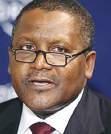
measures, if continued, may ultimately strengthen the sovereign’s medium-term growth prospects and capacity to attract external financing.
Fitch said when it affirmed Nigeria’s rating in November last year, it stated that improved credibility and consistency in monetary policymaking and FX management, resulting in a sustained reduction of inflation and distortions in the FX market, could lead to positive rating action.
The report added, “While the authorities are taking steps to address the challenges in the monetary and FX market, years of unorthodox policy approaches and financial repression under the previous government have weakened investor confidence in the economy.
“A lack of policy coordination remains a risk for the reform drive. Notably, Fitch expects fiscal consolidation to be limited in the near term, constrained by political pressure on the government to improve infrastructure and provide support to households amid high inflation. This could weaken the effectiveness of policies designed to curb inflation and improve FX liquidity.”
came in so handy when we were both stuck in the UK during Covid.
“She would regularly do drivebys to my house, her car loaded with food and toilet papers when the shelves of the shops were bare."
Aig-Imoukhuede also highlighted Chizoba's role as a devoted mother, stating, "She was a very loving and present mother, who was so proud of her children and spent so much time with them."
Another close friend, Kemi Balogun, emotionally shared her memories, saying, "We do not mourn like those who do not have hope. Chizoba was kind, very kind. If Chizoba loved somebody, the love she had for Herbert went to Aigboje’s home and then to our home.
“I thank God for Chizoba, I miss her laughter. Chizoba loved Herbert so much and Herbert loved Chizoba, too. We love Chizoba but we know God loves her best. We thank God for her life.”
Ambassador Ogan contributed to the tribute, acknowledging the deep love between Chizoba and her husband, Herbert, as well as her significant financial support to the Wigwe University.
Charles Nwuba, Chizoba's brother, in his tributes, expressed gratitude for the love and support shown during this difficult time.
The memorial service served as a testament to the remarkable life of Chizoba Wigwe, leaving an indelible mark on the hearts of those who were fortunate enough to share in her journey.
During the event, heartfelt performances were delivered by the Lighthill Choir, a solo performance by Progress, and Chee.
The congregation was also moved by a sermon from Pastor Ifeanyi Emmanuel, further adding spiritual reflection to the commemoration of Chizoba's life.
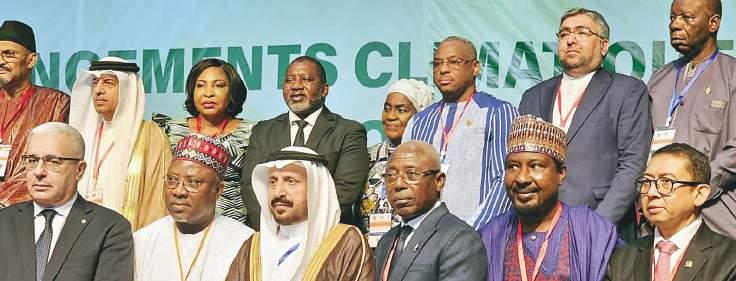
Blames depletion of food reserve, insecurity, naira redesign, flooding, others Says Nigeria has less than 5,000 tractors working 120 trucks illegally exporting foodstuffs impounded, says Customs CG
The Minister of Agriculture and Food Security, Senator Abubakar Kyari, has said the challenge of food insecurity currently confronting the country was due to depletion of food reserves, insecurity, flooding, naira redesign, the COVID-19 pandemic, among others.
The minister stated this yesterday, while addressing members of the House of Representatives at the resumption of sectoral debate series at the National Assembly Complex, Abuja.
He said President Bola Tinubu about seven months ago identified the challenge in food security when he declared an emergency on food security in July of 2023.
The minister said the President went further to rename the ministry from the Federal Ministry of Agriculture, and Rural development to the Federal Ministry of Agriculture and Food Security.
He noted that those actions already clearly spelt out the intention and the direction of the administration.
According to him, “Let me say that what we are facing today are both historical and also contemporary. Let's go back to history and before the advent of the last administration, the issue of insecurity and farmersherders’ clashes.
“There are other issues that have affected agriculture. Covid-19 in 2020, considerable time in flooding activities in 2021 and 2022 damaged our food production. The policy of
naira redesign had an impact on the rural farmers who didn't have access to banks.”
Kyari added: "Usually, availability of foodstuffs reared its head around May/June when they are just about planning for the wet season. We saw it coming much earlier. Which means that our production, even though it was marginally higher than that of 2022, but it was not enough to cater for our population that is growing at the rate of seven million per annum.
"So these are issues that have given rise to hike in food prices and also the depletion of the food reserves is also another issue. What we were faced with last year, just shortly after we were sworn-in, we noticed the trend it was going and we had to halt purchase and the re-stocking
of the strategic grain reserve simply because of market forces."
The minister also decried smuggling of foodstuff outside the country, while also adding that insecurity was undeniably impacting on all levels of the society.
As part of efforts to ameliorate the situation, Kyari stressed that the federal government in November 2023, launched the dry season farming, adding that that the first phase was to plant wheat, while rice, maize and cassava would be planted in the second phase.
His words: "We have planted 117,000 hectares. Jigawa State being the number one with 40,000, but I am glad to announce that beyond the 40,000, they have done 55,000 hectares of wheat.
michael Olugbode in Abuja
The United Nations (UN) has called on remaining State governments in Nigeria yet to domesticate and implement the HIV/AIDS Anti-discrimination Act 2014, to immediately do so in order to break down the wall of discrimination against people living with HIV/ AIDS.
UNAIDS Country Director, Dr. Leopold Zekeng, made the call yesterday, in Abuja, during the commemoration of Zero Discrimination Day 2024, with the theme, "To protect Everyone's Health, Protect Everyone's Rights.”
He revealed that no fewer than 18 States in Nigeria were yet to domesticate and implement Antidiscrimination Act, hence the call on them to urgently domesticate the legal instrument.
The HIV/AIDS Anti-Discrimination Act 2014 makes it illegal to discriminate against people based on their HIV status, and also prohibits any employer, individual or organisation from requiring a person to take an HIV test as a precondition for employment or access to services, amongst several other provisions.
Zekeng, also stressed the need for increased advocacy, and protection of the rights of those living with HIV.
Zekeng, while noting that Nigeria had made remarkable progress in the area of treatment and HIV related death, however lamented that appreciable progress had not been replicated in the area of discrimination against those living with the disease.
He decried the fact that despite the progress, a lot more work still needed to be done to get to the desired destination, stressing that discrimination in the context of HIV management will prevent patient from seeking treatment.
He said the Zero Discrimination Day was instituted 10 years ago, to provide a platform to raise awareness and proffer solutions to discrimination and rights issues.
In his goodwill message, the Speaker of the House of Representatives, Rt. Hon. Tajudeen Abbas, while noting that the occasion should not be limited to a mere observance; said it should be used for advocacy where a poignant call is made for action, and a resolute stand against the pervasive scourge of discrimination that continues to
afflict individuals and communities around the globe is taken.
The Speaker who was represented by the Chairman House Committee on Civil Society and Development Matters, Hon. Victor Obuzor, said: "As we all are aware, discrimination, in all its insidious forms, strikes at the very heart of our humanity. It continues to fracture societies, stifle progress, and undermine
the fundamental principles of equality and justice upon which our collective aspirations for a better world are built.
“Regardless of the form that discrimination takes, whether it be racism, sexism, homophobia, transphobia, albinism, or any other form of prejudice, discrimination erects barriers that deny individuals their inherent dignity and rights."
“We are about to harvest that wheat shortly this month. In a sense, what we have done with the dry season farming is to incentivise our farmers to have all year-round production.”
The minister said his ministry was also working with the Federal Ministry of Water Resources to take advantage of the abandoned irrigation facilities to ensure all year-round farming activities.
Kyari explained the second phase was the cultivation of 150,000 hectares of land for rice.
He added: "What we consume in Nigeria is about nine million MT of rice a year. We produce about 8.4 million MT. In the dry season, we produce about 3 million. Direct intervention of the government would give us an estimate of a million tonnes of rice within the next three months.
"We tend to cultivate about 55,000 hectares of maize, which will impact 110,000 farmers and a yield of 220,000 metric tons. Cassava also has 35,00 hectares with 70,000 farmers and a yield of 525,000 tonnes.”
In the near-term, the minister said the federal government would soon distribute 42,000 assorted grains to vulnerable Nigerians.
Kyari stated: "In our reserve what we met was 53,000 metric tonnes of assorted grains. We have gotten approval from Mr. President to distribute 42,000. We have 11,000 remaining for strategic storage because you have to have a threshold for any
eventualities."
He emphasised that the National Emergency Management Agency (NEMA) and the office of the National Security Adviser (NSA) would be handling the distribution, saying they were already mapping out the matrix of the vulnerability persons across the country.
He lamented that the country does not have 5,000 tractors that are fully functional at the moment.
"So we signed a MoU last year in November with John Deere, a company of agricultural equipment from America. The MoU seeks John Deere to bring in 2,000 tractors a year for the next five years, making it 10,000. As I'm speaking to you, they are in Lagos today, and they arrived in Abuja this evening," he added.
In his remarks, the Comptroller General, Nigeria Customs Service (NCS), Bashir Adeniyi, said currently, fertilizer, herbicides, insecticides and others were exempted from VAT.
He, however, argued against the importation of food into the country, saying 10 years ago when the country was in a similar situation, those that were given waivers imported food into the country above the given quota and still refused to pay duties on the excess imported.
Adeniyi revealed that in the next few days, there would be a clear pronouncement concerning the reopening of borders between Nigeria and Niger.
Chuks Okocha in Abuja
Despite the continued denial by the federal government that it was no longer subsidising petroleum subsidy, a former Governor of Bauchi State, Isa Yuguda , yesterday alleged that the federal government still pays subsidy on petroleum products.
Yuguda stated this in an interview on a television programme monitored in Abuja by THISDAY.
President Bola Tinubu, had in his inaugural speech, announced that “The fuel subsidy is gone.”
The President added that the 2023 Budget made no provision for fuel subsidy and more so, subsidy
payment was no longer justifiable.
The International Monetary Fund (IMF) in one of its reports last month also advised Nigeria to completely phase out the costly fuel and electricity subsidies as part of measures to address its economic challenges.
However, speaking on the issue of subsidy, Yuguda said: “If the IMF says we are paying subsidy then we are. But the subsidy that was removed was the one that was going into private pockets and I decoupled that subsidy that ordinarily shouldn’t have been paid.
“If it should have been paid, it should be paid into the treasury of
the country and today, that revenue increase that we see is reflected in the removal of the monies going into pockets of private individuals, is what is going into the treasury of the country.
"You have that subsidy being paid on petrol products that are pumped through pipelines and in many instances they are pumped through imaginary pipelines, where the pipelines don’t exist.
“So, we all pay subsidy, but that was what the President removed, that is why most states are getting twice or thrice of their allocation.”
On the economic hardship in the country, the former governor
said the average Nigerian would not understand challenges the president has to face in resolving the economic situation.
Yuguda, noted that members of the president’s cabinet needed to help in sensitising the masses on how government policies would change the nation.
He added, “I will expect the cabinet of Mr. President to go down the strata of our society and explain to the people that this is the situation that we have found ourselves in.
“If we didn’t have our central bank messing us up and the economy that has been mismanaged in the past, it wouldn’t be the way it is today.”



Last week witnessed the public presentation in a buja of a book entitled ‘Court
by former governorship candidate of the Social Democratic Party in adamawa state, Dr Umar a
who recounted his travails in party politics and the nation’s judicial system. Chuks Okocha brings excerpts from the review of the book by Professor Dakas C.J. Dakas.
The book “Court and Politics: Chronicling My Experience in the Nigerian Theatre” is a riveting account of the travails and triumphs of Dr Umar Ardo in the specific context of the shenanigans of the intersection of the judiciary and politics in what the author called in a derisive manner, “the Nigerian Theatre”.
The book reviewer, Dakas C.J. Dakas said of the book. “It is very timely, especially against the backdrop of the outrage generated by the inexplicable, and in some cases reprehensible, decisions delivered by some judges in the context of the 2023 general elections in Nigeria, as exemplified by what Ardo called “The Plateau Conundrum”:
He said in the book, “On the same set of basic facts and applicable laws, the elections of 16 members of the Plateau State House of Assembly (which has 24 members) and the members of the National Assembly from the State elected on the platform of the PDP were nullified by the Court of Appeal (the court of last resort in respect of legislative election petitions), while the election of the Governor of the State (also elected on the platform of the PDP) was upheld by the Supreme Court (the court of last resort in respect of petitions arising from governorship and presidential elections)! “
In an equally bizarre and surprised turn of events, he said the same panel of Appeal Court Justices, after nullifying the elections of some of the legislators from the State, ordered that their certificates of return be withdrawn and given to the candidates of the parties with the next highest votes.
While in other legislative constituencies within the State and, again, based on the same set of basic facts and applicable laws, the Court ordered the conduct of by-elections!
Reflecting on “The Plateau Conundrum” and the thrust of Dr Ardo’s treatise, one cannot but recall the profound dissent of Justice John Paul Stevens in the famous case of Gore v Bush in respect of the contentious outcome of the year 2000 presidential election in the United States: “Although we may never know with complete certainty the identity of the winner of this year’s presidential election, the identity of the loser is perfectly clear. It is the nation’s confidence in the Judge as an impartial guardian of the rule of law.”, he lamented.
In the ever-evolving landscape of Nigeria’s political and legal spheres, the intertwining of courts and politics forms a captivating narrative that demands exploration.
“Court and Politics” explore this theme in a compelling journey into the heart of a nation’s governance, unraveling the complexities and nuances that define the relationship between the judiciary and the political arena. In the intricate tapestry of governance, the nexus between courts and politics forms a pivotal thread, weaving the fabric of a nation’s legal and political landscape.
“Court and Politics” delves into the dynamic interplay of these crucial elements, offering a profound exploration of the challenges, triumphs, and evolving contours within the Nigerian judicial and political spheres.
In a gripping narrative, the book offers readers invaluable insights into the challenges faced by the Nigerian judiciary, the dynamics of legal interpretation in political contexts, and the delicate balance required to foster a resilient democratic system. The book chronicles the tumultuous journey of an individual whose life has become intertwined with the complex interplay of legal and political forces in Nigeria. Ardo’s experiences serve as a poignant lens through which readers can discern the intricate dynamics and challenges faced by individuals navigating the nexus of courts and politics.
The book transcends the boundaries of conventional analyses, offering a unique narrative that unveils the personal struggles, triumphs, and setbacks of Ardo within the

broader context of Nigeria’s political landscape. The author presents readers with an intimate portrayal of the challenges and intrigues of navigating a political arena fraught with legal intricacies and shifting power dynamics. The legal battles and political maneuvering are laid bare, inviting readers to reflect on the broader implications for justice, democracy, and individual agency in Nigeria.
In “Court and Politics”, Ardo presents readers with a front-row seat to the dynamic and intricate intersection of legal proceedings and political theatrics. Ardo’s journey becomes a microcosm through which the broader complexities of Nigeria’s legal and political landscape come to life.
Through captivating storytelling, Ardo skillfully navigates through the twists and turns of his experiences, offering a nuanced exploration of the challenges, triumphs, and tribulations that bedevil the Nigerian political theatre. Ardo is relentless and scathing in
his critique of the judiciary, as borne out by the following excerpt: “In high enthusiasm, I joined party politics with the sincerest commitment and firm determination to help create stable, strong and effective institutions and processes, and attain societal development through advancing the cause of rule of law and constitutionalism in our politics”.
Hence, it is a foremost mission of his political goal to help attain this feat...But as this book will demonstrate, the Nigerian judiciary seems lagging behind in time on this pedestal, and in this national democratic vision. Hence, in almost all the ten cases I instituted, and the eleventh one of the Congress for Progressive Change, the Court allowed the human elements of fear or favour, prejudice or sentiment, greed or avarice, ill-will or affection, or self-interest to out-weigh the essence of law, truth and justice in its decisions.
In all but one of the cases, one emotion or the other was discernible in how the Courts treated the suits.
He said “In the ten cases, not once did the Courts consider my susbstantive claims. In all the cases, justices of the Courts, enthralled by
Through captivating storytelling, Ardo skillfully navigates through the twists and turns of his experiences, offering a nuanced exploration of the challenges, triumphs, and tribulations that bedevil the Nigerian political theatre. Ardo is relentless and scathing in his critique of the judiciary, as borne out by the following excerpt: In high enthusiasm, I joined party politics with the sincerest commitment and firm determination to help create stable, strong and effective institutions and processes, and attain societal development through advancing the cause of rule of law and constitutionalism in our politics.
emotion, either resort to one untenable judicial logjam or the other to throw out the actions; or adopt briefs but refuse to deliver judgment; or force my counsel to withdraw and strike it out on the basis of such ‘withdrawal’; or enter ambivalent judgments against me or judgments that directly conflict with previous judgments of the Supreme Court on related precedents; or on occasions even out-rightly fabricate mendacities all by themselves and enter judgments against me; or dismiss cases not on the bases of the facts in issue and arguments put forth before them by counsels(sic), but on the Courts’ imported evidences and arguments...
“After going to ten Courts and facing such travails, I concluded, rather inescapably, that if one wants to see and feel injustice, then one needs to try getting justice in Nigerian Courts.”
(Pages 18-20).These are very serious charges against the judges that adjudicated the cases in question.
Legitimate criticisms of the decisions of the courts are not only welcome, but encouraged, with a view to deepening and expanding the frontiers of jurisprudence. However, we must, of necessity, reckon with the fact that in political cases, especially in an electoral context, Judges are often at the receiving end: depending on the outcome of the case, the victors canonise and celebrate the Judiciary, readily invoking the cliché that the Judiciary is “the last hope of the common man” (even when it is evident that the politicians are not common people!). Conversely, the losers demonise the Judiciary as “the lost hope of the common man”.
With this caution in mind, he invited the readers to dispassionately make their own determination as to whether Ardo’s charges against the Judiciary are justified.
On page 395 of the book, Ardo makes an audacious claim: “Without denigrating the critical roles of so many, I say with all humility that if there is any one person, Nigerian or foreigner, who can be said to be responsible for laying the foundation for Part Two [the turning point in Muhammadu Buhari’s successful election as the President of Nigeria after several previous futile attempts], it is my humble self. Having tried and failed three times and vowed not to try again, I formulated and coordinated the foundation that created the conditions favourable to Buhari’s fourth contest and his eventual victory in 2015.”
This claim is, of course, open to interrogation by other key actors and players of Buhari’s fourth presidential contest. This is a prospect that Ardo should welcome with the humility, introspection, and critical engagement that scholarly tradition warrants and celebrates. After all, without alternative perspectives and a willingness to listen to the voices of constructive dissent, the danger of revelling in one’s eco chamber metastasizes. Drawing from the analogy of a hunter’s egotistical tale of his exploits, without the benefit of his prey’s counter-narrative, a book of this nature is invariably vulnerable to the rebuttable charge that the author’s narrative is subjective or skewed.
Nonetheless, I commend the author for his candour, courage, and dedication in shedding illuminating light on the contentions and contestations in the intersection of the judiciary and politics in Nigeria.
On the whole, “Court and Politics” not only contributes to our understanding of the complexities within Nigeria’s legal and political spheres, but also serves as a cautionary tale and a clarion call to action.
As Nigeria navigates the complexities of its democratic journey, this book serves as a compass, guiding readers through the intricate intersection between legal frameworks and political realities.
Fidelis David writes that a chieftain of the all progressives Congress in ondo state, olusola oke, has joined the mounting tempo of campaigns and political activities by aspirants jostling for the tickets of their parties ahead of the November 16, 2024 governorship poll in the Sunshine State.
Chairman of the Independent National Electoral Commission, Prof Mahmood Yakubu recently for the umpteenth time recently announced that Ondo state Governorship election will hold on Saturday, 16th November 2024 while party primaries will hold from 6th to 27th April 2024 in line with Section 178 (2) of the Constitution of the Federal Republic of Nigeria, 1999 (as amended).
Besides, INEC said the submission of the list of nominated candidates via the online portal will start at 9.00am on 29th April 2024 and close at 6.00pm on 20th May 2024.
As a result of these, political arena in the sunshine state of Ondo is changing very fast. This reason is not far fetched. It is less than two months to the party primaries ahead of the governorship poll.
The drumbeats of war are increasing in tempo. The aspirants are reaching out and as the primaries draw near, the aspirants and their parties are becoming even more conscious and anxious of the mode of primary to be adopted by the national leadership of their parties.
For now, there are no fewer than 20 aspirants from both the APC and opposition Peoples Democratic Party (PDP) jostling to take over from Aiyedatiwa, whose tenure ends on February 24, 2025. The aspirants are made up of seasoned campaigners and neophytes who are hoping to upset the old order.
One of the major contenders for the race is a two-time governorship candidate in Ondo State and an aspirant on the platform of the All Progressives Congress for the November 16 governorship election in the state, Olusola Oke, who is from Ilaje, the second most populous local government in the state.
For Oke, so much has gone into preparations for the elections and his only goal is to win and become the next governor of Ondo State.
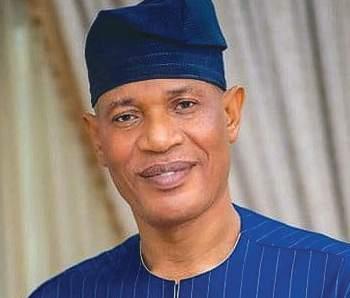
Oke, who hails from Ilowo, in Ilaje LGA, is a lawyer by profession, having been called to bar in 1987. He has held several positions in the Ondo State government before he was elected a member of the House of Representatives (Ese-Odo federal constituency) in 1992 on the platform of the then
Social Democratic Party.
In 1999, he was appointed a member of the board of the Niger Delta Development Commission (NDDC) to represent Ondo State. He was appointed the Chairman of the Ondo State Oil Producing Areas Development Commission (OSOPADEC). He is a one-time National Legal Adviser of the PDP
who contested the 2012 governorship election under the PDP and lost to the former governor of the state, Dr Olusegun Mimiko who was then in Labour Party.
However, Oke left the PDP for the APC. But, after the APC’s controversial primaries where he came a close third, he joined the AD in 2016 and became the party’s flag bearer for the 2016 governorship election.
But in January 2018, he was received back into the APC by the state Chairman of the party, Ade Adetimehin and late Governor Oluwarotimi Akeredolu.
Oke’s Chances Ahead of November Poll
On December 19, 2023, Oke held an interdenominational thanksgiving service, at the International Culture and Events Centre (the Dome), in Akure, after being involved in a ghastly motor accident on Friday, August 25, 2023 and was rumoured to have died, thereby dominating public conversation in the coastal state and the country as a whole.
The colourful billboards and large banners found nearly in all the nooks and crannies of the state, coupled with the huge crowd that attended the event suggested that he’s loved by the people of the state.
His close allies believe that his state wide political structures and financial resources available to prosecute the governorship race, shows that Oke has a brighter chance of emerging victorious at the APC primary and the governorship polls.
Some political admirers of Oke also opined that his candidature will give APC landslide victory at the poll while Aiyedatiwa’s camp still see Oke as a major threat to the governor and his bid to return as the governor of the state.
NOTE: Interested readers should continue in the online edition on www.thisdaylive.com
Khalil Halilu writes about the move to take bold steps towards getting better results from the revised institutional capacities of the National agency for Science and Engineering infrastructure.
Six months ago, I was appointed by President Bola Tinubu as Executive Vice Chairman and Chief Executive Officer of the National Agency for Science and Engineering Infrastructure (NASENI), the agency of the Federal Government of Nigeria responsible for driving industrial innovation, and technology transfer, in Nigeria.
It has been a most interesting period, full of both expected and unexpected learnings and experiences. First and foremost, I have to say it is a great privilege for me to be serving in this role, a beneficiary of one of the President’s earliest appointments.
I came to this job with a background in building and leading technology startups: I founded ShapShap, a logistics business (which won an ‘Innovator Prize’ at the Gulf Information Technology Exhibition, GITEX, in Dubai, in 2022); OyaOya, Africa’s first on-demand commodity marketplace, and The CANs Technology Hub, the first eco-friendly Tech Hub in West Africa.
One of my first priorities upon assumption of office, was staff welfare and development. From my experience, no organisation cannot thrive beyond the capacity and the motivation of its personnel. It was immediately clear to me that I needed to put the staff at the center of the re-engineering I want to achieve at NASENI. This led to the setting-up of a Committee, staffed and led by our junior-level staff—we’re starting from the bottom, and working our way up—to come up with recommendations about improving their welfare, and kickstarting the journey of making NASENI a public sector employer of choice in Nigeria.
The Committee has since submitted their report, and I have wasted no time implementing most of the recommendations. One of the things they asked for was putting in place a functioning Staff Bus system, to help cut down on commuting costs to the office. We wasted no time implementing this. We have in fact
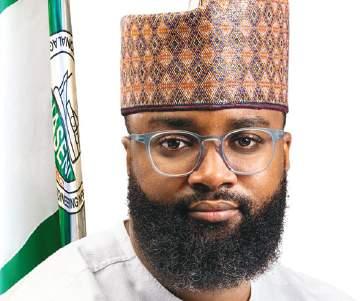
already implemented ninety-percent of all the recommendations proposed.
Another major area of focus has been the NASENI brand. NASENI has never really thought about itself as a ‘brand’, despite the fact that we are playing in a space where branding, positioning and public perception matter greatly. We needed to ask ourselves the question:
What comes to mind when people think about NASENI? It was an easy question to answer: most people don’t even think of NASENI at all.
Anecdotal evidence suggested many Nigerians had never heard of the agency, despite it being designed to be at the forefront of advancing Nigeria’s industrialization, as the only purpose-built Federal agency with the mandate to intervene in all fields of Science
and Engineering Infrastructure.
Our work was therefore clearly cut out from the start. We needed to lay out a vision, a definition: this is who we are, what we do, what we would like to achieve—and how all of these fit into President Tinubu’s Renewed Hope agenda for Nigeria.
This is how our Strategic Launchpad was born, the product of intense brainstorming and consultations. That Launchpad has four Pillars, which spell out what we want to achieve, as follows: Enhance Nigeria’s Manufacturing Capacity; Reduce Nigeria’s Import Bill through R&D; Strategically Reposition NASENI; and Leverage the Comparative Advantages of Nigeria’s 36 States and the Federal Capital Territory.
The Launchpad also clarifies our nine focus areas: Engineering & Manufacturing; Renewable Energy & Sustainability; Health & Biotechnology; Agriculture & Food Sustainability; Transportation & Mobility; Education & Creative Industry; IT & Software; Construction & Smart Cities; and Defence & Aerospace.
So, the last six months have been about setting things right, clarifying the vision, laying the foundation for the future.
To put it in the simplest possible terms, in the short- and medium-term, I would like to, first of all, make NASENI—products, Institutes, companies and people—a household name and brand in Nigeria. I am pleased to note we have started making this happen; in February we launched three sets of NASENI-branded products: a solar-powered irrigation system, electric motorcycles and tricycles, and an offgrid solar home system.
-Halilu writes from Abuja.
When the Naval Dockyard Limited was set up many decades ago as the Naval Hub of Engineering, its key derivatives were to enhance Nigeria's strategic self-reliance in maintaining naval vessels, develop expertise, and embark on design and building of ships and craft in support of the nation's continental and global maritime seapower projection and its Blue Economy. Over the years, those capacities have yielded result with countless constructions including the three indigenously built vessels for the Nigerian Navy with two new ones in the offing. Recently, the Naval Dockyard positioned itself as a regional power and perhaps continental and even global in the nearest future, with the agreement signed last week with the Benin Republic Navy to dock and repair six of their war vessels. Chiemelie Ezeobi, who witnessed the historic move, reports
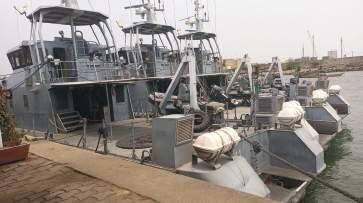

The role of the Nigerian Navy (NN) as a regional seapower came to bear last week when the Naval Dockyard Limited (NDL), its Naval Hub of Engineering, signed a strategic and historic agreement with Benin Republic Navy to dock six of its Naval platforms for repairs, the overaching objective being to enhance the holistic security of the Gulf of Guinea waters, especially the Multinational Maritime Coordination Centre (MMCC) Zone E that is made up of Nigeria, Benin Republic, Togo and Niger Republic.
According to the Admiral Superintendent NDL, Rear Admiral Abolaji Orederu, it was also an evidence of the capabilities of the dockyard. While all the repairs will take place at the Naval Dockyard in Lagos in 10 months, some officers of the Beninois Navy would also be trained on a knowledge transfer basis.
Witnessing the historic signing were Minister Economic/ Commercial Matters, Embassy of Nigeria in Benin Republic, Ambassador Saidu Tiggi; his Defence and the Deputy Defence Attache; Director of MMCC Zone E, Commodore Aniedi Ibok; NDL General Manager Finance, Captain O. Akinyede; and Information Officer, Lieutenant
Commander Priscilla Iyoriovbe, as well as other naval officers and the Nigerian press.
Positioning the NDL for Regional, Continental Expansion
As part of its move for regional and even continental expansion, Orederu, in his speech, said the NDL has "demonstrated capacity and willingness to dock six Republic of Benin Navy patrol boats namely BNS PENDJARI, BNS OUEME, BNS ALIBORI, BNS ZOU, BNS MATELOT BRICE KPOMASSE and BNS COUFFFO for repairs.
"As a capable and responsible indigenous registered company, this bold step is aimed at positioning the Naval Dockyard as a strategic player in shipbuilding and repairs as well as offshore construction and maritime support service provider within Nigeria, the West African region and the African continent as a whole.
"It is further noteworthy that docking and repairing the vessels in the Yard represents a significant milestone in improving our


collective regional capacity in maritime security and military cooperation between both navies and nations.
"It is on this basis that I would like to state that the Yard is committed and more than ready to execute the docking and repair of the vessels to restore them to optimum levels in line with the scope of work specified in the contract."
Expressing pleasure at the contract, he added that he was confident it would strengthen international relations as well as mutual trust between the Nigerian Navy and Benin Navy, with several prospects for promoting bilateral relations between both countries.
Expectedly, he said this project is also expected to engender patronage from other navies within and outside the region as well as establish the Yard as a regional hub for ship construction and maintenance, paving the way for greater achievements.
In his remarks, the Beninois Chief of Naval Staff, Captain Jean Le’on Olatoundji, recently promoted to Colonel Major, who commended the NN, said his confidence came having seen what had done when he was invited to the 66th NN anniversary in Lagos and he inquired about the possibility of extending same to his warships.
He said: "Already, the Nigerian Navy has been the major force of patrol in our block in the Gulf of Guinea and once our ships are repaired, they would also be deployed to support that effort and keep maritime crimes at bay.
“This refurbishing will really impact Benin Navy. This partnership is one of its kind and it will really impact Benin Navy and boost the maritime economy of the region."
Naval Dockyard as Force Multiplier
Stressing that the NDL stands proudly as a strategic national asset of Nigeria and a force multiplier to cater for the defence maritime needs in the construction, maintenance and repair of naval platforms, Orederu said they also extend these services to the larger maritime/ merchant community to promote and sustain Nigeria's maritime sector towards enhancing national security.
He said: "The NDL’s activities and achievements have stimulated indigenous shipbuilding and maintenance and facilitated enhanced local content for self reliance and national development.
"To this end, the yard provides comprehensive engineering services


to numerous clientele that cut across the military, government agencies and the private sector, standing out as an institution propelling Nigeria's maritime sector to greater heights while significantly contributing to cordial international relations and diplomacy."
Strategic Positioning of NDL by Vice Admiral Ikechukwu Ogalla
Although past Chiefs of Naval Staff paid adequate attention to the Naval Dockyard as evidenced by all that has been achieved in the past, the current administration of Vice Admiral Ikechukwu Ogalla has also witnessed significant boost with the recent move being the regional incursion and capability.
Under Vice Admiral Ogalla, the NDL has recorded extensive successes and it perhaps explained why Rear Admiral Orederu was so effusive in reiterating the immense support he has received in discharging his responsibilities.
At Benin Republic, it was no different. According to him, the formal signing of the contract agreement between the NDL and the Republic of Benin Navy was mandated and approved by Vice Admiral Ogalla.
He once noted that they derive their vision, mission, and ideas from the direction of the CNS to reposition the Nigerian Navy to greater heights to attain their constitutional roles, especially as his foresight and uncommon leadership, has ultimately inspired their remarkable progress.
Just last July, with support from the CNS, the NDL headed by Rear Admiral Orederu and Dateline Energy Services Limited led by Wilson Opuwei, entered a partnership contract agreement for the construction of 4,000 metric tons Liquefied Petroleum Gas, LPG, Coastal Gas Transportation Barge, the first of its kind in Africa.
This significant milestone has not only spurred growth of Research and Development (R&D), indigenous vessel construction and local content development but according to Ogalla, has stood the NDL tall.
For Oredereu, the collaboration will yield pave way for future endeavors in oil and gas vessel construction, R&D,


and local content development within the maritime and energy sectors.
Soon after in August, to curb illegal, unreported and unregulated (IUU) fishing in the country's coastal waters perpetrated majorly by foreign fishing trawlers, the NN handed over six Glass Reinforced Plastic (GRP) riverine patrol boats it designed and constructed for use by fisheries officials of the Ministry of Agriculture and Rural Development.
Handing over the boats to the Director, Special Duties, Federal Ministry of Agriculture, Mrs Fausat Lawal, at NDL, the CNS said the six GRP boats were part of the first steps the Navy made towards localising ship construction and maintenance, adding that they typified a transformation that has led to building naval vessels, local capacity and self-reliance in the country.
Even though the contract was initiated, planned and executed by Rear Admiral Orederu while serving in the Yard as the General Manager Plans, it came full circle under the CNS who handed it over to the ministry.
So how did the force multiplier known as Naval Dockyard come into being? According to reports, in 1965, the Federal Government of Nigeria, in a bid to acquire and exercise sea power, embarked on a strategic investment by acquiring the Elder Dempster Lines Shipyard, which was transferred to the NN.
However, even when it was commissioned in 1969 as the Nigerian Naval Dockyard (NAVDOC), its capabilities were still limited to 200-ton craft while the bigger vessels were sent abroad for major and minor refits at exorbitant costs
in hard currency.
Looking inwards Messr Adejumo, Ogunsola and Partners (AOP) in 1973 carried out feasibility studies and in August 1990, the new facilities were partially commissioned to handle up to 10,000-ton vessels until in 1997 when twin docks each capable of handling up to 250-tons vessels was commissioned.
In May 2013, the dockyard was rebranded as Naval Dockyard Limited on incorporation as a Limited Liability Company to reposition it as a strategic player in the oil and gas, shipping, offshore construction and maritime sectors of the Nigerian economy.
Operating as a Limited Liability Company, it pays tax to government while contributing its quota to technological development in the Maritime Sector.
The NDL is the premier logistic facility of the Nigeria Navy which caters for third line or depot maintenance of ships and what better way to tell its success stories than that of the three indigenously built Nigerian Navy Ships (NNS) ANDONI, KARADUWA, and ODIA.
Presently, it is on the verge of building two more, including a 41 metre Seaward Defence Boat (SDB), the third in the series, which demonstrates the immense potential NDL possesses in the shipbuilding/repair business.
But beyond this, the Yard has also built several tugboats and barges that have been employed in the navy, maritime as well as oil and gas sector.
According to Orederu, the Dockyard has demonstrated capacity by constructing three SDBs, over 100 riverine patrol boats, constructing and maintaining of houseboats, constructing self-propelled barges, repair of vessels both military and merchant ships, and constructing GRP boats and numerous maritime engineering construction as well as oil and gas platforms/assets currently performing optimally within Nigeria’s maritime space.
Similarly, the Yard is a leader in the fabrication of steel and aluminium for the telecoms, banking, manufacturing and oil services industry. In fact, NDL has earned a reputation as a major player in Nigeria’s Maritime business.
It however plans to expand by partnering reputable shipbuilding firms around the world who can inject the needed funds required to move NDL to the next level. Presently, the core activity of the company is shipbuilding and ship repair of vessels of up to 30,000 tons, as well as building of various metal constructions needed for the repair of ship and shipbuilding.
Guiding Philosophy, Services of NDL
With a guiding philosophy to be a quality oriented organisation that harnesses key competencies to reduce Nigerian vessels dependence on foreign shipyards, the Dockyard offers services like shipbuilding where its expertise as foremost shipbuilding and fabrication yard in Nigeria is undoubted in building, maintaining, repairing of Naval/ Merchant vessels as well as developing expertise in design/building of ship and crafts.
Through its Carpentry workshop, it extends services like carpentry, joinery and cabinet works, seasoning and painting of wood. Not done, at its Foundry section, they boast of facilities to cast non-ferrous material, which is equipped with electric furnaces for melting, casting, moulding, and heat treatment.
With a mind for potential diversification, the Naval Dockyard Limited, also has an Electronic and Electrical workshop while at the Design and Engineering, the former caters for the production of various conceptualised designs.
Also, as part of the support services to enable the Yard function effectively, some facilities have been put in place to provide support services like the well equipped medical centre including a Dialysis section.
Given its Mission to provide innovative product solutions for sustainable progress, the recent incursion into regional capabilities with potentials for continental expansion, has reaffirmed the position of the Naval Dockyard Limited as a strategic national asset of Nigeria and a force multiplier to cater for the defence maritime needs in the construction, maintenance and repair of naval platforms.
www.thisdaylive.com

opinion@thisdaylive.com
KHADIJA M-WILLIAMS argues the need for adequate public education before new policies come on stream
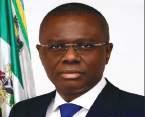
See page 21
The NIN-SIM linkage grew out of a national security initiative aimed at curbing criminal activities, writes SONNY ARAGBA-AKPORE

See page 21

CHIDI

On Sunday, 24 February 2024, the Heads of State and Government of the Economic Community of West African States (ECOWAS) concluded an extraordinary summit in Abuja, the capital city of Nigeria, precipitated by the announcement on 28 January 2024 by Burkina Faso, Mali, and Niger Republic of their joint decision to denounce the Revised Treaty of the Economic Community of West African States (ECOWAS) and leave the regional bloc “without delay.” From within Nigeria, the anchor state in the region, many around government exuding hubris under the guise of patriotism claimed that “the three countries would have more to lose.”
By the time they finished counting the costs of the possible withdrawal of these three countries, however, the extraordinary summit found the costs to the Community rather prohibitive. Between them, Burkina Faso, Mali and Niger represent 10% of the GDP of the region; 17.4% of the population, and 54.35% of the landmass. The Summit concluded that their departure will “have political, socioeconomic, financial and institutional implications for the three countries as well as for ECOWAS as a group” and “will constitute a reduction of the market size of ECOWAS.” They, therefore, issued an appeal to Burkina Faso, Mali, and Niger Republic to “reconsider the decision [to withdraw from ECOWAS], in view of the benefits that all ECOWAS Member States and their citizens enjoy for being part of the Community.”
To sweeten the appeal, the Summit decided to withdraw most of the existing sanctions against the three countries and to invite them “to technical and consultative meetings of ECOWAS as well as to all security-related meetings.”
One of the institutions adversely affected by the issues concerning these three countries is the Court of Justice of ECOWAS. In existence since 1991 and functioning since 2006, the Court is the judicial organ of the Community and is composed by five judges elected by the Heads of State and Government for a tenure of five years.
At the end of July 2022, three judges of the ECOWAS Court respectively from Ghana, Côte d’Ivoire, and Nigeria, were due to rotate out at the end of their terms, to be replaced by judges elected from Burkina Faso, Guinea, and Mali. This would have enabled the two surviving judges from Cape Verde and Sierra Leone to become the senior members judges of the court, all but assuring their succession to the offices of President and Vice-President of the Court. The current Judge President is from Ghana and his Vice is from Côte d’Ivoire.
However, while they are suspended, Burkina Faso, Mali, and Guinea from ECOWAS cannot propose any candidates or their nationals for election into vacancies in any of the institutions of ECOWAS. Confronted as a result with an inability to fill judicial vacancies on the ECOWAS Court, the Assembly of Heads of State and Government of the Community decided at the end of their Summit in Guinea Bissau on 12 July, 2022 that in order “to facilitate the functioning of the Court
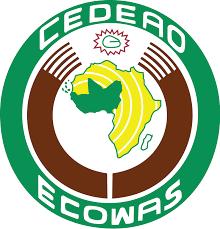
of Justice in its task of administering justice in the Community…. the judges, nationals of Ghana, Côte d’Ivoire, and Nigeria, are maintained in office until the appointment and entry into office of their successors.”
The effect of this was to maintain the status quo with respect to both the composition of the court and of its leadership, in effect extending the tenure of the judges from the three named countries. In turn, the judges whose ambitions of becoming the new leaders of the court it also frustrated or deferred, did not take this lightly.
The week after the conclusion of extraordinary summit of the ECOWAS Heads of State in Abuja at the end of last month, the Chief Justices of the member States of the Community convened also in Abuja as the ECOWAS Judicial Council. The meeting of the Judicial Council also marked the passing of the baton of leadership of the Chief Justices of the Community from Guinea Bissau’s António André Lima to Nigeria’s Olukayode Ariwoola.
The Chief Justices grappled with two things. First, almost assuredly instigated by their Judges on the ECOWAS Court who now want to become leaders of the court, the Chief Justices of Cape Verde and Sierra Leone at the meeting of the Judicial Council loudly complained about the expiration of the tenure of the judges from Ghana, Côte d’Ivoire and Nigeria. At their behest, the Judicial Council resolved to advise the Heads of State to “set in motion the process of filling those vacancies to avoid potential infraction of statutory provisions governing appointment of Judges to the Court.” They were unable to offer any advice to the Heads as to how to do this while the countries from which the putative judges would come remain suspended from ECOWAS. There’s a limit to what the incredible powers of even Chief Justices can accomplish.
The second thing they grappled with was the low level of compliance with decisions of the
ECOWAS Court of Justice. On this, they received and considered a report from the Judge President of the Court, Ghana’s Edward Amoako Asante. Thereafter, the Chief Justices divined that the main reason for the low level of compliance with decisions of the Court of Justice is that litigants do not have to exhaust domestic remedies in their respective countries as a criterion for admissibility before proceeding to the ECOWAS Court of Justice.
To address this problem, the Chief Justices promptly decided to constitute a sub-committee of themselves comprising their peers from Cape Verde, Liberia, Sierra Leone, Senegal, and Togo in order to review the treaties and protocols governing the ECOWAS Court of Justice so as to write into them a requirement for exhaustion of domestic and also “explore the possibility of creating a pool of qualified judges to serve as appellate judges on an ad hoc basis.”
In a manner of speaking, this amounts to killing the ECOWAS Court of Justice with an effusion of high judicial attention. In nearly every one of the attending ECOWAS Countries, the office of Chief Justice is a shrine to judicial despotism. The word of the Chief Justice is not open to question. Cases linger in court until the day after eternity except those which affect senior politicians to whom most Chief Justices seem beholden. By comparison, the ECOWAS Court of Justice has been something of a judicial miracle in West Africa. Cases receive prompt attention, the judgments are clear and understandable and litigants are treated as if their issues deserve serious attention. The ECOWAS Court is everything that the national court of the member states are not.
It is, of course, a misconception to take the machete of exhaustion of domestic remedies to a regional court of Justice. The design, treaty law and doctrine applicable to the legal system of the Community makes the idea of exhaustion of domestic remedies anathema to an integrated regional system. Imposing the doctrine on the Court of Justice will render it both irrelevant and impotent.
Around 18 years ago, beginning 2006, former Gambian dictator, Yahya Jammeh, sought to get ECOWAS to implement similar ideas. A concert of concerned citizens and governments in the region rallied and killed it. The true tragedy this time is that it is not a dictator, soldier, or politician who wants to ransack the ECOWAS Court before killing it. Rather, it is Chief Justices of the region wielding with maximum malevolence an appearance of commitment to due process and the rule of law. This is why citizens of the sub-region have a duty to resist them. On May 6-7, the Chief Justices propose to convene again in Abuja to “deliberate on the reports and recommendations of the Committees for adoption.” The citizens of ECOWAS States may have less than three months to save the ECOWAS Court.
A lawyer and a teacher, Odinkalu can be reached at chidi.odinkalu@tufts.edu
M-WILLIAMS argues the need for adequate public education before new policies come on stream
On January 21, 2024, the Lagos State Government announced, via the state Commissioner of the Ministry of the Environment and Water Resources, a ban with immediate effect on the usage and distribution of single-use plastics, specifically calling out Styrofoam. In order to enforce the ban, the State cited a number of regulations including the National Environmental (Sanitation and Waste Control) Regulation 2009, which was established under the NESREA Act which prohibits and specifically bans single-use plastics in Nigeria.
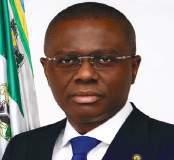
According to the Commissioner, other laws used to enforce the ban include the 2017 State Environmental Management and Protection Law which states under section 56(I) (Y), “Prevent, stop or discontinue any activity or omission, which is likely to cause harm or has caused harm to human health or the environment”.
On the announcement of the ban, Styrofoam was the scapegoat, but it is only one type of single-use plastic. By definition, single-use plastics can be said to be plastic materials that are used for short periods of time before being discarded. This would therefore extend to items like the plastic bags everyday Nigerians receive after purchasing items from shops; their day of reckoning is probably on the way. Another issue with the ban was its immediate nature as it initially did not provide a grace period for producers and distributors of these materials to adjust; the State later provided a three-week grace period. Is a three-week period enough to turn a business around? I welcome answers. Apart from providing a grace period, the State should have initiated the ban with publicity campaigns, especially on education and awareness, well ahead of the date of implementation to allow citizens to ease into it.
Delving deeper into the matter of education and awareness, alternatives to these singleuse plastics exist and are currently in use; in fact, they were being used before Styrofoam and other single-use plastics became popular probably because of their convenience. In the past, when corporate staff in Lagos’ business centres, for example, bought food from bukas and similar establishments, they typically visited with reusable takeaway packs. Nigerians are also well versed in reusing the plastic souvenirs they receive from weddings and other social events. Other more environment-friendly alternatives to Styrofoam include takeaway packs made with paper, compostable and/or biodegradable materials. However, using these alternatives is only one part of the solution; the main reason for the ban on Styrofoam given by the State is because of the menace they present to the environment,
and by extension public health, due to their indiscriminate disposal. However, I daresay, without a proper waste disposal and/or recycling system, these alternatives could end up being a problem like their predecessors.
This seemingly overnight ban got me thinking; what else are Nigerian businesses unprepared for? As someone in the environment and sustainability space, two things come to mind. As I mentioned in a previous article, Nigeria passed a Climate Change Act which was signed into law in November 2021. This Act has a couple of implications for private entities with 50 or more employees; (i) they would need to put measures in place to achieve the annual carbon emission reduction targets in line with the National Climate Change Action Plan, (ii) they would need to designate a Climate Change Officer or an Environmental Sustainability Officer who will be responsible for submitting an annual report that shows their status on carbon emission reduction efforts. I assume certain readers will break out in a sweat over this.
In addition, the Financial Reporting Council of Nigeria (FRC), who is responsible for “developing and publishing accounting and financial reporting standards to be observed in the preparation of financial statements of public entities in Nigeria” has adopted the International Sustainability Standards Board’s (ISSB) International Financial Reporting Standards (IFRS) Foundation S1 (sustainabilityrelated financial information) and S2 (climaterelated disclosures) standards and plan for these standards to be used by listed companies in the development of sustainability reports. The FRC has also developed a readiness roadmap document that is open for comments at the time of writing. I do not know how many companies are aware of this, but ignorance is not an excuse in the court of law.
Company Directors who are aware of these may say to themselves that these developments are not necessary, and given the Nigerian government’s track record, may never be implemented. Well, Styrofoam business owners, at least the ones that were aware of the policies, probably said the same thing when the aforementioned policies were entered into law. My unsolicited advice would be to not be caught wanting; companies have nothing to lose by being compliant with regulations as they stand. In fact, there are a lot of benefits to implementing a robust sustainability reporting process such as attracting foreign capital and investments, building credibility amongst an entity’s stakeholders, and helping an entity identify areas of operational improvement. Needless to say, these benefits could ultimately lead to an improvement in an entity’s bottom line.
In all of this, and speaking to the area of environment and sustainability, the Nigerian government appears to be on top of policies to ensure we have a liveable environment.
However, like most other areas, its implementation has been found wanting. Unfortunately, it is up to individuals and businesses to ensure that they are on the right side of the law as the landscape can, and most likely will, change in an unforgiving way.
Khadija, who is an environment and sustainability expert, writes from Melbourne, Australia
The NIN-SIM linkage grew out of a national security initiative aimed at curbing criminal activities, writes SONNY
ARAGBA-AKPORE
At a time when the International Telecommunications Union (ITU) appears to be racing towards 2030 when every human being on earth is expected to be connected to the internet and mobile networks, no fewer than 42 million mobile networks subscribers have been disconnected and therefore disabled from communicating in Nigeria.
They were reportedly unable to link their National Identity Numbers (NIN) to their mobile numbers.
The Nigerian Communications Commission (NCC) gave a mandate to Mobile Network Operators (MNO) to disable unlinked numbers by February 28,2024. And it has been so implemented.
Now the chips are down and the 42 million subscribers are out and also down.
Only last week, while the beleaguered subscribers battled to keep pace with their link

to the network numbers, there were indications that some of them didn’t even have the NIN let alone link one. There were also some others who claimed to have misplaced their NIN and yet others who allegedly said they actually linked their NIN earlier and wondered why they should be disconnected from the networks.
Industry sources said a total of 45 million numbers in the country may be disabled for not linking their subscriber identification Module(SIM) cards with their NINs.
Agency reports say “Out of the 45 million, 42 million lines have neither made a call, had a data session nor sent an SMS in over one year.”
In December 2020, the government announced the integration policy of SIM cards into the NIN database, as a measure to tackle the growing trend of insecurity and kidnapping across the country.
“These 42 million lines have been inactive for over a year. So essentially, from our system checks only about three million active lines would be barred. We expect that the users of these lines would come out to submit their NIN and unbar their lines or abandon the lines entirely,” a source explained.
The disconnection on February 28,has been one of the deadliest since 2020 as millions of subscribers are disconnected from making or receiving calls.
Chairman, Association of Licensed Telecoms Operators of Nigeria (ALTON) Gbenga Adebayo, was quoted as saying that “those affected were mainly connected to devices such as MiFi and tablets, which the subscribers did not link to their National Identification Number (NIN).”
According to him, such SIM cards were connected to the devices before the year 2022 and they had not been in use hence the subscribers did not see the need to link them to their NIN.
But the ITU thinks differently as the United Nations multilateral organization continues the
race to bridge the digital divide by 2030.
On Broadband/Connectivity and the need to bridge the digital divide,
ITU Secretary-General Doreen BogdanMartin announced last week that over USD 9 billion in investment commitments from mobile operator groups was made to extend global connectivity.
The announcement, made at Mobile World Congress (MWC), in Barcelona, Spain on February 26, 2024 builds on the mobile industry's strong support to ITU's efforts to connect the world by 2030.
Alongside the new commitments, the UN Digital Agency also announced that it now has over 1,000 industry, academia and organizational members in addition to its 193 Member States. This milestone marks the largest, most diverse membership in the agency's history. The new industry commitments raise to over USD 46 billion the total current value of planned investment in infrastructure, services and support to ITU's Partner2Connect Digital Coalition since the platform opened in March 2022.
“Universal meaningful connectivity is within our grasp," said ITU SecretaryGeneral Bogdan-Martin. “Thanks to these new commitments, millions of people will benefit from accessible and affordable connectivity across the world."
The commitments announced at Mobile World Congress include: USD 6 billion between 2024 and 2026 for accessible and affordable network connectivity and digital services across countries in the Middle East, Africa and Asia.
China Telecom: Over USD 1.4 billion to rollout fibre-to-the-home (FTTH), providing high-quality information and communication services to over 80 million people in remote administrative villages across China.
Ooredoo: USD 1.1 billion for connectivity in the developing markets ranging from North Africa to the Indian Ocean.
VEON: USD 600 million in building the infrastructure of Ukraine, providing connectivity and digital services essential to the reconstruction of the country.
“I applaud the ITU Secretary-General's focus on the importance of infrastructure investment to enable the digital economy," said John Giusti, Chief Regulatory Officer, GSMA. "Mobile operators continuously invest in deploying and upgrading their networks, delivering benefits to citizens in all corners of the globe. I congratulate e&, China Telecom, Ooredoo and VEON on their investment pledges. I am encouraged that MWC is the event of choice for such commitments and for collaboration between the public and private sectors."
Back home in Nigeria, agency reports, say the NCC’s directive for mandatory NIN-SIM linkage grew out of a national security initiative aimed at curbing criminal activities perpetrated through the use of anonymous phone lines.
“By linking phone numbers with a verified national identity, authorities hope to increase user accountability and facilitate the identification of individuals involved in criminal
Aragba-Akpore is a member of THISDAY Editorial Board
Email peter.ishaka@thisdaylive.com
Last week lamentation by the Chief of Army Staff, Lt-Gen. Taoreed Lagbaja, that corpses in mortuaries of some Nigerian Army barracks across the country are decomposing says a lot about our country. It is even more scandalous because it has to do with power supply. Yet, according to the World Health Organisation (WHO), one of the ways to offer respect for the dead is for mortuaries to give each corpse the dignity it deserves through freezing, cabinet placement and proper labelling for easy identification. Unfortunately, these cannot be provided in facilities where the remains of those who served and died in defence of the country are kept.
Lagbaja who visited the Minister of Power, Adebayo Adelabu, to seek intervention on the N42 billion owed to the Abuja Electricity Distribution Company (AEDC) noted that some barracks and cantonments have been in total blackout since January. “Corpses in the army mortuaries are decomposing and the owners of the corpses are protesting,” said Lagbaja. This is an issue that deserves urgent attention by relevant authorities. It is shameful that we cannot accord a measure of dignity to the bodies of our fallen heroes. But this is a general malaise in our ill-maintained mortuaries across the country. Apart from the health hazards associated with this situation, congestion takes dignity away from the corpses.

fact that thousands of unclaimed corpses are lying in different morgues in Nigeria, some for years, has encouraged a lot of unwholesome practices by mortuary attendants, many of whom are unprofessional. Besides, many of the mortuaries are housed in ramshackle buildings, reeking of filth and decaying bodies, and attract swarms of flies.
One of the ways to offer respect for the dead is for mortuaries to give each corpse the dignity it deserves through freezing, cabinet placement and proper labelling for easy identification
In Nigeria today, the treatment meted to the dead is troubling, utterly contemptuous, and traumatic. Bodies are washed in the open, to the gaze of everyone, and kept in unrefrigerated and dirty containers, making them to decompose at will. To compound the situation, water used in bathing the dead is improperly disposed of as it is carelessly poured on the ground where it can easily seep into shallow wells. These dead bodies are also piled on top of one another with fluids from those on upper cabinet dripping to the bodies underneath.
In most countries, premium is placed on the lives of those who not only serve but are also willing to stake their lives in promotion of the ideals for which their nation stood. And when they die, they are buried with pomp which presupposes that their bodies would have been well preserved. There is no reason why this should not be the same here in Nigeria. Meanwhile, the
UCHENNA DIBIAGWU, NDUKA MOSERI
DIRECTOR, PRINTING PRODUCTION CHUKS ONWUDINJO
TO SEND EMAIL: first name.surname@thisdaylive.com
While hundreds of corpses stay in mortuaries for years without anybody coming forward to claim them, some new corpses are dumped at these ill-maintained mortuaries by relatives or security operatives who bring in dead accident victims or dead armed robbers, thereby increasing the burden on these facilities. This development constitutes a major health hazard for communities living around such an environment, especially at a time the country is battling bouts of disease outbreak.
While it may not be the fault of the health authorities in the states that there are large unclaimed bodies in mortuary facilities, they should make conscious efforts to ensure every corpse is buried with dignity irrespective of how long they may have been abandoned. Beyond that, however, there is the immediate issue of how we treat the remains of those who died in active military service. We must embrace a more dignifying culture of treating their bodies.
Letters in response to specific publications in THISDAY should be brief (150-300 words) and straight to the point. Interested readers may send such letters along with their contact details to opinion@thisdaylive.com. We also welcome comments and opinions on topical local, national and international issues provided they are well-written and should also not be longer than (750- 1000 words). They should be sent to opinion@thisdaylive. com along with photograph, email address and phone numbers of the writer.
It may not sound like much. It may even draw chuckles of amusement along the way, but to the discerning and the circumspect, it is a disaster in the making, a crisis that may in the long run overwhelm Nigeria’s much touted crime-fighting activities.
Two incidents, all in February 2024. First, operatives of the Economic and Financial Crimes Commission (EFCC) arrested about 14 individuals suspected of internet fraud at a ‘Yahoo Academy' in Makurdi, Benue State. Items recovered included laptops, ATM cards, phones, generator and a Toyota Corolla car.
Similarly, on 14 February, 2024, men of the Commission stormed different residential locations in the Akure metropolis, including some student lodges, and arrested over 30 suspects including 14 students of the Federal University of Technology Akure (FUTA) and 19 others for suspected internet crimes. According to the Head of Media and Publicity of the Agency, Dele Oyewale, operatives of the Commission from the Benin Zonal Command acted on intelligence in carrying out the operation which was carried out in the dead of night. Items recovered included ten exotic cars, phones, laptops, one motor bike. He pledged that the suspects would be charged to court as soon as
investigations are concluded.
Following the operation which was carried out around 3AM in the night, the Students Union Government of FUTA has strongly condemned the move which some students said they thought was kidnapping.
In a biting statement by the president of the Student Union Government (SUG) of the University, Olayemi Oluwasoromidayo, the EFCC raid which roused some of the startled students into detention while men slept, was an insult to the Chiarman of the EFCC who had banned such raids.
Were the students really asleep? It is common knowledge that internet fraudsters popularly known as ‘yahoo boys' hardly sleep. The challenge is as real and as formidable as it has ever been. But the truth is even more frightening.
They call it the streets or trenches or HQ or whatever else it is their young minds can conjure. There here is a whole terminology for it.
The game that is predominantly played across the internet features young people including children some as young as 14. They crowd the internet space and maintain a constant lookout for unsuspecting people they nonchalantly refer to as clients.
Their clientele includes Nigerians but are predominantly drawn from pools of the unsuspecting across the world. Older demographics are favoured as long as there is liquidity and gullibility. But they don’t discriminate as long as the online client is willing to part with some money. This has become a uniquely Nigerian experience.
On 8 November 2022, super internet fraudster Ramos Olorunwa Abbas, also known as Hushpuppupi was sentenced to eleven years in prison by a US Court. His charge sheet which was as long as his list of assets and investments all fraudulently acquired. His confessions also mentioned some unholy alliances with high ranking Nigerian officials.
All these had a common provenance – an extensive internet presence and a cunningly criminal mind. For years, the Federal Bureau of Investigation of the United States tried to lay their hands on him all to no avail. Today, while it may be good news that Abbas is cooling his heels in some US prison, it is by no means the only news.
Ike Willie-Nwobu, Ikewilly9@gmail.com
Despite the tough operating environment, three cement manufacturing companies in Nigeria have proposed N609.5billion as dividend pay out to their shareholders for the financial year ended December 31, 2023.
This is 30.3 per cent increase when compared to N467.85 billion the three listed cement makers paid to shareholders in 2022 financial year.
The three cement manufacturing companies are: Dangote Cement Plc, BUA Cement Plc and Lafarge Africa Plc.
Analysis of the companies’ financial results showed that Dangote Cement Plc’s management proposed
The Kebbi State Governor, Comrade Dr Nasir Idris has assured ChinaAfrica Economic and Trade Promotion Council (CAPT) that it would be a fruitful partner towards bilateral collaboration for mutual benefits.
The governor made this known when he received CAPT delegation on a courtesy visit at Government House, Birnin Kebbi.
He appreciated the council for finding Kebbi worthy of collaboration, assuring that partnership with them
a dividend of N30.00 per share in 2023 from N20.00 per share. This translates into N511.22 billion in 2023, an increase of 50 per cent from N340.8 billion in 2022 financial year.
The proposed N30.00 per share, dividend, according to the company was in line with the promise of Chairman, Dangote Cement, Aliko Dangote to enhanced return on Investments of shareholders.
For Lafarge Africa and BUA Cement, their management proposed a dividend of N1.9 and N2.00 per share respectively, representing N30.6 billion and N67.7 billion their shareholders will take home for the period under review.
Capital market analysts have
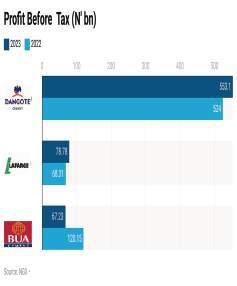
commended the three cement producers for maintaining dividend pay out to shareholders amid macro economic headwinds.
Speaking, the Vice Chairman, Highcap Securities Limited, Mr. David Adnori expressed further that the sector last year witnessed severe foreign exchange losses, yet the management acted prudential in reducing cost and improving on bottom-line in their quest to reward shareholders.
He added that the dividend declared was below these companies Earning Per Share (EPS), “yet the dividend should be applauded by shareholders due to economy situation in the country.”
Commenting on Dangote
Cement’s 2023 performance, analysts at Cordros Research said, “Dangote Cement sales performance in the Pan African region was remarkable and we like the business’ resilience in ensuring profitability in the face of slow sales in its Nigerian operations amid inflationary and currency pressures.
“For 2024, we envisage that Pan African sales will maintain its uptrend while higher cement prices will remain the key driver of turnover in Nigerian operations. Furthermore, we point to Dangote Cement’s costs controlling efforts, including fuel mix optimisation, shifting towards alternative fuels and gradual transition from diesel delivery trucks to full Compressed

Natural Gas (CNG) trucks and believe these initiatives will help sustain margins in the near term.”
Commenting on the cement industry, CardinalStone in a report explained that, “As Nigeria’s cement industry reflects on a challenging 2023, characterised by demandstifling events like the cash crunch orchestrated by a poorly executed currency redesign policy, the material currency devaluation, and bouts of heavy rainfall, its hope for a gradual recovery in 2024 feeds off the return to relative macroeconomic normalcy and early gains from tough policy reforms.
“In 2024, the Nigerian cement industry is expected to benefit from renewed government focus
on infrastructure development and construction projects, which could stimulate demand for cement products. With increased budget allocations to critical sectors and ambitious infrastructure initiatives (N1.32 trillion to infrastructure, which represents five per cent of the total FG 2024 budget), the construction industry is likely to experience a resurgence. Cement manufacturers, in response, are beginning to recalibrate their production strategies in the form of capacity expansion and improved efficiency to meet the anticipated rise in demand.
remained a welcome development.
In statement by his Chief Press Secretary, Ahmed Idris was quoted as saying Kebbi state was in dire need of investors who would come and invest in the state, create job opportunities and make life easy and meaningful for the citizenry.
Idris assured that all the 21 Local Government Areas of the state were endowed with abundant mineral resources, adding, “All the LGAs of the state are rice farmers.
He said, “Let me correct the statement made by the leader of this delegation that Kebbi is the second
largest rice producer in Nigeria, Kebbi is not in second position but is the largest rice producer across Nigeria.”
The governor assured the readiness of his administration to send a high powered delegation to China for more collaboration and cooperation in various sectors of the economy for the good of the two countries
Earlier, the leader of the delegation and Special Researcher in the council, Mr Li Zhensheng sought for synergy with Kebbi Government on different sectors of the economy.
He said the essence of the visit
was to facilitate comprehensive bilateral relationship between China and Nigeria as a whole and Kebbi in particular.
Zhensheng listed the areas of collaboration to include; infrastruture, agriculture, education, industry, tourism, mineral resources and cultural exchange among others.
He said: “For over 40 years now, China has been recording successive successes in different sectors of the economy, so, we are here to share our success story with Kebbi Government to facilitate its rapid growth and development.
“The development will be actualised through a systematic means rather than pragmatic. On the delegation, we have experts that will discuss with Kebbi Government on areas of collaboration.
“We understand that Kebbi is the second highest producer of rice in Nigeria, hence, the need for our collaboration to see how we can boost the production through the use of modern technology.”
He assured that it was part of their intent to upscale the plantation of rice to two to three harvests per year, adding that they also wanted
to open-up opportunities for various processing industries to thrive towards improving the livelihood of Kebbi people.
While advocating for a sister-state collaboration with China, the team leader said when they go back, they would write a report to China Government recommending Kebbi for a bilateral relationship for the benefit of both parties.
He said they sought for synergy based on win-win results, with optimism that it would be a best example for others to borrow a leave.
The Nigeria Customs Service under Bashir Adewale Adeniyi, has undergone internal process of rebirth, massive reforms, which focused on core values of service efficiency, trade facilitation, plugging revenue leakages. The reforms has transformed the service and improved revenue generation, writes eromosele Abiodun
Like many agencies of the federal government, the Nigeria Customs Service (NCS) in the last few years lost focus and needed massive reforms. There were reports of sundry misbehavior by men of the NCS. The Lagos-Badagry Expressway and Apapa-Oshodi Expressway were littered with roadblocks where extortion and all manner of activity took place. A certain strike force took over the job of Federal Operations Units across the country and the service generally lacked direction. As part of his effort to rebuild the Nigerian economy, the government of President Bola Tinubu wanted a customs that will contribute massively in terms of not just revenue generation but trade facilitation. So, on July 18, 2023, President Tinubu approved the appointment of Bashir Adewale Adeniyi as the Ag. Comptroller General of the NCS. About two months after, the President via a letter issued by the office of the Secretary to the Government of the Federation (SGF), announced the confirmation of Adeniyi as the CG, effect from October 19, 2023. Adeniyi’s appointment was seen as a major move to resuscitate the service after several years of inept leadership.
For most operators in Nigeria’s supply chain segment, the appointment of Bas Adeniyi remains unarguably, one of the best made by Tinubu since he assumed office on May 29, 2023. This general conclusion stems from the timing and appropriateness or fitness for the job. For the timing, the appointment brought to an end the eight-year era of militarised Customs Service, which had put officers, men of the service and even stakeholders on edge while it lasted. This in no little measure, brought about despair, poor motivation, with the attendant toll it took on service delivery, trade facilitation, among several others. In terms of fitness/appropriateness, the appointment was that of the best man for the job or what many of the stakeholders have described as a round peg in a round hole. This is given that Adeniyi grew through the ranks across different commands. Adeniyi possesses years experience in customs administration covering strategic and operational responsibilities. He posses deep understanding of the complex and constantly evolving international trade landscape. He has strong command of Customs regulations, laws, and procedures as well as the ability to navigate and adapt to changing policies and regulations. He has demonstrated excellent communication and leadership skills responsible for leading teams of customs officials, working closely with stakeholders across a variety of industries. Adeniyi built strong relationships with stakeholders and collaborated effectively to ensure efficient and effective movement of goods across borders, over the course of his career. He has a keen eye for details and ability to identify potential risks and areas of non-compliance. This is evident in effective risk management strategies, guidance and support developed and implemented for his teams to ensure that all customs procedures are followed accurately and efficiently. Little wonder, Adeniyi, hit the ground running, as he left no one in doubt that he was very conscious of the arduous and enormous task of repositioning and refocusing the already balkanised service.
In his maiden address to the officers and men of the service on his resumption tagged, “Embracing a new era of excellence,” he said: “Today, we stand at the precipice of an exciting future, one that builds upon the achievements of the past and takes us even further. Our administration is committed to adopting a bottom-up approach, where the needs of our dear nation take precedence over everything else. We will prioritise efficiency in service delivery as the bedrock of trade facilitation and revenue generation. No longer shall encumbrances impede trade; we shall

dismantle obstacles and foster a new culture of consultations and compliance.
“In order to achieve our objectives, it is imperative that we bridge the current human resource gap within our ranks. We recognise the importance of capacity building and career advancement for our officers. The administration will work diligently to implement career advancement opportunities approved by the board, ensuring that competence remains the sole criterion for assigning responsibilities and measuring effectiveness. Our focus is on cultivating a highly skilled workforce that is equipped to face the challenges of a rapidly changing world.”
Eight months down the line, Adeniyi has lived this talk, as can be seen from what he is doing so far. For instance, in addition to addressing the issue of poor remuneration of the personnel, which was typified in the payment of 13th-month salary, the management has embarked on what many have described as an ambition housing scheme for the personnel. Under this scheme, the service is in partnership with the Cooperative Mortgage Bank CMB for the construction of a total of 5, 009 housing units nationwide. The scheme would provide various types of one-bedroom bungalows, two-bedroom semi-detached bungalows, three-bedroom semi-detached and semi-detached bungalows and four-bedroom bungalows, among several others for different cadre of personnel.
As a team player, who is conscious that every unit within supply chain plays crucial role for the overall efficiency of the entire trade circle, Adeniyi on assumption of duty, reached out to every segment of the industry and even beyond, engaging in partnerships with purpose. It is on record that the service under his supervision entered into such synergies with the Nigerian Army in an effort to curb smuggling. Specifically, the NCS under his supervision recently signed a Memorandum of Understanding (MoU) with Federal Road Safety Corps (FRSC) as part of measures to forestall the smuggling of vehicles through which the Federal Government has lost huge sums of money from import duty on imported motor vehicles, among several other partnerships.
One of the most important and strategic partnerships is that with the Nigerian Ports Authority NPA, which both parties renewed recently in line with efforts to boost non-oil exports, especially agro- allied products and also facilitate trade.
The renewed synergy was voiced when the Managing Director/CEO of NPA, Mohammed Bello -Koko visited the CGC in Abuja, August last year. This renewed partnership with purpose focuses on enabling the ease of processing export products by eliminating all procedural bottlenecks that constitute delays and affect the competitiveness of Nigerian goods especially agro-allied products in the international market place.
The Customs-boss, who commended the NPA for creating Export Processing Terminals (EPTs), which have advanced the fortunes of non-oil exports, assured that the service was finalising efforts at streamlining the multiplicity of Customs Units / checkpoints, evacuation of overtime cargo from the ports, speedy relocation of the Customs facility standing on the rail link of Apapa Ports and resolving all challenges to pave way for the optimisation of Ikorodu Lighter Terminal.
Adeniyi has also within the last eight months, lived up to his pledge to ensure effective implementation of the new Customs Act 2003, signed into law by former President Muhammadu Buhari. In addition to providing for modernised Customs operations, the new legislation ushered in substantial modifications to the previous protocols governing the disposal of overtime cargo. Part of these provisions of the NCS Act 2023 mandates the disposal of cargo exceeding its allotted time, which can now be disposed of only through a court order. The new Act further provides that such goods must be disposed of through widely publicised public auction or tender. It was in order to enforce these provisions of the new legislation that the CGC convened a meeting with stakeholders in Lagos to address the urgent need for the evacuation of more than 7,000 overtime containers that have remained for years across the ports over the years, which had also constituted
a clog on the wheel of efficiency of the seaports and terminals. Additionally, there were also discussions on 48-hour Customs cargo clearance in line with efforts to facilitate trade.
trAde moderNiSAtioN projeCt
The Comptroller General has also within the short period of time, through the instrumentality of synergy, substantially cleared several of the illegal checkpoints on the Lagos-Abidjan trade corridor, which had before now, constituted a serious hindrance to free flow of legitimate trade. The Customs management is currently optimising implementation of the Nigeria Customs Service Trade Modernisation Project TMP, which is aimed at further promoting trade facilitation. When fully operational, the project would enhance a unified Customs management system, trade portal, and cargo release system. These come alongside other automation services such as big data and artificial intelligence AI, integration and document management system, as well as transition and handbook, which covers technology upgrades and enhanced capacity building. The project, which has received a major boost in the last eight months, has severally been identified as a milestone, as it highlights the significance of digitisation for transparency, efficiency, and effectiveness of port operations.
the N5.079 reveNue tArGet
Recently, the Senate approved a total of N5.079 trillion as a revenue target for the service for the 2024 fiscal year. This target, which is the highest in the history of the service, follows the superlative revenue performance of most commands, which far exceeded their targets for the previous year, having been given both operational and financial incentives, which boosted the morale of the personnel.
Similarly, the upper legislative chamber approved a N706.4 billion as budget for the Service for the 2024 fiscal year. A brief analysis of the budget shows one that focuses on developmental and infrastructural projects for the service, as capital expenditure far outweighs current, which is very good for the service. For instance, personnel and overhead costs stood at N225.99billion and N111.76 billion, representing 31.99 per cent and 15.82 per cent respectively of the budget. Also, ongoing capital projects stood at N148.42 billion while new projects, which represents 52.19 per cent, earmarked for N220.26 billion, which financial experts have described as a healthy budget.
In terms of revenue generation, the service in the 2023 fiscal year achieved a revenue milestone of N3.2 trilion, which represents a 21.4 per cent growth when compared to the N2.64 trillion recorded in the preceding 2022 fiscal year. This revenue performance remains a remarkable feat, considering that the service recorded a N532 billion revenue shortfall as against the projected N1.84 trillion in the first half of the year, about the same Adeniyi was appointed CGC. Reacting to the superlative revenue performance unveiled last month, he said: “This is definitely a remarkable achievement, given the low cargo volumes recorded in the 2023 fiscal year coupled with the harsh operating environment, operational challenges and other socio-political factors.” He however assured that the service would do even better in the 2024 fiscal year.
Recently, the Bashir Adewale Adeniyi –led management of the service took further steps to consolidate the milestones already achieved in its anti-smuggling campaign with the proposed deployment of virtual reality technology to boost trade efficiency and smuggling control. nAs part of efforts to achieve these, the service has commenced collaborations with the World Customs Organisation (WCO) and the CCF of Korea. This synergy will also include other technological advancements, including training of officers on radioactive elements to prevent smuggling.
The CEO and Co-founder of SecondSTAX, Mr. Eugene Tawiah in this exclusive interview with Kayode Tokede stated that technology has contributed to the overall growth and development of African capital markets amidst uncertain in the global and domestic economic environments. He also spoke about his trading app that has incorporated the Nigeria Exchange Group, Ghana Stock Exchange and Nairobi Securities Exchange. Excerpts
On October 6, 2023, SecondSTAX was introduced to Nigeria’s capital market community. Take us through the success stories far?
Nigeria’s capital markets represent a significant and growing opportunity for investors across the continent. Especially when you consider the outstanding performance over the last few years. At SecondSTAX, we are excited by this opportunity and we have been working with various market players (pension funds, large broker-dealers, asset managers, etc) to enable easier access to these opportunities. Our process typically involves two stages - putting the infrastructure in place to enable visibility and trading across all markets, and working with market participants to take full advantage of the tools that are now available to them.
Our platform is designed to give market participants a single view of opportunities across the continent to inform and enable effective trading. We are also compiling market news and research from credible sources with local expertise to enable informed decision-making. By combining this with our capabilities on execution, market players can now access reliable information on what is happening locally, see what analysts are saying and effectively execute a trade on one platform. Our users across the continent now have access to these services and they can better position themselves and their clients to access more lucrative investment opportunities from Nigeria and across the continent.
How many Exchanges have been onboarded so far and the prospect of expanding to other countries?
SecondSTAX has partnered with three prominent exchanges, Nigeria Exchange Group (NGX), Ghana Stock Exchange (GSE), and Nairobi Securities Exchange (NSE). These collaborations mark the beginning of our efforts to unite all of Africa’s capital markets. As we continue to expand our reach, we are actively pursuing additional partnerships across the continent, to effectively connect
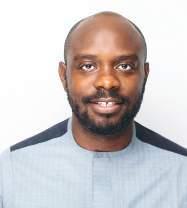 Tawiah
Tawiah
and create an efficient and accessible framework across Africa’s vibrant financial ecosystem. Despite having some of the best-performing stocks and bonds globally, Africa’s exchanges are largely inaccessible to investors outside the jurisdictions where they have been listed. Over the last decade, African capital markets have raised more than US$ 246 billion in debt capital markets. More than US$ 87 billion has been raised in equity capital markets and equity indices have peaked at over 50% growth across the major regional exchanges. However, the siloed nature of these exchanges and insufficient data on the risk profiles of assets have led to limited access to capital for markets and access to high-growth assets for investors.
How has SecondSTAX been able to navigate foreign exchange differences with Stock Exchanges currently on your platform?
The SecondSTAX portal offers users the convenience of investing in their local currency. Our platform allows investors to seamlessly engage in transactions using their native currency, eliminating the need for complex foreign exchange conversions. This feature not only enhances accessibility for users across the continent but also fosters a more intuitive and user-friendly investment experience. Whilst we are waiting to be integrated into the PAPSS infrastructure to be available for us to plug into, we have partnered with licensed forex liquidity providers in each of our operational jurisdictions, which are allowed to exchange local currency for our investment firm clients e.g., for a Ghanaian broker who wants to purchase DANGCEM on the NGX, the licensed FX liquidity provider can transfer their Cedis in Ghana from the originating broker, and settle the executing broker with Naira in Nigeria for the trade without the need to touch any other intermediary currency like USD.
In connecting Africa’s capital markets, how is SecondSTAX sourcing for capital and meeting the regulatory requirements of each country?
Our existing funding was secured from Private and Venture Capital investors to develop technology solutions to enhance intra-Africa capital and investment flows across the continent, with an initial B2B focus. Regarding meeting regulatory requirements in each country, partnerships with large established licensed brokers in each jurisdiction have helped. We have been able to present to the regulators a pathway to understanding our technology as an enabler, so we can effectively operate within the rules for that particular exchange. With that clarity, we satisfy the regulators’ needs especially when it comes to KYC verification for client onboarding and also settling with
designated banks and custodians that the partner brokers already work with regularly. Since the role of the capital markets regulators is to manage and assess the risks of new ideas, innovations, and processes, it has been part of our mandate to be transparent in our operations and technology, which facilitates trade by routing orders to existing mature exchange infrastructure. As such, are not introducing features or functions that will present potential risks to the ecosystem. So as we remain open and place a premium on educating them on our approach to integration, they get more comfortable with the concept of using technology to drive more volumes and price discovery across the ecosystem. As we continue to get approvals in conjunction with our partner brokers in multiple jurisdictions, other regulators are more comfortable that initial thorough due diligence has been done elsewhere. They can then apply whatever additional nuances they have within their respective market, and we can move through the certification processes as we prepare for launch. That partnership with large established brokers has been essential and has helped us grow quickly in multiple markets that we are in.
How has your product crystallized institutional investors trading across Africa into Nigeria’s capital markets, which is currently the bestperforming market in Africa?
Investment firms on the SecondSTAX platform in Ghana and Kenya (and others in our business development pipeline from other regions) are quite excited about having the Nigeria market access currently. It is much bigger than both Ghana and Kenya combined when it comes to market capitalization and also provides more options for investors in major sectors like financials, telecommunications, consumer goods, industrials, and energy (oil & gas).
In this interview, the Head, Structured Trade and Commodity Finance, at The Alternative Bank, Mr. Gbenga Awe, spoke extensively on the commodities market, its potential, use as hedge against inflation as well as other industry issues. Nume Ekeghe presents excepts:
Introduce yourself and what you do at Alternative Bank?
My name is Gbenga Awe, and I am the group head of structured and commodity finance at Alternative Bank.
The group comprises four verticals, including the mining sector, structured trade, trade finance, agric finance, and market and business intelligence
How big is the opportunity in commodity markets compared to money markets?
The opportunity is substantial. Commodity markets are influenced by geopolitics, which plays a crucial role globally. Recent events, such as Russia’s invasion of Ukraine, have demonstrated the impact on commodity prices worldwide.
In Nigeria, due to the informal nature of the sector, quantifying the market size is challenging. However, with data from the Nigeria Bureau of Statistics, an estimate of the commodity market size can be derived.
While money market figures are readily available through indices like the All-Share Index, the robustness of the commodity market doesn’t solely rely on easy quantification. Efforts to formalize the sector, including the establishment of commodity exchanges like the Lagos Commodities and Futures Exchange, aim to provide more transparency and data for accurate market assessment.
With the recent hike in MPR, investors usually tilt towards safer instruments and if the commodities markets and all these various exchanges are coming up, what will be the incentive to come there when there is a safer haven in high interest rates?
Long before the hike in MPR, investors have been flooding into commodity markets. Commodities bring to the table, a natural hedge
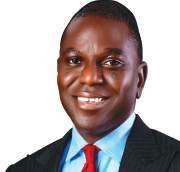
NOTE: The story continue online on www.thisdaylive.com Awe
against inflation. So, we have seen people entering the commodity markets for the past two years now. It has been growing.
At the apex of it, we have few players with deep pockets. So, what we have seen is over time, for commodities that have export value, the likes of soya beans, the likes of sesame, and the likes of cocoa, cashew, and Gold which is top on the chain when it comes to natural hedge against inflation. We also have our gold coins called AltCoin.
On commodities, Cocoa is currently doing about 10 million per ton and we were in Akure in January, then cocoa was about 5.5 million. So, you can see the effect of inflation on the price of cocoa. Even in the international market, the price of cocoa butter which was about $9,000 per ton in January is trending around $12,000. Now, so the effect of inflation within the country and the hike global commodity market is putting a lot
of pressure on the commodity markets.
Sesame, three years ago, was doing about N750,000 to N850,000, currently, sesame is doing close to N2 million per ton because commodities is geopolitics and geopolitics rule the world and now there are imported pressures from our neighboring countries.
If we can focus on gold because gold seems to be a major commodity that we have and it’s something that we are not capitalising on right now. I understand that Alternative Bank has minted gold, can you speak on that, why gold and what are the opportunities for investors?
When we launched the Alternative Bank, by the way, it has been operational for close to a decade; we just decided to become a stand-alone last year; thanks to regulatory agencies that granted us approval. The launch was tagged ‘gold standard’ because of the exceptional nature of the bank. We took a decision to be able to democratise that space to create investment, both for retail investors and for big boys. So, we source our gold within the country. We have adopted responsible sourcing because when it comes to gold, you need to check all the boxes for responsible sourcing. We source our gold in line with responsible sourcing and we decided to work with partners abroad because we currently don’t have any refinery in Nigeria. If you are to sell gold, we should sell gold in line with international best practices.
We have our partners abroad, we took the gold there, refined and now minted it into coins of 50 grams. And we brought it back into the country having paid appropriate royalties.
As at the time we started business, a kg of gold was doing N37 million, a kg of gold
now is over N100 million and as I mentioned, gold is a natural hedge against inflation. So, what we’ve done for retail investors it may be difficult to afford the value of the 50 grams of gold which is the size of a coin. The coin is 99.9 nice that is 24 karat so we came up with the idea of tokenization for retail customers to get a share of a coin.
Presently the return on savings today is less than inflation.
So, in terms of the real value of money we are actually worse off. In an inflationary environment saving suffers. So, what we’ve done is we’ve created the opportunity for retail investors to put in money over time, they enjoy the upside that comes with the value of gold. The gold were bought at different intervals. At a point about N35 million per kg, it went up to N55 million and now, a kg of gold is way above N100 million. We are also in a position to work with the federal government and the necessary ministry to develop a framework for sourcing precious metals in a responsible way.
With the fluctuations in exchange rates, how would this affect the price of gold coin in the future?
Fluctuation in the exchange rate will not only affect gold; it affects all commodities, especially as most commodities are internationally traded. All it takes is to go to Bloomberg or any forum, and you will get the price there.
When you want to go into investment, you must consult your investment or financial adviser because you need to know, and you should be able to do a projection of where this price will be.
The Nigerian Institute of Quantity Surveyors (NIQS) has appealed to the federal government to urgently intervene in stabilising construction costs in the country in the face of hyperinflation.
The President of the Institute, QS Kene C Nzekwe, stated this at a press conference on “Addressing the Impact of Hyperinflation on Nigeria Construction Industry: Urgent Need for Government Intervention for Stabilising Construction Costs in Nigeria,” that was held in Abuja recently.
According to QS Nzekwe, “The urgency of the situation cannot be overstated. The Nigerian construction industry is at a critical juncture, and swift government intervention is imperative to stabilise construction costs and safeguard the future of our nation’s
infrastructure development.”
The institute made some recommendations it wants the government to implement and implored “the government to consider the recommendations put forth and work collaboratively with the Nigerian Institute of Quantity Surveyors and other relevant stakeholders. Together, we can overcome the challenges posed by hyperinflation and build a stronger, more resilient construction industry for the benefit of all Nigerians.”
The Institute blamed the current economic woes on various factors, including “government budget deficits, fuel subsidy removal, currency float, and insecurity, affecting productivity and leading to moribund industries.”
Recommendations
They proposed “strategic interventions to mitigate the
impacts of hyperinflation”: Engaging Local Manufacturers: The knee-jerk reaction of persuading manufacturers to bring down the prices or face dire consequences at this stage may be counter-productive. Our recommendation will be for the government to sustain engagement with local construction material manufacturers to understand and address their challenges. Some of the challenges highlighted by the local manufacturers include exchange rate volatility which has seen our currency depreciate by about 300% in a few months thereby affecting the imported components of their manufacturing like spare parts, mining explosives and import tariff which is indexed in US Dollars.
Combatting Oligopolies: While addressing the challenges faced by the local manufacturers, it is also important
that the government look at the structure of the building material manufacturing industries, especially cement manufacturing. Oligopolies and cartels in the construction materials manufacturing industry must be discouraged. Perfect competition should be the aim, aligning local production prices with international standards. The government should incentivise market entry for new producers into the construction material production space by lowering licensing requirements. This is in a bid to boost competition and drive down prices of basic construction materials like cement. Strengthening the Federal Competition and Consumer Protection Commission (FCCPC) is vital to guard against antitrust tendencies, especially in the construction material manufacturing sector.
Stabilising the Exchange
Rate: The government must employ a mix of monetary policies and exchange rate policies to stabilise the exchange rate, making our currency competitive globally. The clamp down on saboteur Bureau de Change (BDC) that are distorting our economy should be sustained and the system cleansed until all forex transactions are transparently done in a regulated manner not hawking currency on the streets as it is currently being done.
Implementing Friendly Tariff Regime: A friendly tariff regime for imported materials and plants is crucial. Government should adopt a temporary measure of lifting restrictions on the importation of some construction materials which have been restricted hitherto to neutralise any attempt by local manufacturers to manipulate the prices.
Involvement of Quantity Surveyors: In a press briefing in October 2023, the Minister of Works, Engr David Umahi spoke about the challenge the Federal Government has been grappling with in recent times is the escalating fluctuation claims on road projects. The minister in the viral video of that press conference even advised the handlers of the project at the ministry of works to go and learn from the quantity surveyors how to manage price fluctuation from the first principle. This issue is poised to worsen in the current era of inflation, posing a significant threat to the financial integrity of government infrastructure initiatives. It is in this context that the engagement of quantity surveyors becomes crucial to assist the Federal Government in navigating these turbulent waters.
The Managing Director and Chief Executive Officer of Richland Property and Homes Limited, a Lagos-based real estate development company, Dr. Ifeanyi Nwachukwu, has advised the federal government to remove unnecessary taxes on building materials and tax waivers on some imported items to stem the soaring construction cost.
Nwachukwu, who gave the advice at a press conference, stated that the government must “intervene by providing an enabling environment for cement manufacturers to produce at a cost that Nigerians can afford.”
He said the cost of cement, iron rods, wood, roofing sheets and other building materials are rising uncontrollably, making it difficult to predict construction cost and that this could truncate the plans of some developers who are not very strong in the business.
“Permit me to say here that the real estate sector is not by any means insulated from the challenges thrown up by the rising cost of building materials and services as a result of the
current economic situation in the country.
“We hope that the government would come up with interventions that would boost our efforts to continue helping more Nigerians become happy homeowners in line with our vision and mission.”
On investment in real estate, he said Richland Property and Homes has a project known as land-banking that is designed to provide good returns on the investment of prospective homeowners in the company’s estates.
He said, “Landed properties are the only investments that do not depreciate but keep appreciating whether cared for or not.”
According to him, “Invest in land-banking in any of our estates and get great returns on your investment (ROI) from 20 percent (for 12 months) to 65 percent (for 24 months). What this means is that when you invest in a certain square metre of land in any of our estates and hold it for a certain period of time, between 12 to 24 months, we rebuy it from you and pay you both the capital and interest.”
Nwachukwu said, “At Richland Property and Homes Limited, we create wealth by empowering enterprising individuals, especially, young people, whom we have helped to earn passive income through real estate.
“Through our diverse networks in the industry, we help Nigerians to discover affordable properties in fast developing areas across the country, and equally help them to obtain them. Since we commenced operations, our esteemed clients can testify that every property purchased from us is 100 percent safe.
“In keeping with our guiding vision, our clients do not need to be moneybags to acquire any of our properties. We have a very client-friendly payment arrangement whereby people can pay on installments that are very affordable to many Nigerians. We must hasten to add that all our titles are government approved, ranging from registered surveys, gazette, C of O, Governor’s Consent, etc.
“People have asked us why there is a large concentration of our properties in the Ibeju Lekki area of Lagos State. As many
of you are already aware, Ibeju Lekki is a rapidly developing area distinguished by its immense potentials for investments and development and so is fast becoming a choice area for many enterprising Nigerians to locate their homes and businesses.
“The area is strategically positioned to benefit from various government initiatives and
infrastructural developments, such as the Lekki Free Trade Zone, Lekki Deep Sea Port, etc., and other industrial projects already springing up there. The area is also home to the Dangote Refinery with its vast network of business activities and thousands of staff, and equally the several ancillary businesses that usually spring up wherever
petrochemical industries are sited. “Richland Property and Homes ensures physical allocation of properties purchased from us immediately. In fact, once payment is made, allocation will be done immediately. And what we are selling is not just any property, but we offer our clients standard and smart estates with beautiful features.”
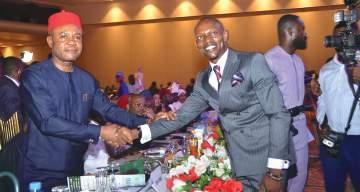
The National President, Building Collapse Prevention Guild
(BCPG), Tpl. Sulaimon Alabi Yusuf, has said that the depreciation of the Naira exacerbates building collapse in the country.
Tpl Yusuf stated this at an event, ‘Walking Towards Zero Building Collapses’, organised by the BCPG Lagos State Chapter’s
The Council, Chartered Institute of Forensics and Certified Fraud Investigators of Nigeria (CIFCFIN) has confirmed the appointment of Dr. Isa Salifu as the substantive Registrar/ CEO. This was disclosed at its first Extra-Ordinary meeting for 2024 which took place yesterday.
Dr Salifu has been acting in that capacity for the past few months, providing needed
leadership and stability to CIFCFIN Secretariat. His confirmation is geared towards repositioning the efforts of the Institute in carrying out its mandate of rooting out fraud and corruption in Nigeria using cutting edge forensic tools and expertise. CIFCFIN is the only professional body chartered by statute with a multidisciplinary and multi-sectoral mandate
to advance and promote the practice of forensics and fraud investigations in Nigeria.
Dr. Isa Egah Salifu is an accomplished and seasoned professional, a banker, chartered accountant, tax consultant, certified forensic expert/accountant and a certified management consultant with diverse educational, professional and career achievements.
‘Sensitisation Walk’, held in Lagos recently.
“Today, I would bring to our attention what can be called an ‘accelerant’ in the causation of building collapses in the state. “This accelerant is the depreciation of the value of the national currency, the Naira. As at the preparation of this brief address, the Naira had fallen to approximately N1,500 against the Dollar, over 100 percent depreciation in just about 6 months. This means that the cost of building materials will rise astronomically. I’m sure the Quantity Surveyors and Builders present can corroborate.
“The expected rise in the cost of building materials such as cement, fittings and even wages for artisans and professionals
in the built environment would eventually have a ripple effect that would see further proliferation of substandard goods – as more builders would seek to cut cost by all means - and an increase in the patronage of quack professionals and untrained artisans. The effects of these emerging menaces may not be felt immediately, but in 3 to 4 years’ time we may begin to see even more building collapses.”
He said, “This sensitization walk is therefore an opportunity to bring this emerging challenge to our attention and is also a call to action. The Ministry of Physical Planning and the Office of Urban Development have strong roles to play.
“They must double their efforts in ensuring that building standards are kept by all builders
and must begin to fund research or operationalize the results of previous research on Local/ Traditional Building Materials. It has become necessary to look inwards in order to reduce the effects of a depreciating naira. The Standard Organisation of Nigeria also must take extra care in ensuring that only quality building materials are in the market. We must have a hard-line on this.
“The government must train even more artisans and professionals in the built environment. It is my strong opinion that each Local Government Area must have at least one training school where youths can get trained and become skilled in different areas of the built industry.

In bid to support small businesses, Access Bank Plc has launched “YouThrive”, an initiative, which targets to empower 700,000 MSMEs in the country through a 50 billion loan.
Deputy Managing Director, Access Bank, Victor Etuokwu, announced this during a press briefing in Lagos. He also revealed that the MSMEs that would benefit from the programme would undergo training to enable them optimally make use of the loan.
He said: “Access Bank is set to financially empower over 700,000 youth MSMEs and to achieve this, we have set aside N50 billion to lend to them at a huge, discounted interest rate. To be eligible to access this loan, all applicants
must be within the ages of 21 to 40 years.
“The Youthrive’ is a transformative initiative designed by Access Bank to empower, uplift, and accelerate the next generation of MSMEs. In the next four years we will empower 4 million youth, one million per year. It would not just be about lending, we are building various capacitybuilding activities for them, and the curriculum will be centred around Technology, Creatives, Business Management and Skill acquisition.”
Head, of Emerging Businesses, Access Bank said Chioma Ogwo, said: “In four years, we hope to empower four million people, or one million each year. We have a business exchange program for the beneficiaries that would enable the SMEs to
go and exchange ideas with their counterparts in other countries. Every year, 700,000 would be given access to financing, and 300,000 would be trained. After then, we will take the best advice from the best and return to Nigeria to implement it.”
Speaking on this initiative, Senior Special Assistant to the president on job creation and MSMEs, Temitola Adekunle Johnson said that the initiative by Access Bank will help address the issue of access to affordable loans by small businesses.
He said the endpoint is to achieve a single-digit loan by commercial banks for MSMEs adding, “Our aim is to ensure single digit loans become the norm for MSMEs.”
He disclosed that disbursements will be made after the loan assessment is processed.
The Nigeria Customs Service (NCS) has announced a 90day window for regularising import duties on specific categories of vehicles that were deemed to be improperly imported into the country.
The service, under the directive of the Minister of Finance and Coordinating Minister of the Economy, Mr. Wale Edun, said the proactive move seeks to enhance compliance and streamline import processes.
In a statement, Customs Public Relations Officer, Chief Superintendent Abdullahi Maiwada, said the initiative applied solely to vehicles imported into the country where the requisite customs duty had not been fulfilled or vehicles detained due to undervaluation.
He, however, pointed out that, “While we strive for inclusivity, it is important to clarify that vehicles seized and condemned will not be released under this arrange-
ment and shall be forfeited to the federal government under extant regulations.”
He said all vehicle owners, importers/agents seeking to regularise import duties on their vehicles are required to apply to the Zonal Coordinators (Zones A, B, C, D) and CAC FCT Command.
“They must submit the necessary available documents and process VREG in line with the Federal Ministry of Finance directives for the registration of imported motor vehicles.”
African Alliance Insurance has expressed commitment to exceeding expectations of its stakeholders, particularly in this period of hard times.
The company, a stalwart with over 62 years of expertise in the life assurance sector, is presently charting a course to making live more meaningful and worth living for both the customers and shareholders.
The new direction, an outcome of recent retreat and strategic evaluation of both the local and global happenings that have the potentials to reduce life expectancy, is expected to usher in intentional actions and policy options that will illuminate the lives of its stakeholders.
In a resounding affirmation and demonstration of Commitment to this course, Managing Director Joyce Ojemudia, in
a chart with select Journalists in Lagos declared, “African Alliance remains committed to swiftly and professionally settling all valid claims, ensuring enduring happiness and satisfaction for our valued customers.”
Ojemudia said the company had performed the feat before and cannot afford to relent, adding that the present economic and social realities call for efficiency based on cutting edge technology.
Specifically, she said, for instance, from 2019 to 2023, African Alliance exemplified this commitment by disbursing an impressive sum of over N40 billion between 2019 and 2023. The breakdown showed that this substantial payment spanned diverse business units, from individual life, comprising Esusu, Takaful and Annuity totalling about N9
billion in 2019 alone.
Also, in 2020, about N7 billion, 2021,N7.7 billion disbursements were made to reserving customers.
Similarly, the managing director went further, N9.4 billion and N7 billion claims were promptly paid to the delight of stakeholders.
According to her, the exemplary and worthy performance is being carried into 2024, with African Alliance proactively paying out over N1.1 billion in claims within the initial 58 days of the year.
Ojemudia expressed the determination of the board, Management and staff of the company to sustaining the positive trajectory, underscoring the ongoing strategic initiatives aimed at propelling African Alliance to the forefront of the life assurance business in Nigeria.
A former THISDAY Money
Market Correspondent, Mrs Linda Eroke has announced that her book on depression and possible remedies will soon be presented to the general public.
In a statement, she said the rising cases of depression world-wide is a concern for everyone.
She said, “Depression is a mental disorder affecting millions of people in the world and must be taken seriously. More importantly, the current economic situation in Nigeria has significantly increased the rate of depression and reduced the awareness rate.”
The author explained
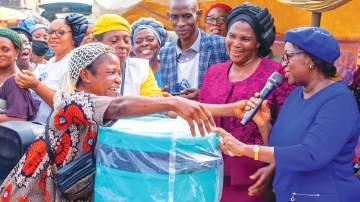
that low awareness rate is a major cause of mental health disorder in the country, which in most cases is recognised as mental illness.
The author of the book titled, “Revealed! 9 Ways I Overcame Depression with Zero Budget,” noted that many people are affected by depression without knowing.
The price of OPEC basket of twelve crudes stood at $81.30 a barrel on Tuesday, compared with $79.70 the previous day, according to OPEC Secretariat calculations. The OPEC Reference Basket of Crudes (ORB) is made up of the following: Saharan Blend (Algeria), Djeno (Congo), Zafiro (Equatorial Guinea), Rabi Light (Gabon), Iran Heavy (Islamic Republic of Iran), Basrah Medium (Iraq), Kuwait Export (Kuwait), Es Sider (Libya), Bonny Light (Nigeria), Arab Light (Saudi Arabia), Murban (UAE) and Merey (Venezuela).
The stock market yesterday sustained its positive run for the second day as the market indicator gained 0.35 per cent on investors’ buy-interest in Transcorp Power Plc and nine others.
The NGX All Share Index (ASI) rose by 342.57 basis points or 0.35 per cent to close at 99,190.46 basis points. Ac-
cordingly, market capitalisation gained by N193 billion to close at N56.083 trillion. Consequently, the stock market Month-to-Date and Year-to-Date returns settled at -0.8per cent and +32.7per cent, respectively. From a sectoral perspective, the NGX Insurance dropped by 3.2per cent and NGX Consumer Goods (-dropped by 0.8per cent, while the NGX Banking advanced by 1.1per cent
Meanwhile, the NGX Industrial Goods and NGX Oil & Gas indices closed flat. As measured by market breadth, market sentiment was negative, as 10 stocks gained relative to 37 losers. Transcorp and Transcorp Power recorded the highest price gain of 10 per cent each to close at N17.27 and N290.40 respectively, while FBNH followed with a gain of 9.88 per cent to close at N31.15,
per share.
TIP went up by 9.77 per cent to close at N2.36, while Juli appreciated by 9.71 per cent to close at N4.52, per share. On the other hand, International Breweries and NASCON Allied Industries led the losers’ chart by 10 per cent each to close at N4.32 and N48.15, respectively, while May & Baker Nigeria followed with a decline of 9.93 per cent to close at N5.08,
per share.
Thomas Wyatt Nigeria depreciated by 9.85 per cent to close at N1.83 and C&I Leasing declined by 9.84 per cent to close at N3.48, per share. The total volume traded decreased by 7.33 per cent to 398.134 million units, valued at N31.789 billion, and exchanged in 10,976 deals. Transactions in the shares of Transcorp Power topped
the activity chart with 87.486 million shares valued at N25.406 billion. Transcorp followed with 68.031 million shares worth N1.175 billion, while United Bank for Africa (UBA) traded 23.350 million shares valued at N519.512 million.
Access Holdings traded 18.473 million shares valued at N380.967 million, while FBNH sold 17.912 million shares worth N540.509 million.


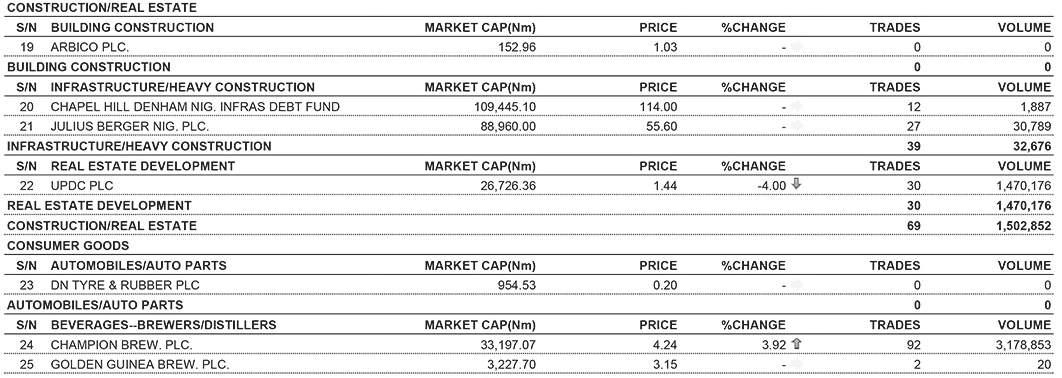
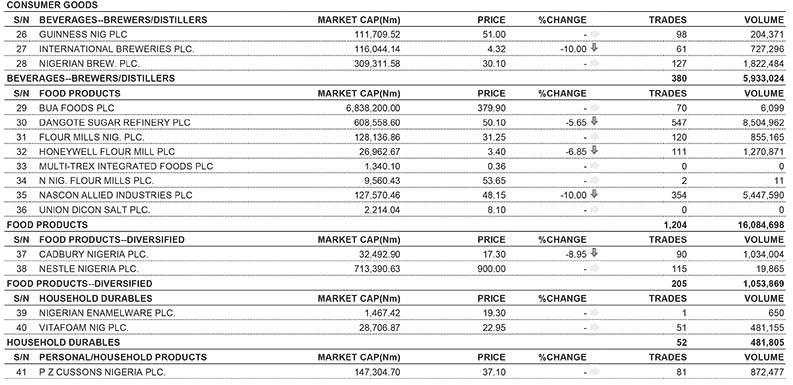

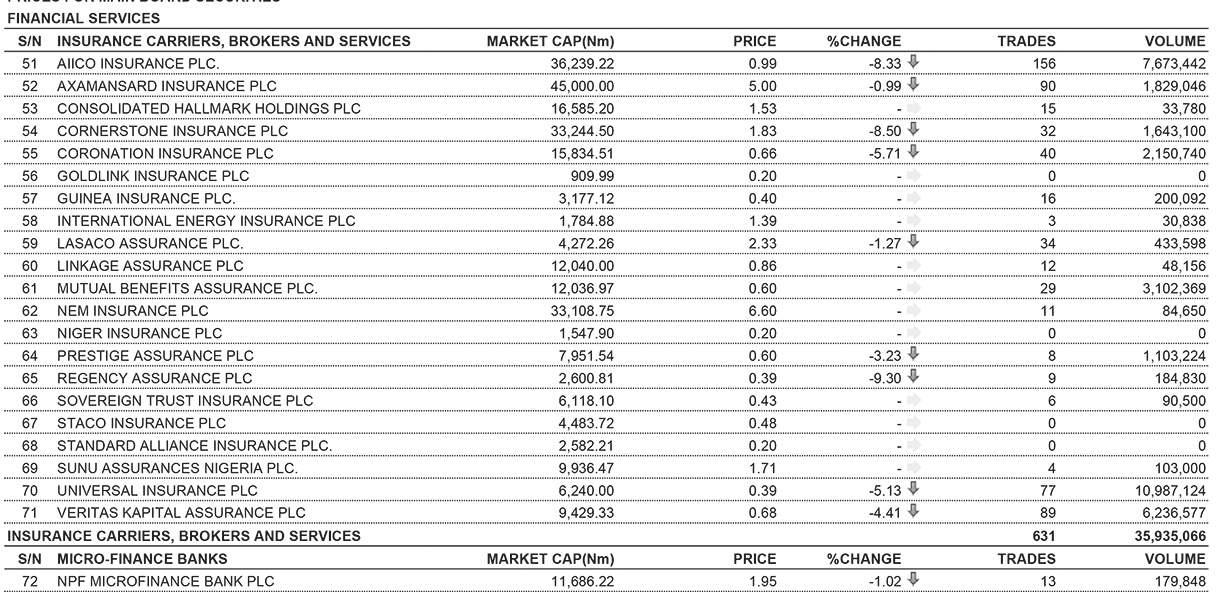

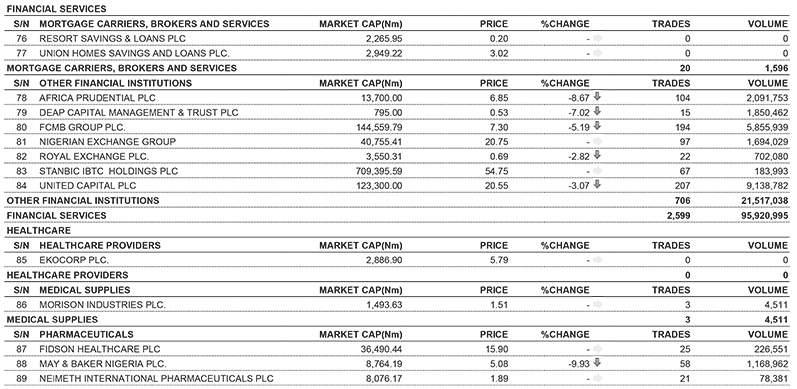
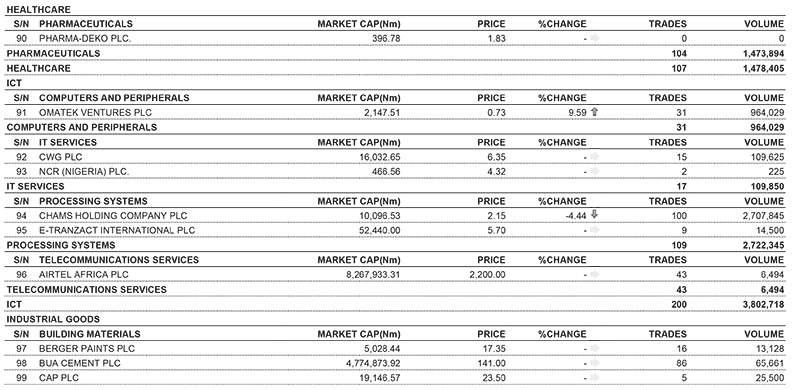
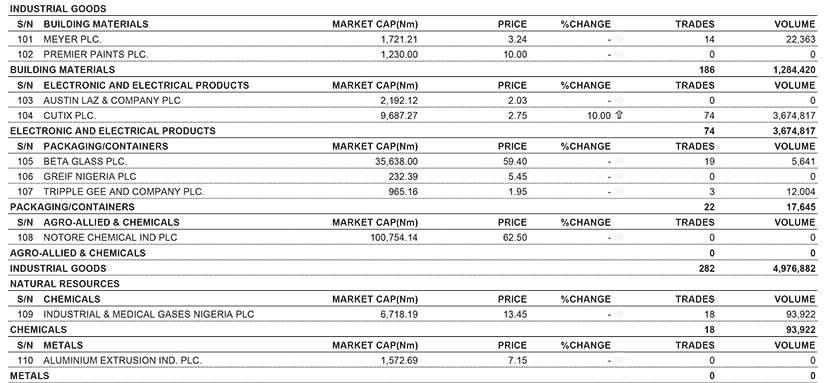



In this interview with Funmi Ogundare, the new Head of the National Office, West African Examinations Council, Dr. Amos Dangut, explained the steps taken by the council to deploy technology for the successful conduct of computer-based West African Senior School Certificate Examination for private candidates and plans to engage with the government to provide the enabling environment to be deployed in schools. He also explained why all stakeholders, including parents, must rise to their responsibilities to stamp out examination malpractices
Since assuming office, your first assignment was to ensure the conduct of the computer-based West African Senior School Certificate Examination (WASSCE) for private candidates. What is your assessment of the exam?
It wasn’t our first time conducting a computerbased test. We used it for our recruitment process. We have an aptitude test department which has also tested some applicants in certain organisations using that method. We have WASSCE in two diets: for private and school candidates. It is the first time we were deploying Cb-WASSCE for private candidates in large scale testing of that nature in this part of the world. I am not aware that any other African country has deployed it in this type of examination. As the leading examination body, with the help of God and dedicated staff who were enthusiastic, we were able to achieve it. It was exciting. It gave us a sense of fulfilment and accomplishment because over the years, we have been strategising, hopeful and waiting for the day when we will actually deploy it. We actually deployed it in the first series of the WASSCE held between January 31 and February 17. The experience was very good, and the process was seamless, and we could see the enthusiasm everywhere. It had the real semblance of what an examination should be. When you are looking at the conduct of the exam, you are looking at a standardised exam which will start simultaneously everywhere. All the venues were air-conditioned, and the candidates wrote the exam in a conducive atmosphere. When you have a standard exam environment, it brings out the best from the candidates.
Were there any challenges?
All the examination centres accredited by the management team met the stringent criteria. There were either laptops or desktops with inverters and generators. So we had power supply. There were no instances across the country that had any challenges.
With the feat you achieved with the private candidates, do you plan to extend the same initiative to school candidates, and do you see other West African countries taking after what you have done?
The examination is terminal for candidates who have completed their secondary school and want to make up for the exam. I have gone to several forums, seminars, workshops and conferences where some other examining bodies are also warming up to adopt the same initiative. Ours really started a long way back, and we had a lot of time for preparation. On whether it will be deployed to school candidates, we don’t really have control of that field because candidates are owned and controlled by the government.
The government provide the environment for teaching and learning, including the equipment. For instance, in the CB-WASSCE that we conducted, we provided all equipment. For the school candidates, the government and school owners will have to equip the environment with facilities for such exams. WAEC helps in developing education standards wherever we
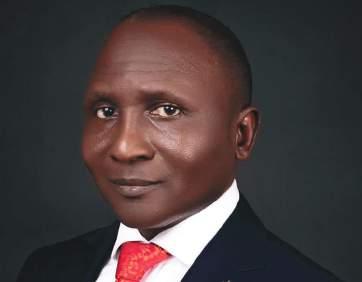
operate. We have just finished conducting this exam. The report is on my table. We are going to distil it. We play an advisory role to education stakeholders. We are planning to engage with the government and we are going to discuss with them our experience with the private candidates exam and encourage them to provide the enabling environment to be deployed in schools. Until they give the assurance and the go-ahead, we can’t do that for school candidates.
When are you hoping to release the result of the WASSCE?
We have a policy that from the date of the last examination, the results will be released 45 days after the conduct. As part of the dividends of technology, processing will be easier and faster. What we did diminished occurrences of examination malpractices. By the time we collate instances of irregularities, you will find out that there will be a significant decrease in malpractice. Another feature of this exam is that the time we process greatly diminishes. So rather than have 45 days to release the results, we are going to do it within a shorter period. We are looking at 30 to 35 days to release the results compared to the 45 days when we were doing pen and paper. We are a technology-driven organisation, and as we speak, we are trying to churn out more innovations.
What plans do you have towards improving teaching, learning and
quality of assessment?
The good thing about it is that we do an assessment of learning and that of education. We assess how much you have learnt and the skills such that you can consider assessment as learning. So you can either do the assessment for learning or as learning. What we do itself is helping teaching and learning. In the process, teaching and learning are developed and strengthened. For instance, when a student is being assessed, in the process, he or she is learning. The teachers involved in the assessment are also building their capacity. So what we do is helping stakeholders in the education sector to improve. We also deliberately offer capacity building for secondary school teachers and lecturers in the university system three times in a year. We coordinate them before they start marking our exams. The capacity building workshop is aimed at refreshing them on what to mark. We also hold specialised training for them. The government or schools invite us to train their teachers in the aspect of delivery in the art of assessment.
Does the training also involve curbing examination malpractices?
We train the examiners who mark our exams on how to detect and report malpractices for appropriate sanctions. Another way of curbing examination malpractices that is potent, is sensitisation, because we found out that some students don’t even know what constitute malpractice. Although legally, ignorance is not an excuse. At many of our forums, we talked about examination malpractices, on our website, we sensitised against it. We have published on our syllabuses what constitutes malpractice
and how to stay out of it. We also sensitised schools, teachers and parents. We do it at many forums including organising road walk shows as well as media. However, we are limited in reaching every candidate, that is why we also engage teachers and principals to carry it to their various schools. Unfortunately, some teachers or principals just get the document containing the information and go to sleep, and at the end of the day, the students cheat. It beats my imagination that those who we have adequately sensitised directly, are recalcitrant and still cheat. I know that if parents really teach and educate their children in the right way, we won’t have examination malpractices. So we keep resting in the hope that parents and all stakeholders will rise to their responsibilities.
Would you say that there has been a drop in the reading culture?
I would say there is a metamorphosis of the reading culture. In those days, you can only sit down and begin to read but today, you read everywhere. So the reading culture to me, is more in terms of using gadgets, but when you talk about carrying the traditional book to read, yes, there is a reduction in reading culture.
How many states are currently owing WAEC?
We had a challenge with two states. However, they are already redeeming their debts. What is left is not much. We are already recovering our debt.
A former commissioner of education in the northern part of the country said paying WASSCE fees for students was a waste of resources because their students were not doing well in the exams. What is your take on this?
Proper planning prevents poor performance, so also, if you don’t plan well, you plan to fail. Was it all students in the state that failed? What happened to students who passed? Was it all schools that failed? For you to be able to tell whether they are doing well or not, it’s garbage in, garbage out. When you have not put anything in the heads of the students, what will be the result? So, for anyone to say students don’t do well, I believe that they should go back to the drawing board. It is not only in WASSCE that people fail, they also fail in all sorts of exams including internal exams, but I will tell you that WASSCE is a desired product. It has the international trademark on it. People who prepare, do well. Schools that do their work well pass. Governments that encourage proper teaching and learning with right facilities, do excellently well. Many state governments in the past who say they would not take WAEC exams again, have come back and are paying. So, there is no state government today that has barred its students from writing our exam. All states, including the FCT, are presenting their students.
What is the way forward for WAEC?
We are in the 21st century. We are always moving ahead of time. We look for ways that will ensure access and help the development of the nation.
The National body of the Academic Staff Union of Universities (ASUU), in collaboration with the Olabisi Onabanjo University (OOU), Ago Iwoye, chapter of the union, has given 12 indigent students of the Ogun-owned university a scholarship.
While two students got
the national body awards of N200,000 each, 10 others got the OOU award of N100,000 each.
The presentation of the awards to beneficiaries was part of the highlight of a workshop by the ASUU national and OOU-ASUU under the auspice of the Centre For Popular Education (CEPED). According to ASUU, the
beneficiaries of the award were drawn from all the departments and faculties of OOU.
Speaking on the essence of the scholarship, former ASUU president Professor Abiodun Ogunyemi, whose tenure the scheme was introduced, said it was a project meant to sustain academic culture.
Ogunyemi said the scheme was the initiative of principal
officers of the union when it was realised that many brilliant students could not continue with their programme due to lack of money.
He said the project was also a way of giving back to the system as he benefitted from scholarship awards at university.
Two beneficiaries of the ASUU National Award of
N200,000 each were Fowokan Timileyin and Fakunbi Ruth of the English Department and Banking and Finance, respectively.
Those who received the OOU chapter award were Abdulrazak Sayfullah, Agbojo Olamide, Alan Adedoyin, Adegboye Adedayo, and Sholola Ajarat.
Others are Edosa Adegheosa, Ogunoniran Rebecca, Idris
Omayozi, Adebayo Oluwadamilola and Hassan Adewale. Speaking on behalf of the beneficiaries, Adegboye Adedayo, a 400-level medical student, appreciated the ASUU for the award, which she said would go a long way in assisting them in their pursuit of education.
She promised that they would, in turn, give back.
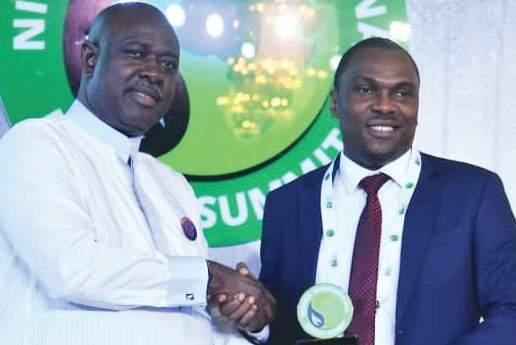
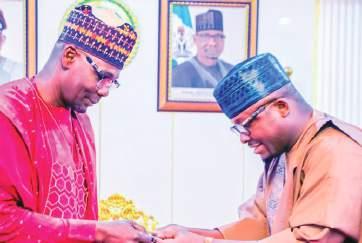
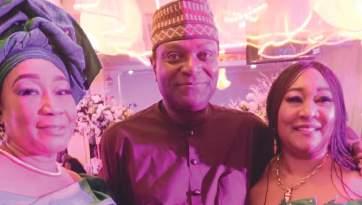
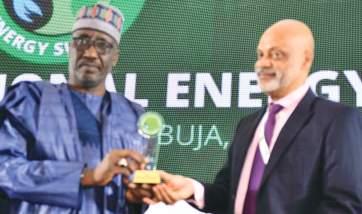


Nigeria’s history is laced with broken promises. Political leaders promise and the citizenry is invariably let down. Recently she has had to deal with several difficult issues, including rising crime rates, collapsing currency, chronic inflation, and the consistent increase in fuel prices. The country is on the edge of chaos as President Bola Ahmed Tinubu’s administration struggles to address these complex problems. Although some of these urgent issues have been addressed with commendable effort, many Nigerians wonder as to the effectiveness of the government’s plans, as it appears to be a game of chance-trial and error.
In May 2023, upon taking office alongside President Tinubu, Vice President Kashim Shettima warned Nigerians to expect a potentially difficult start, stating, “The starting point might not be rosy, let me be very honest with you”. He acknowledged the “albatross” of the oil subsidy and the detrimental “dual economic system” caused by multiple exchange rates, indicating the new administration’s awareness of the nation’s economic challenges. However, being aware of an illness is not the same as knowing how to remedy the ailment. “The Nigerian foreign exchange market is currently facing pressures from increased demands, causing a continuous decrease in the value of naira.” This Statement was made by Yemi Cardoso, the CBN governor when he was summoned by the lower chamber of the National Assembly over the state of the economy as well as the free fall of the naira. Cardoso, exasperated, explained that the apex bank has unveiled measures to address the persistent decline in the value of the naira, some of which have already been implemented, like the stringent regulations placed on banks and bureau de change foreign exchange transactions, which have recorded minute positive changes in the nation’s economic situation further that there was a fiscal side to the economic slate of issues.
The economy has been in decline for decades, culminating in inflation at 29%, exchange rates of N1700-$1 with the attendant protests on the streets and across virtual platforms. Inflation although the plight of everyone, disproportionately affects the weakest and most vulnerable members of society. Corruption mismanagement and sheer incompetence have dogged the country for ages. In reaction, the various regimes and administrations have done what they do best, talk. They then follow up with appointments, when they can be bothered, of economic advisers, advisory councils, and expert committees. Despite government pledges to bolster security the crime rate continues to soar. Daily reports of kidnappings, banditry, and insurgencies continue to escalate create a sense of panic. The environment has taken on the feel of a game of
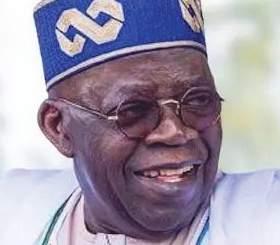
Russian roulette. Even traditional rulers are not safe at least 2 are reported killed in the last 3 months. The ongoing criminal wave clearly demands a more robust and effective law enforcement strategy to ensure national safety.
Closely linked to the security question is the threat of extreme food shortages mostly caused by the farmer-herder crises in different parts of the country, which is making farming increasingly dangerous and hunger is a potent fuel for social unrest. These problems are made worse by the Naira’s depreciation against other currencies, which raises living expenses and reduces purchasing power. Despite the Central Bank of Nigeria’s (CBN) pronouncements and implementation of different monetary policies aimed at stabilizing the economy, most Nigerians
“Indeed, some readers may even find out that Kokori is honest to a fault in his narrative with his matter-of-fact approach. It is intriguing that as a fighter, Kokori is an adroit negotiator. But his language and methods are hardly diplomatic. Kokori tells it as it is; not minding even if his own ox is gored.
Here are some samples:
First, in a meeting with Abiola shortly after the annulment to plan for the struggle that was to follow, Kokori told the president-elect: “You rich people always have people cringing before you, and so people sit down for hours before seeing you. I do not have that kind of time. I am a union man... If I want to see the MD of Mobil, Shell or NNPC, I get to his office and see him within two minutes. If we must work together, you must be able to give the quick attention.”
“Secondly, Abacha’s Minister of Petroleum, Don Etiebet, came to Kokori’s house to convince him on why a strike should be called off. Etiebet issued a subtle threat about what “government can do”, and Kokori asked him to get out of his house. Etiebet promptly withdrew his threat, and the dialogue continued afterwards.
“Thirdly, at a dinner with Shonekan, Kokori gave the Head of Interim Government a piece of his mind: “Sir, I have nothing against you. What we have in place now as a government is best called usurpation of the position of someone else. You did not contest any election. The man who won the election is there, and he has not been given his mandate. You have taken over, and it is not fair.”
“And Shonekan replied: “Mr. Kokori, if you are not going to support me, please, don’t fight me,
are experiencing worrisome financial hardship. This alarming situation has been made worse by the removal of fuel subsidies, as people struggle to cope with skyrocketing fuel costs and their consequences for transportation, food costs, and living expenses in general. There is no question that the fuel subsidy had to go, but the process with which that was done left a lot to be desired. The road to hell, as they say, is paved with good intentions, and Nigerians have definitely hit Dante’s seventh circle of hell, trapped in a relentless cycle of hardship. The mitigation strategies, palliative approaches, so far have been a textbook case of how not to formulate and execute policy. The government has responded to these difficulties by initiating a number of policies
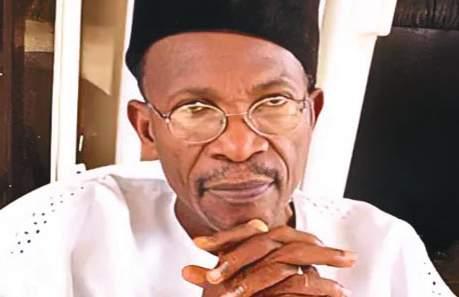
so I can carry out my economic policies.”
“Such sharp and spicy anecdotes abound in the book.
The reader will also find enthralling Kokori’s views on other actors – the Nigerian bourgeois politicians and his fellow labour leaders especially former Nigeria Labour Congress (NLC) ‘s president, Comrade Paschal Bafyau. According to Kokori,
meant to “deal with the underlying causes of Nigeria’s problems”. “Efforts” it is said, are being made to promote indigenous industries, restructure agricultural policies, and execute security reforms to boost economic growth and lessen the negative impacts of the current situation. Critics, however, have labelled them amateurish, poorly thought through and pedestrian. The naysayers dispute their practicality and raise doubts about their effectiveness. To a student of history all this looks and sounds familiar. “We have heard these before” would be the refrain.
While government trumpets minor successes including measures against banditry and kidnapping and increased funding for governors, the overall strategy appears unclear to both observers and experts. The president recently acknowledged the country’s long-standing mismanagement and underutilisation of resources, attributing it to hindered economic growth. Yet government persists in following the path that led to this sorry pass hoping for a different result. Acknowledging the historical context, scepticism surrounds the recently established council of economic advisors, including prominent figures like Aliko Dangote and Bismarck Rewane. Critics question whether these individuals, some with past government ties, represent a genuine change or simply a case of “old wine in a new bottle.” Similar concerns exist regarding the government’s $10 billion foreign exchange initiative, seen by some as a desperate gamble – “playing roulette” – rather than a well-defined plan. The ghost of Margret Thatcher can lecture the current administration about the folly of currency defence. Comparisons are drawn to other nations facing similar challenges, where serious planning has replaced failed policies. The juxtaposition of announced plans with the current realities raises questions about whether the government is genuinely committed to effective solutions or simply engaging in a trial-and-error approach with unclear objectives, a children’s game of Eini Meeni Myni Mo.
Despite all the uncertainties, Nigerians still dare to be hopeful. There is a belief that between stakeholders and government, the people’s tenacity and inventiveness, there exists a pathway toward a long-term fix. The Nigerian people invest this hope in every president, and every regime. They ask; what other choice do we have? This time “it is the turn” of BAT, under him they/we dream that the present difficulties can be overcome and that we can come out stronger than before even in an atmosphere that is unfavourable for innovation, entrepreneurship, and social cohesion. No matter how bleak it seems, we are an optimistic people and we believe in miracles.
•Otelemate J. Georgewill PhD, is a Research Associate at the African Leadership Centre, King’s College London and a visiting scholar at the Centre for Public Policy Alternatives (CPPA).
for his good friend, Kingibe, who has disappointed him not a few times.
“For instance, while Kingibe as Abacha’s interior minister could not meet Kokori in Bama prison, much less secure his release, he at least ensured that a relatively more convenient cell was constructed for him. This sense of disappointment with the establishment was further reinforced after his release from detention 1998 in his encounters with some leaders. These include General Abdulsalami Abubakar, who succeeded Abacha and finally organised a transition programme on which the Fourth Republic is erected; President Olusegun Obasanjo, who calls Kokori his “prison senior”; President Umaru Yar’Adua, in whose government Kingibe was the link; and President Goodluck Jonathan.
“In all these interactions with establishment figures, Kokori’s political naivety was patently on display as Comrade Femi Falana rightly observes in a perceptive forward to the book.
“As a matter of fact, long before the politics of June 12, Kokori had nursed the ambition of writing his memoirs as a labour leader to be entitled “NUPENG is My Life.” That proposed book is now subsumed in this June 12 book. In effect, there are books abridged within this important book.
“This book, written by a major actor in the June 12 struggle, should be read by all those seeking insights into what really happened at that period of Nigeria’s turbulent political history”
As an accomplished labour leader and principled politician, Kokori demonstrated the courage of conviction. His place in history is doubtless secure as a dynamo in the struggle for democracy and justice.
May his tribe increase.
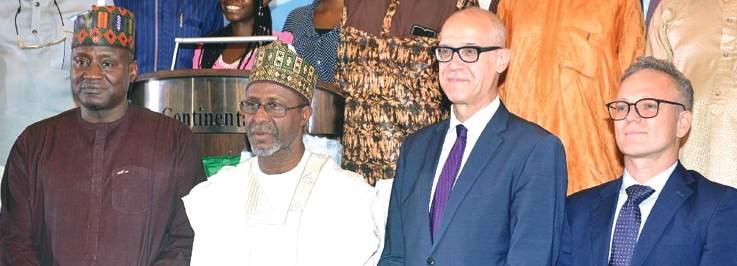
Kingsley Nwezeh in Abuja
President Bola Tinubu yesterday ordered the immediate review of the severance package of retired police officers to reflect the enormity of their contributions and commitment to national growth.
He said as a follow up, he would sign an executive order on 'National Police and Veterans' Day'.
He said the day would be set aside as a day the nation will honour the epic heroism, patriotism, love of country, selfless efforts and sacrifices of police officers (both serving and retired), for the common good of Nigerians.
This came as the Chairman of the Police Service Commission (PSC), Solomon Arase, described police veterans as "national heroes" who remained the epitome of sacrifice, who demonstrated professionalism under the most trying circumstances and put their lives on the line for the country.
President Tinubu spoke at the formal launch of the Nigeria Police Force Veterans' Foundation at the headquarters of the Police Service Commission in Jabi, Abuja.
The event was attended by the Governor of Akwa Ibom State, Umo Eno, Deputy Governor of Ebonyi State, Patricia Obila, Retired Inspectors-General of Police, Aliyu Attah, Sunday Ehindero, Ogbonna Onovo and Suleiman Abba among
others. President Tinubu said he will ensure the immediate review of the pension and severance package of retired police officers.
"As the President of our dear country, I will not only give my full support to the Veterans Foundation, but will also ensure that such areas like improving the pension and severance package of retired police officers are immediately reviewed to reflect the enormity of their contributions and commitment to our country.
"Also, administrative processes towards issuance of an Executive Order will be immediately initiated to set aside a day, perhaps, 5th March (being today, the launch of the Veterans’ Foundation) or 1st April (being the date that the hitherto existing police forces of Northern and Southern provinces were amalgamated to form a unified Nigeria Police Force), as National Police and Veterans’ Day in Nigeria", he said. He stated that "on this day, the nation will honour the epic heroism, patriotism, love of country, selfless efforts and sacrifices of our police officers (both serving and retired), for the common good of Nigerians. "Furthermore, it will also serve to immortalise in our consciousness the habit of thought and of action to labour steadily and to commit selflessly with courage and hard work beyond personal enhancement and self-interest, for our collective peace
and security of our nation".
President Tinubu further stated that the national police and veterans day "will also serve to immortalise in our consciousness the habit of thought and of action to labour steadily and to commit selflessly with courage and hard work beyond personal enhancement and self-interest, for our collective peace and security of our nation".
In his remarks, Chairman of the Police Service Commission (PSC), Solomon Arase, described police veterans as "national heroes" who
remained the epitome of sacrifice who demonstrated professionalism under the most trying circumstances, and put their lives on line for the country.
"The retired police officers whose welfare we seek to improve by the establishment and launch of this Foundation are our national heroes. Heroes of peace.
"They remain the epitome of sacrifice who demonstrated professionalism under the most trying circumstances, and put their lives on line for the country", he said.
"They are exemplars of humanity and humaness toward people who some might say deserved none. We should, therefore, be constantly inspired by the commitments and courage of our retired Officers and I consider this an inescapable call to national duty for these senior citizens of the force to be shown love, assistance and support as our collective token of appreciation for their great journey of achievements for our country’s stability and peaceful co-existence", he said.
Arase called for the support of
Nigerians to actualise the foundation's goals.
"As we embark on this journey of mobilising support and assistance for the welfare of the retired members of the Nigeria Police, it is important to note that this noble project cannot be actualised without corresponding understanding, cooperation and love from the members of the society.
"I, therefore, urge everyone to get involved in this noble act of humanity and humaneness by supporting the foundation in putting smiles on the faces of our veterans", he said.
Emma Okonji
Telecoms operators have concluded the first phase of Subscriber Identification Module (SIM) card disconnection, with plans to begin the second phase disconnection on March 31, THISDAY learnt yesterday.
It followed the disconnection of 42 million SIM cards in five days, beginning from February 28, according to directives from the Nigerian Communications Commission (NCC).
Chairman, Association of Licensed Telecoms Operators of Nigeria
The Chairman of the House of Representatives Committee on Justice, Olumide Osoba, yesterday said measures must be urgently adopted to ensure the safety and wellbeing of children on the internet.
While declaring open a public hearing on the bill, he said the safety and wellbeing of children in the digital age should be of utmost priority.
"The internet has undoubtedly revolutionised our society, connecting people from all walks of life and providing countless opportunities for learning, growth and entertainment.
“However, it also brings with it risk, particularly for the vulnerable minds and has unfortunately given rise to various forms of violence, including cyber bullying, harassment, and even exploitation.
“As responsible members of this society, it is our duty to ensure that our children are shielded from such harm," he said.
The lawmaker added that the proposed bill not only acknowledges the potential danger online violence poses to the youth, but also aims to put effective measures in place to prevent and address such incidents.
"By setting up regulations to restrict access to harmful content, imposing stricter penalties for
perpetrators, and promoting digital literacy programmes, we can create a safer online environment for our children to explore and thrive in," he added.
He further said that the bill not only focuses on protection but also embraces the importance of fostering responsible digital citizenship.
"By empowering our children with the knowledge and skills necessary to navigate the online world safely we can actively engage them in their own protection.
“This bill demonstrates an understanding that prevention and awareness are equally essential components in countering online violence," he said.
(ALTON) and spokesperson for Telcos, Gbenga Adebayo, who spoke yesterday, told THISDAY in a telephone conversation that the Telcos had concluded on the first phase of disconnection of 42 million SIM cards.
According to him, the disconnected 42 million SIM cards were registered before 2022 to devices such as Mifi and Tablets, but the subscribers who registered the SIMs, failed to submit their NIN for those registered SIMs.
He however said the second phase of SIM card disconnection, which would begin March 31, would be focused on subscribers who submitted their NIN but the name on the NIN did not correspond
with the names on the multiple SIM cards that are linked to the NIN.
“All SIM cards without NIN have been disconnected, and it took us five days to disconnect 42 million of such SIM cards, according to the regulatory directive from NCC.
“We expect affected subscribers to provide their NIN, verify it with their SIM registration records, in order to get their SIM cards re-connected. This is the first phase of disconnection.
“The second phase disconnection, which will begin March 31, will be focused on those that submitted their NIN, but the name on the NIN did not match with the names on the multiple SIM cards that are already attached to the NIN,” Adebayo said.
He explained that telecoms
operators have commenced sensitising subscribes by sending them messages to verify their NIN-SIM linkage before March 31, to avoid disconnection.
Giving further explanation on the number of SIM cards that have been re-connected, after the 42 million disconnected SIM cards, Adebayo said telecoms operators had commenced the immediate reconnection of SIM cards of those subscribers that had submitted their NINs, and had them linked and verified.
He however said he would not be able to give the exact number of re-connected SIM cards, until audit report has been submitted to the NCC.
Sunday Aborisade in Abuja Plenary at the Senate was yesterday delayed for about 30 minutes following power outage. The outage was caused by the faulty generator powering the Senate wing of the National Assembly.
The development threw the Red Chamber into partial blackout as the lawmakers awaited the restoration of power supply.
President of the Senate, Godswill Akpabio, commenced plenary
after power was restored some minutes later.
Akpabio apologised for the outage and the heat in the Chamber, disclosing that about nine offices still experienced power outage as work was ongoing to rectify the situation.
Investigation by THISDAY revealed that air-conditioners in the office of about 20 senators are currently not working.
Akpabio said, "They are still working on the the light. it went off since morning. It is even affecting
some of the offices on the fourth floor, we have about nine offices that they have not been able to rectify but they are working on it.
"They have assured us that before 1 o'clock the light will be okay. However, I have noticed even the press (journalists) some of them are fanning themselves at least they feel the heat also.
"If it gets too hot then we may have to adjourn for a while to allow them to conclude but they are working on it. I apologise for any inconvenience."
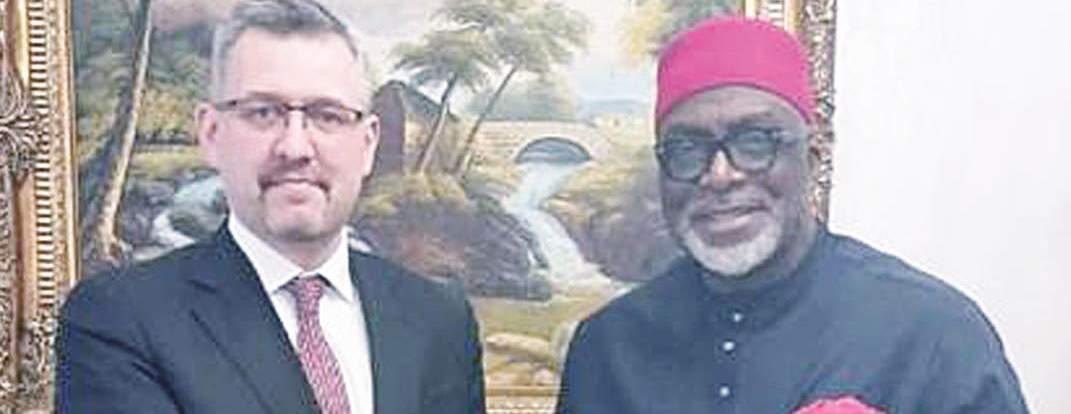
chuks okocha in Abuja, yinka Kolawole in Osogbo and James sowole in Abeokuta
To mark his 87th birthday, former President Olusegun Obasanjo, yesterday, made a public presentation of his new book, titled, "The Art of Leading: Unconventional Wisdom from Biblical," in Abeokuta, the Ogun State capital.
Speaking at the event held at the Olusegun Obasanjo Presidential Library (OOPL) Marque, Obasanjo emphasised the importance of leadership, particularly for Africa. He said without leadership the continent could neither move forward nor fast.
According to a statement on
Tuesday by Obasanjo’s Special Assistant on Media, Kehinde Akinyemi, the Bishop of Catholic Diocese of Sokoto, Hassan Kukah, said at the ceremony that leaders had to be obedient as well as instil values in the discharge of their duties.
Kukah, in his review of the 13-chapter book, said the book spoke on how Christians could make impact in politics, stressing that Nigerian leaders must cooperate with the grace of God.
He said Christians in politics must infuse values into the system, which must be evident for all to see.
The cleric added that the leadership recommended in the book was leadership for service.
Special guest of honour and former president of Ghana, John Mahama, in his remarks, said leaders should lead with wisdom.
Mahama said leaders must seek divine guidance and embrace values worthy of emulation.
Former President of Slovenia and Chairman of Club De Madrid, Danilo Turk, said at the occasion that the club was currently involved in establishing a body that would look at fighting corruption around the world.
Turk said the club would not get tired in its quest to ensure that democracy succeeded around the world. He added that it was important that the people were given a choice, as democracy should be
beyond the elite in any country. Former President Goodluck Jonathan identified access to justice, quality of elections, and tribalism as some of the factors working against quality leadership in Africa.
In his welcome address as chairman of the lecture commemorating Obasanjo’s 87th birthday, Jonathan said there was need to look at the issues of winner-takes-it-all in politics.
He stated that when a president was elected, he was not just the president of his party, but a president of all, adding that whenever a serving president brings an opposition on board his team, it tends to bring quality and inclusiveness into governance.
Alex enumah in Abuja and Gbenga sodeinde in Ado Ekiti
The police in Ekiti State have arraigned one of the alleged criminals, Bubuga Lede, 25, who murdered two traditional rulers in Ekiti State, while attempting to kidnap them.
The court has therefore ordered the defendant to be remanded at the Correctional Custody in Ado-Ekiti for 30 days by the Magistrate court.
In a similar development, Jude Iheme and Chika Madukwe accused of kidnapping and killing the traditional ruler of Amanze Obowo Autonomous Community of Imo State, Eze Basil Njoku, were to face fresh terrorism charges at the Federal High Court, Abuja, on March 12.
Police prosecutor, Inspector Osuolale Yomi, had informed the Magistrate Court in Ekiti that there was probably cause to ordered the remand the defendant at the Correctional Centre in Ado-Ekiti.
Inspector Yomi, said the defendant was reasonably suspected to have committed an offence conspiracy to kidnap, attempt to murder and murder of Oba David Babatunde Ogunsakin and Oba Samuel Olatunde Ishola.
The prosecutor also alleged that the defendant attempt to kidnap Oba Samuel Adebayo Fatoba and Bamidele Ibikunle Joseph (Driver).
He said the offence was punishable under Section 280, 241 and 234 of the Criminal Law of Ekiti State 2021, within Ekiti Magisterial
District on 29th day of January, 2024. Inspector Yomi said the defendant was arrested in Ikole-Ekiti on January 29, with offensive weapons, adding that the duplicate case file has been forwarded to the Ekiti State DPP for legal advice.
The defendant was represented by Barrister Olusoji Oladele.
The Magistrate, O. F. Bamidele, ordered the remand of the defendant at the Ado-Ekiti Correctional Custody for 30 days pending legal advice from the DPP and adjourned the case till April 24, for hearing.
In Imo, Iheme, 52 years and of Amagwu Amanze Obowo Local Government Area of Imo; and Madukwe, 42 years, of Ndi-Uche Etiti Omuimo Local Government Area also of Imo State were said to have killed the traditional ruler on December 17, 2022.
They were accused of killing the monarch while coming from the Federal Medical Center, Umuahia after kidnapping and collecting a ransom of N4 million cash from his family.
The Inspector General (IG) of Police had filed a 3-count terrorism charge against them marked FHC/ ABJ/CR/575/2024.
The two defendants, alongside others said to be at large were said to have conspired to commit felony to wit, acts of terrorism contrary to Section 26 of the Terrorism Prevention and Prohibition Act, 2022.
They were also said to have armed themselves with guns and offensive weapons, attacked,
kidnapped and killed the monarch on December 17, 2022.
The defendants were accused of failing to volunteer information at their disposal to security agencies, which could have led to apprehension of other kidnappers contrary to section 16 of the same Terrorism Act.
When the charge was read to them before Justice Binta Nyako, they pleaded not guilty.
Responding, prosecution lawyer, Mr Simon Lough, SAN, informed the court that the prosecution has
amended the charges following the arrest of more suspects by its operatives.
He requested for a date for the other suspects to be brought to court to take plea in the amended charges.
Subsequently, trial judge, Justice Binta Nyako granted the request and fixed March 12 for the fresh arraignment.
The Judge ordered that the two defendants be remanded at Kuje Correctional Center in Abuja, and be returned to court on the adjourned date.
In his congratulatory message, former Vice President Atiku Abubakar said, "Olusegun Obasanjo's 87 years of sojourn on earth has been eventful, and his services to Nigeria have been invaluable."
According to Atiku, "It is, therefore, fitting that on this special day of his birthday, we give due recognition to the man, who has given his all to the growth and unity of our dear country.
"I know first-hand, that only very few Nigerians can rival the achievements of Chief Obasanjo.
President Obasanjo’s life continues to be a lesson in dedication and qualitative leadership.
"His contribution to Nigeria as a nation remains unrivalled. May God bless you with many more years of health and dedication to Nigeria and the world.
"On behalf of my family, I wish to heartily felicitate with my former boss and a man who indisputably gives best expression to the beauty of the diversity of the country we all love."
Former Senate President Bukola Saraki said regarding Obasanjo, "From the years spent by your side as your Special Assistant on Budgetary Matters, witnessing your leadership first-hand has not only shaped my own approach but has also served as an invaluable blueprint for many others."
Saraki said, "As the nation and the world celebrate with you today, Your Excellency, please accept heartfelt wishes from myself and my entire family.
"Happy Birthday, Sir! May your legacy of leadership and service continue to inspire generations
to come."
Ogun State Governor Dapo Abiodun described Obasanjo as a leading voice in the quest for political emancipation and good governance.
Acknowledging Obasanjo for being deeply connected to his roots, Abiodun also praised him for being a respected democratic leader globally. The governor stated, "Baba has become a world-respected democratic leader, a detribalised Nigerian, and a Pan-African whose passion and vision is for Africa that is being led by quality leadership for the desired economic development.
"Baba is deeply connected to his roots. Baba's passion for his culture and tradition is unparalleled. Baba remains the leading voice in his quest for political emancipation, good governance, anti-corruption and social justice."
Osun State Governor, Senator Ademola Adeleke, described Obasanjo as a patriot, who inspired faith in Nigeria, and praised him for making service to the country a point of call.
In a statement by spokesperson to the governor, Mallam Olawale Rasheed, said Adeleke saluted Obasanjo for his selfless contributions towards the advancement of Nigeria, and hailed him for the sacrifices and moral support put into making sure that Nigeria navigated through turbulent times.
Secretary-General, Ohanaeze Ndigbo, Okey Emuchay, said the former president had continued to be a worthy role model to the Igbo race, hence, the show of love for Obasanjo.
chuks okocha in Abuja
Stakeholders of the Peoples Democratic Party (PDP) in Ondo State with the party's National Working Committee (NWC), yesterday, met in Abuja to strategise on the mode of election to be adopted for the primary exercise.
The meeting was to discuss whether to adopt a consensus option or to adopt a direct or indirect primary election for the election of the gubernatorial candidate.
At the start of the strategy meeting, leader of the PDP in the southwest zone, Governor Seyi Makinde disclosed the agenda of the meeting
The party was expected to agree which of the three senatorial zones of the state, would produce the next governorship candidate of the party.
According to Governor Makinde, "We have three points to discuss which is the mode of the primaries. If possible, to have a consensus and also zoning,
"This is going to be like an interactive session. We want to know your opinion and to also if possible achieve these three important points
"I also emphasise that what is before us is very very important. I had that there are going to be so many aspirants and at the end of the day only one candidate will emerge and this one candidate that
will emerge will be very important to us, even go ahead and claim the government house.
"So, why we are making this contribution during our discussion, I want us to be conscious and watch our words so that at the end of the day we can achieve our aim."
Earlier, the acting national chairman of the PDP, Amb. Iliya Damagum, said the meeting was part of the fulfillment of the process of the primaries that was before the party.
"Three important items are being mentioned by National Organising Secretary (NOS) in the course of interactive meeting. We'll discuss the possibilities of how to achieve
these three times.
"Why we invite you to express and talk freely I want to enjoy all members when you are ask to say your views. Please, we should talk with caution. The critical thing that is before us which is the primary before us and eventually the election coming up.
"I want to also reiterate that there is going to be one candidate and I know so many contestants that are interested in this but it's only going to be one candidate that will emerge," Damagum told the stakeholders.
All governorship aspirants and major stakeholders were at the meeting.
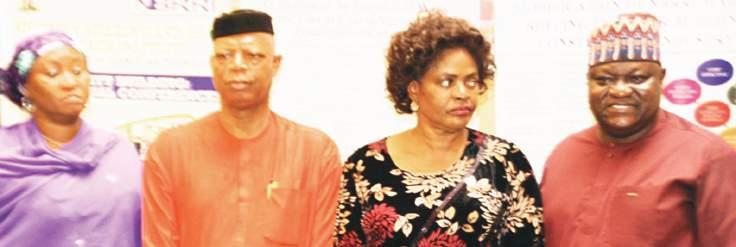
L-R: Director, Planning and Research, Federal Ministry of Innovation Science and Technology, FMIST, Salamatu Muhammed; Director, Finance and Account, FMIST, Ayansola Olufemi; Permanent Secretary, FMIST, Mrs. Esuabana Asanye and Director General, Nigerian Building Road and Research Institute, NIBRRI, Prof. Samson Duna, during a facilities tour by the Permanent Secretary to NIBRRI in Abuja... recently PhOTO ENOCK REUBEN
Michael Olugbode in Abuja
The United Nations (UN) yesterday decried illegal trade in wildlife and forest product, insisting that low enlightenment, weak legislation and implementation among other gaps continue to impede effective prosecutions of offenders.
Speaking at this year's commemoration of the World Wildlife Day (WWD), themed: “Connecting People and Planet: Exploring Digital Conservation”, in Abuja, the Country Representative, United Nations Office on Drugs and Crime (UNODC), Oliver Stolpe, said two thirds of all seizures involving Nigeria were reported by the authorities of other countries.
"This suggests that interception capabilities still need to be strengthened, while enhanced information exchange and cooperation with relevant authorities in countries of origin, transit and destination is necessary," he said.
He added while quoting the UNODC 2033 report that: "Nigeria is a key transit hub and consolidation point for various forms of illegal trade in wildlife and forest products, especially for pangolin, ivory and rosewood.
"These products are sourced both from Nigeria as well as from other countries in the region including Cameroon, Gabon, the Central African Republic, the Democratic Republic of Congo, Liberia, Cote d’Ivoire and Benin Republic.”
According to UNODC’s World Wildlife Seizures Database, he said there were more than a 1000 records between 2011 and 2020 which indicate Nigeria as a source, transit
or destination country.
"Another finding of the research suggests that armed groups are increasingly involved in the illegal harvesting and trafficking of rosewood, with nine park rangers losing their lives in violent encounters with persons involved in illegal logging in the Gashaka-Gumti National Park. in general, it appears that illegal logging activities continue, despite the 2018 trade suspension of rosewood from Nigeria," he said.
The UN body called on religious and traditional leaders to partner with the government in enlightening Nigerians on the importance of
preserving and protecting Nigeria’s rich biodiversity.
Also, in commemoration of the World Wildlife Day celebration, the Minister of Environment, Balarabe Lawal, emphasised the importance of digital innovation in conserving biodiversity and protecting wildlife.
Abbas who made the disclosure in Abuja, highlighted the significant role of technology in safeguarding the planet's extraordinary biodiversity.
According to him, there is need to leverage technological advancements to combat illegal wildlife trade, mitigate habitat
loss, and address the impacts of climate change.
In addition, the Food and Agriculture Organisation of the United Nations (FAO) Country Team Leader, Dr. Otto Muhinda, emphasised the importance of recognising emerging and re-emerging diseases, as they pose a significant threat to global health. He underscored the need for coordinated efforts to prevent outbreaks and mentioned the collaborative initiatives undertaken by global organisations such as the FAO and the United Nations Environment Programme.
Drawing attention to Nigeria's own challenges, Muhinda cited examples of zoonotic diseases prevalent in the country, including Lassa fever and anthrax. He emphasised that wildlife serves as a reservoir for many of the diseases, with 60 per cent of zoonotic diseases originating from animals.
Also, the federal government in order to ensure a healthier, cleaner, and more sustainable environment on Tuesday inaugurated the Working Group on Environmental Standards for the Sustainable Procurement Environmental and Social Standards Enhancement (SPESSE) Project
Inaugurating the project in Abuja, Lawal, explained that the project was a collaboration of the World Bank and the federal government through the Federal Ministry of Environment, Finance, Budget and National Planning.
“It is important to note that this project's goals align seamlessly with President Bola Tinubu's vision for a more transparent procurement process. Transparency is the cornerstone of good governance, and by enhancing our environmental and social standards, we are taking a significant step towards achieving this objective.
Adibe Emenyonu in Benin City
A group known as Concerned Edo Citizens for the second day yesterday blocked the Auchi axis of the Benin–Ekpoma–Auchi-Abuja Highway over the abandonment of the reconstruction work started since 2013.
The group mobilised residents and other road users making the road completely impassable at the popular Jattu Junction. It also mounted canopies, made bonfires and cooked food and meat for the people.
The protesters also got the sympathy of the truck drivers’ union within the axis as they deployed their vehicles to block the junction which is a gateway to vehicles plying the highway .
The blockage witnessed a long stretch of trailers blocking one lane
of from Jattu junction to Okpella and Agbede with a lot of inconvenience to other road users. A similar scenario occurred last
year which led to assurance by the officials of the Federal Ministry of Works through two royal fathers from the area, the Otaru of Auchi and
the Ogieneni of Uzairue to kick-start the rehabilitation of the road.
Similarly, the senator representing Edo North at the Senate, Adams
Oshiomhole recently lamented that the paltry sum of N200 million was voted for the reconstruction of the road in the 2024 budget.
Onyebuchi Ezigbo in Abuja
Labour unions at the Federal Neuropsychiatric Hospital Enugu (FNHE), have asked President Bola Tinubu to help resolve the brewing crisis in the health institution arising from the suspension of the Medical Director, Prof. Monday Nwite Igwe.
The unions under the auspices of the Joint Health Sector Unions (JOHESU), National Association of
Segun James
Governor of Lagos state, Mr. Babajide Sanwo-Olu has appointed a young and prominent grassroots politician from Surulere and three former student leaders in state-owned tertiary institutions as Special Advisers.
This came as the governor announced an increase in the bursary allowance for students of Lagos origin to N60,000 and scholarship grant from N200,000 to N225,000 for both indigene and non-indigenes of the state as well as the poor.
However, the appointees were Adeola Adewunmi, Eniola Opeyemi, Kayode Samuel, and Giwa Moor.
The governor announced the appointment yesterday at an interactive session with the students' union leaders and stakeholders in the state held at Adeyemi Bero Auditorium
with the theme: "Students as Strategic Partners in the Governance Process: Challenges and Prospects for the Youth Development."
Sanwo-Olu included the students in the appointment following the request by the Lagos Chairman of the National Association of Nigerian Students (NANS), Lekan Alimi, who said there was a need for the student union to have representatives in government, who would interface between the government and the students.
Sanwo-Olu told the students they were 'important stakeholders in the governance of Lagos State' and urged them to believe in themselves, adding that the country expected so much from them.
"The country is about you and believes in you. You have to believe in yourselves too," he admonished them.
Commissioner for Tertiary Education, Tolani Sule, said the interactive session was a further demonstration of Sanwo-Olu's administration's commitment to quality tertiary education and youth development."
The Lead Speaker, former Vice Chancellor of Lagos State University, Professor Lanre Fagbohun, urged government to be sincere adding that, “where there is sincere governance, students are always supportive.”
Fagnohun further urged government to always make room for consultation with the students adding that students need constant thorough support.
Alimi, while speaking on behalf of the students, said the union had gone beyond the era of protests and promised to work with the government.
"We are in the era of participation in governance," he said.
Nigeria Nurses and Midwives (NANNM), Association of Resident Doctors (ARD), and Medical and Dental Consultants Association of Nigeria (MDCAN) made the appeal in a letter dated March 5, addressed to the president.
In the letter signed by the branch Chairman of JOHESU, Obinna Eze, NANNM Chairman, Eric Ugwu, Association of Resident Doctors FNHE branch, Dr. Ezea Christian and Chairman MDCAN in FNHE, Dr. Nnabuchi Jane, the unions urged Tinubu to ensure transparent reinstatement by demanding a detailed report.
According to the labour groups, Igwe was suspended on September 20 last year over allegations by a civil
society organisation without proper investigation.
They lamented that despite full cooperation, they have not received feedback from the Ministry of Health's investigation team.
The s unions said that Igwe, who is known for his dedication and compassion, should receive fair treatment and respect, not unfounded accusations and unfair penalties.
“Despite our unwavering cooperation, we find ourselves in a distressing situation where there has been a deafening silence from the ministerial investigation team and the Ministry of Health regarding the outcome of their inquiry.
“Moreover, the ‘indefinite sus-
pension’ was changed to further suspension on January 26, with an added three months extension till 23 of March, 2024, without recourse to the public service rule that borders on suspension in line with transparent justification and establishment of a prima facie case. “We consider the administrative infraction cynical. It has only exacerbated our concerns that justice most likely will be denied in this case,” the group said.
It implored the Federal Ministry of Health and Social Welfare to reconsider its decision and afford Igwe the dignified treatment he deserves as one of the highest performing hospital administrators when compared to his predecessors from the same hospital.
The House of Representatives Committee on Privatisation and Commercialisation yesterday summoned the Ministers of Marine and Blue Economy and Transportation over irregularities in the concession of seaports in Nigeria.
The committee also summoned the Managing Director of the Nigerian Ports Authority (NPA), the Director General, Bureau of Public Enterprise (BPE) and the Director General Infrastructure Concession Regulatory Commission (ICRC).
The Chairman of the Committee, Hon Ibrahim Hamisu, during an investigative hearing on Tuesday
expressed concern at their absence despite being invited to answer questions on their roles in the concession of the seaport terminals.
Hamisu said that the hearing was to address a situation where five terminal operators whose concession period had expired since 2021 had been allegedly operating illegally since then.
"Some seaport terminals were given out on concession and five of them, their duration has expired. Some are from Lagos and some are from Port Harcourt. They were trying to see that their approvals were renewed since 2021. Somehow, this renewal were not granted to them, but they have been operating
since then.
"So we deemed it fit to crosscheck and find out what the problem is. So we decided to invite them, and all the stakeholders like the Ministry of Blue Economy, ICRC, BPE, Ministry of Transport. After inviting them here today, unfortunately only the seaport terminal operators are here. So we have discussed with them and have given one week period within which they should appear before this committee on March 12 by 10 am, so we discuss with them, we see where the problem is and we take action so that we bring this lasting solution to the problem.

Founder, LYD Consulting and host of the RECODE Conference, Bankole
Alliance Franchise, Ikoyi, Lagos...recently
WaleIgbintade
The National Drug Law Enforcement Agency (NDLEA) yesterday rearraigned a Lagos socialite, Mrs. Funmilola Arike Ogbuaya, popular known as Ariket, alongside her alleged convicted co-conspirator, Odeyemi Omolola, who is currently serving 25 years jail-term, for drug trafficking.
The duo, who are also known
as Funmilola Ogundipe and Ariyo Monsurat Olabisi respectively, were re-arraigned before Justice Deinde Isaac Dipeolu of a Federal High Court Lagos on a four count-charge of conspiracy, unlawful possession, aiding and abetting and attempt to smuggle 1.595 kilograms of Cocaine to Saudi Arabia. They were first arraigned before Justice Hadizat Rabiu-Shagari (now
Judiciary Workers in the Osun State, under the auspices of the Judiciary Staff Union of Nigeria (JUSUN) yesterday suspended their over three-month strike.
This is contained in a statement signed by the chairman of the union, Comrade Gbenga Eludire.
According to Eludire, workers in the state judiciary will resume on Monday, March 11.
According to the statement
“Comrade Oluwagbemiga Olakunle Eludire hereby stand on the authority and the directives of the National Executive Council
of JUSUN under the leadership of Comrade Marwan Mustapha Adamu, the National President of JUSUN to state as follows: “Pursuant to the tripartite Memorandum of Agreement signed between the Government of Osun State under the Governorship of Senator Ademola Nurudeen Jackson Adeleke, the Management of Osun State judiciary under the supervision of the Hon, Justice O.A. Ojo, the Hon. Chief Judge of Osun State and, the JUSUN leadership under the supervision of Comrade Marwan Mustapha Adamu, the National President of JUSUN;
Francis SardaunainKatsina
The Federal Ministry of Labour and Employment yesterday warned apprenticeship trainers in Katsina State against employing children below the age of 12 as apprentices in their training centres.
The Deputy Director, Skills Development and Certification Department of the Ministry, Dr. Tiza Chiila Shaakaa, gave the warning during the sensitisation of apprenticeship and traineeship programmes in the state.
He said any apprenticeship centre that engages trainees below the
approved age of 12 years would face the wrath of the law as the federal government is committed to taming child labour in the country.
Shaakaa said: “The recommended age for apprenticeship is 12 years. Anybody training an apprentice below 12 years is indulging in child labour and violating the Labour Act CAP 198 Section 49 to 63.
“If you train anybody below 12 years, the same law authorising you to carry out apprenticeship will come after you. So, all of you having apprentices under you, please make sure they are above 12 years.”
Blessing Ibunge in Port harcourt
The Rivers Unity House Foundation (UHF) has announced its readiness to commence Education Champions League (ECL) in Rivers State.
The group explained that the education league, which would be known as ECL Quiz and Debate Competitions for secondary schools, is aimed at promoting quality education
and reading culture amongst the young people in the society.
The competition, a part of the August Meeting series, organised by the UHF, would also hold other conversations that could help the intellectual well-being of the community at large.
The competition has been slated for launch on March 22, in Port Harcourt, during the 2024 edition of the August Meeting series by the foundation.
a Court of Appeal Judge) sometimes in 2017, on a five count charge of conspiracy, aiding and abetting, unlawful possession of banned
drug, and attempt to export the said banned drug to Saudi Arabia.
While the convicted Odeyemi Omolara was arraigned on the
charges of conspiracy, unlawful possession of banned drug, and attempt to export the said banned drug to Saudi Arabia, Ariket was
arraigned on charges of conspiracy, aiding and abetting and procuring the convict for the purpose of trafficking the prohibited drug.
Adibe EmenyonuinBeni-cityand Ahmad Sorondinki inKano
The Coalition of Registered Political Parties (CRPP), Edo State chapter, yesterday in Benin-city warned the state Governor, Mr. Godwin Obaseki, to jettison his alleged impeachment plan against his Deputy, Philip Shaibu,
and start preparing his handover note for his successor.
Similarly, the Kano State Commissioner of Police, Mr. Mohammed Usaini Gumel, has warned Divisional Police Officers (DPOs) against human rights violations while discharging their official duties. The CRPP Chairman,
Samson Isibor, gave the warning in a statement.
Isibor, who noted that Shaibu has not committed any offence for choosing to contest the governorship election, said the deputy governor was only exercising his right and that any plan to impeach him could only lead to crisis in the state.
He said: “The CRPP in its emergency meeting on March 3 deliberated on the political development in Edo State, particularly the purported plan to impeach the deputy governor being mooted by Governor Obaseki and the Speaker of the state House of Assembly, Hon Blessing Agbebaku.
Segun James
As Nigerians continues to groan under the weight of rising poverty, Political Economist and Professor of Strategy and Development at the Commonwealth Institute of Advanced and Professional
Studies, Anthony Kila, has thrown his weight behind the federal government moves to import and subsidised food as a means of dealing with the current food crisis facing the country.
Kila, who made his position known while addressing an international forum of African and
Caribbean political economists on a webinar organised to discuss economic and developmental opportunities in African and Caribbean countries, said the reality is that Nigeria is dealing with an inflation induced largely by sudden and astronomical increase in cost or production
and distribution as well as reduction in volume and variety of production.
He insisted that a pragmatic short-term solution would be to import and subsidise food for as many people as possible; and that is what the federal government is doing.
John Shiklam in Kaduna
The President of the Supreme Council for Shariah in Nigeria, (SCSN), Sheikh Abdurrasheed Hadiytullah, has said that concrete steps should be taken to address the endemic corruption and
wasteful spending in Nigeria.
Hadiytullah made the call on yesterday in Kaduna at the annual Pre-Ramadan meeting of the SCSN.
According to him, “corruption is like a cancer, which destroys everything noble and
undermines the principles of good governance.”
He lamented that despite the huge amount spent in the power sector and in fighting insecurity, there is nothing much to show as Nigerians still suffer from insecurity and poor electricity.
Hadiytullah said that “it is perfectly justified to ask our leaders, why should the ordinary Nigerian be made to bear the brunt of insecurity while trillions of Naira being spent on the security agencies without positive result or accountability?
Sunday Okobi
A group, Citizens’ Gavel, has launched an Artificial Intelligence (AI) platform called Podus AI to assist indigent Nigerians to get access to justice as well as legal research assistance. The
app is basically 98 per cent of Nigerian law.
The group explained that the Podus AI is trained to point to the direction of prioritising cases of emergency like police extortion, brutality, fundamental rights issues, illegal arrest, and illegal
detention. It helps to solve the situation that actually threatens the freedom or the fundamental human rights of the average Nigerian.
Citizens’ Gravel said the platform has been made easy and it is user-friendly, “just visit the site
Podus.org, create a case there and it gets assigned to a lawyer, who sees you get justice. It also works through the WhatsApp app by chatting with the mobile number 2347067951851 or the mobile app, or use the SMS which will be launched in the next quarter.”
Gideon Arinzeinenugu
The Enugu State chapter of the All Progressives Congress (APC) has berated the former Director-General of the Voice of Nigeria (VON), Osita Okechuchukwu, for urging the Progressive Governor’s Forum to
remove leader of the APC in the Southeast and governor of Imo State, Hope Uzodimma, as its chairman “before he wrecks the party.”
Okechukwu had called for Uzodinma’s removal for “his mismanagement of the Edo State governorship primary election which
produced three candidates.
In a statement issued by the Enugu State executive chapter of the party and signed by its Publicity Secretary, Mike Ezeanyanwu, yesterday in Enugu, the party said Okechukwu’s penchant to haul insults and baseless allegations
against leaders of the party in the Southeast was disturbing.
It described Okechukwu as an attention -seeking political jobber and a product of media creation, who lacks relevance and touch with his political base in Udi Local Government Area of the state.
Gbenga Sodeinde in ado ekiti
Ekiti State First Lady, Dr. Olayemi Oyebanji, yesterday unveiled a local fabrics empowerment scheme and training centre, Adire Ekiti Hub, to give economic empowerment to the unemployed and widows in the state.
A total of 200 beneficiaries drawn from Ekiti Central senatorial district began the training sponsored by the state Governor, Biodun Oyebanji, and his wife in partnership with the Nike Okundaye Art Foundation. Two batches of 200 participants each drawn from Ekiti North and
Ekiti South senatorial districts are to commence training by next week.
The Adire Ekiti Hub, which has the main building and workshop, was inaugurated by the wife of the Ooni of Ife, Olori Aderonke Ogunwusi with the governor, the first lady and other guests present.
The First Lady, Dr. Oyebanji, said the Adire Ekiti would benefit the state in the areas of provision of sustainable livelihoods, promotion of entrepreneurship, creation of opportunities for economic empowerment and preservation of cultural heritage in the Land of Honour.
Two top teams in Europe, Paris Saint-Germain and Manchester United have emerged front runners amongst several other contenders to sign Nigerian international striker, Victor Osimhen from Napoli in the summer transfer window.
According to UK’s Independenton Tuesday, Osimhen is already being built up as one of the summer window's biggest stories, given a €110m release clause makes him a rare young forward who is available.
There was some surprise he wasn't bought last year in the striker's market, with a host of big clubs interested. That interest remains, particularly among Chelsea and Arsenal, but changed situations at both PSG and United mean they are set to become big challengers.
Sir Jim Ratcliffe's takeover of control at Old Trafford with his minority stake is already seeing a huge focus on recruitment,with the
club keen to completely overhaul their approach.
While the move will be to more intelligent and forward-thinking purchases, there is an awareness of the value of a certain profile of player from time to time and Osimhen is viewed as fitting into both categories due to his age at 25 years old and tactical variety.
PSG are meanwhile considering their options with Kylian Mbappevirtually certain to go to Real Madridin the summer. While senior figures at PSG are insistent they are committed to a new ideology based around the club’s youth system, there is similarly an awareness that a certain clout is needed to complement that. Osimhen's game would fit into that, facilitating the frenetic pressing style that Luis Enrique wants.
It is already building up to be one of the major sagas of the summer.
Nigeria’stop table tennis star, Quadri Aruna’s hope of winning the men’s singles gold of the 13th African Games was dashed last night by Egyptian Omar Assar. Assar claimed the gold in a nailbiting 4-3 result.
It was the third time that the top Egyptian star was going to deny Aruna the chance to have the African Games’ men’s singles gold medal around his neck.
After the Nigerian booked his place in the final to face his perennial nemesis, many followers of the game had looked forward to Aruna finally ending the jinx. But that did not happen as Assar started with aplomb, claiming the first set 11-8. Aruna however bounced back to take the second and third sets 11-2, 11-2.
The Egyptian recovered to take the fourth set 11-7. It became a ding dong affair with Aruna also winning the fifth set in a narrow 11-9.
With the Nigerian leading 3-2 on the card with two sets to go, Assar dug deep to claim the last two sets 11-9 and 11-10 to smile to the podium to claim the men’s singles gold medal while Aruna
settled for yet another silver of the Games.
Earlier, Nigeria’s medal hunts at the Games began with Offiong Edem winning the country’s first medal, a bronze.
The Spain-based star played her best matches in the last 16 and quarterfinal when she defeated the Alhodaby twins – Marwa and Mariam to join the league of medallists in the women’s singles of the Games inside the Accra International Conference Centre.
Set up against defending champion Dina Meshref of Egypt in the semifinal, Edem caved in with a 4-0 defeat to settle for a bronze medal just like she did at the 2019 edition in Rabat, Morocco.
“I am so happy that we could attend the last World Championships in Korea and this helped my game a lot. I want to thank the Nigeria Table Tennis Federation (NTTF) for their support and I believe attending such a competition helped me personally here in Ghana.
“The Egyptians are ahead of us because they attend more competitions than us and we hope if we can get such support, we can return to the top of the game in Africa,” she concluded.

Kylian Mbappe last night became the first player in Europe’s top five leagues to be involved in over 40 goals across all competitions this season. He has scored 22 goals in the French Ligue 1, 8 in the Champions League, 3 in Coupe de France, and 1 in the Super Cup. He has also 7 Assists to his credit this season so far. The France Captain is here seen celebrating his brace against Real Sociedad...last night.
Real Madrid coach Carlo Ancelotti warned his players yesterday that their Champions League last 16 tie against RB Leipzig is not over after taking a slim first leg advantage.
Top coaches from UK-based FCV International Football Academy are expected in Nigeria for the 2nd FCV Gladiator Camp with the sole aim of identifying talents among students at the one-week clinic taking place at Grange School, Lagos from April 1 to 5.
According to Head of Marketing at FCV Academy, Sam Nicholls, outstanding players would be selected for scholarships at the academy in the UK while the participants at the camp would be taught the basics of the sport. He admitted that some Nigerians have been part of the academy in the UK. Nicholls said: “The camp will be unique as it will provide participants
the opportunity to receive elite level coaching from experienced coaches and former professional footballers in England, as well as hear from our Head of Admission what FCV International Football Academy offers to Nigerian students and the opportunities available.
On the gains of the camp, he said: “Nigerian students participating at the camp will get the opportunity to develop their football skills and techniques under the guidance of our UEFA qualified coaches as well as gain tactical knowledge and awareness that will allow them to take their game to the next level.
“This camp provides the participants with the opportunity to
improve and develop their football skills and knowledge through elite coaches’ sessions delivered by our coaching team. It also provides the participants with an insight into what life is like at FCV International Football Academy and how they could benefit by enrolling with us and taking the next steps in their football development,” Nicholls said.
The Briton also acknowledged Nigerian football culture. “We know that Nigeria has a fantastic football culture, with many of its top talents playing in Europe’s top leagues, and particularly the Premier League, as well the Super Eagles regularly playing in the World Cup and competing for the Africa Cup of Nations.
The record 14-time winners scraped a 1-0 lead in Germany ahead of today’s second leg fixture at the Santiago Bernabeu.
"It's a big opportunity to continue in a very special competition – we have to be at our best, because the tie is not over yet," said the Italian.
"We have a small advantage, but we have to be at our top level from the first minute."
Ancelotti also continued to defend England international Jude Bellingham, who was sent off in LaLiga against Valencia on Sunday for remonstrating with the referee.
"He's a player who tries to give everything on the pitch, he's doing very well," said Ancelotti.
"The red card was a mistake – he was a bit frustrated, but he did not say any kind of insult."
Real Madrid midfielder Eduardo Camavinga said he did not understand Bellingham's dismissal.
"He didn't insult anyone, it's very strange, I've never seen that in football, it's very, very odd," said the Frenchman.
Two superbly taken goals, a portrait of a player who stands above the rest, defeated Real Sociedad 2-1 and carried PSG to the quarter-finals of the Champions League, and one small step closer, perhaps, to the European Cup: 2-0 winners in the first leg, any hope of a comeback for Real Sociedad was ended early, by an exhibition from the man about to say au revoir, as he led the team that is still his, until May, to a 2-1 victory in Spain.
Elsewhere, Harry Kane scored his most important goals since arriving in Germany as Thomas Tuchel’s Bayern Munich avoided an upset and reached the quarterfinals with a 3-0 aggregate victory over Italian side Lazio.
Pep Guardiola said yesterday that it is "getting tougher" to win the Champions League as he targets a second consecutive treble with his all-conquering Manchester City team.
Defending champions City, unbeaten in 19 games in all competitions, will take on Copenhagen in the second leg of their last-16 tie at the Etihad on Wednesday, with the cushion of a 3-1 lead.
City beat Manchester United on Sunday to move just one point behind Premier League leaders Liverpool and are through to the FA Cup quarter-finals, where they will face Newcastle.
But Guardiola played down talk of a repeat of last season's heroics at his pre-match press conference on Tuesday. "It's better to be here having already won the Champions League but as I said it (the treble season) is finished," he said.
Spanish media report Madrid will appeal top scorer Bellingham's red card.
The former Borussia Dortmund man is set to start against Leipzig, aiming to add to his tally of four goals in five Champions League matches this season.
Bellingham missed the narrow away win with an ankle problem and his replacement Brahim Diaz netted the only goal.
"The only target is to try to qualify tomorrow for the quarterfinals," he added. "We are far, far away, talking about these things.
"We didn't say last season until we won the final against United in the FA Cup, so we are at the beginning of March."
Guardiola, who also won the Champions League twice as Barcelona manager, in 2009 and 2011, said the bar had been raised in Europe's top club competition.
"It's getting better and tougher," he said. I had the feeling when I arrived at Barcelona in the first years 'OK we will arrive in the semifinals".
"Now, to reach the semifinals is so difficult. The teams are better and the managers are better. Everything is even more difficult than when I was a football player. But in the end, the better teams always go through."
But he played down the notion that winning with City last season – the club's first-ever Champions League crown – was a bigger achievement than lifting the trophy with Barcelona.

Makinde to APC
“For the benefit of everybody, the governorship election in Ondo State is not going to be handed over to anybody. It will be a fight. As PDP, we will fight” –OyoStateGovernorSeyiMakindeaskingPeoplesDemocrsticParty (PDP)membersinOndoState tolearn alessonfromthetheparty’slosstotheAll ProgressivesCongress(APC)inthestate2020govetnorshipelection.


The body of Comrade Frank Ovie Kokori, who died on December 7 last year, will be buried this Friday. The funeral activities will actually kick off tomorrow at his home, Ovu-Inland, Ethiope East Local Government Area of Delta State.
Kokori’s death on his 80th birthday, marked the exit of a labour leader and politician who was courage personified.
The labour leader emerged a national hero when he led oil workers in a paralysing strike to fight for the revalidation of the June 12, 1993 presidential election, which was won fair and square by Bashorun Moshood Abiola. The Abacha junta put Kokori in detention in 1994 and he was only released in 1998 when Abacha suddenly died.
Kokori came out of incarceration emaciated and in poor health. His wife, Esther, who was in the thick of the national and international mobilisation for the freedom of her husband, suffered a stroke and never recovered till she died years after the husband had regained freedom.
A rugged negotiator and a well-educated trade unionist, Kokori efficiently organised the National Union of Petroleum and Gas Workers (NUPENG), a formidable affiliate of the Nigeria Labour Congress (NLC). Often distinguished among labour leaders by his aristocratic carriage, Kokori earned the respect of government and private employers alike. He was proud to be a trade unionist. Kokori’s mien was such that he could not be accused of humility. As NUPENG’s general secretary, he won a lot of benefits for workers using the instrumentality of collective bargaining.
Interestingly, Kokori’s origin in the labour movement was the right-wing United Labour Congress, one of the rival labour centres before the restructuring of trade unions in 1978. He once said with gusto that the flamboyant trade unionist and later businessman, Alhaji Babs Animashaun, was his role model in trade unionism. He once said that imitated Animashaun impeccable dressing. As a young trade unionist, his models were not the left-wing trade unionists such as the legendary Michael Imoudu (Labour Leader Number One!) or Marxists such as Nduka Eze and Wahab Goodluck.
So, in a way, he was an unlikely candidate for the role history beckoned on him to play in the June 12 crisis.
Kokori was also immensely trusted by the oil workers whom he served honestly and diligently. For instance, when the union got factionalised in 1987, the Kokori majority faction tested its popularity by calling an industrially crippling strike to resolve the intra-union dispute. The military government of Babangida had to promulgate a decree to resolve the problem.
In retrospect, it was quite wise of Kokori as a protagonist to have told his own story in his important memoirs, Frank Kokori: The Struggle for June 12, with a forward from the Senior Advocate of Nigeria Femi Falana. The presentation of the book, published by Safari Books Ltd, took place in Lagos on July 25, 2014. The event was chaired by a former Ogun state governor, Chief Olusegun Osoba. Admiral Ndubuisi Kanu, a prominent figure in the June 12 struggle was among the personalities who graced the occasion.
This reporter was exceedingly honoured when Kokori personally brought a copy of the book to his place one rainy afternoon with an “order” to do the review at the launch. It was a similar feeling of a huge honour when Kokori’s eldest son, Kive, invited this reporter to be a member of the national committee to organise the funeral of his father.
The story of Kokori should be popularised for generations because of the immense inspiration embodied in it.
As a tribute to the memory of this remarkable Nigerian nationalist, excerpts from the book review
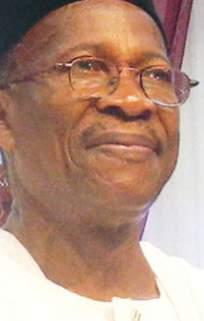
rendered 10 years ago are reproduced below:
“One of the most inspiring quotes of the great African-American writer, Maya Angelou, goes like this: ‘Courage is the most important of all the virtues because, without courage, you can’t practise any other virtue consistently.’ The wisdom condensed in Angelou’s statement is demonstrated in the book under review.
“The author himself describes the book as a “testament” and a good reader will inevitably encounter sober lessons about courage as a virtue in the book. It is also significant that the book, which the author says is 14 years late in coming, is being published to celebrate the 70th birthday of this unquestionably urbane labour leader, who has made indelibly progressive interventions in the politics of his country.
“In his career, Kokori has proved that he is first and foremost a man of organisation. A general without an army could not have fought the epic battles he fought so gallantly and selflessly.
“There was an important background to be found in Kokori’s pre-June 12 political activities. As an accomplished General Secretary of NUPENG, Kokori was nominated to be a member of some of the bodies that prepared the groundwork for the political transition programme of President Ibrahim Babangida.
“Kokori was a member of the 1987/1988 Constitution Review Committee and the subsequent 1988/1989 Constituent Assembly headed by Justice Anthony Aniagolu, which debated the stillborn 1989 Constitution of the Federal Republic of Nigeria. He later emerged as the national financial secretary of the Social Democratic Party (SDP) under the leadership of Ambassador Babagana Kingibe as party chairman.
“Besides, Kokori does not belong to the school of economism in the labour movement. The proponents of economism insist that labour has no business in politics; workers’ struggle should stop in the realm of industrial relations. The debate on this will surely continue in the labour movement. But advocates of “labour in politics and politics in labour ” will readily cite Kokori and his NUPENG and PENGASSAN comrades on a positive note to justify their argument. This would be similar to the way the legendary Michael Imoudu and his comrades are remembered fondly for their combative role in the nationalist struggle. Future historians will examine the political significance of the 1945 anti-colonial strike just as they will seek to know the import of the 1994 anti-Abacha strikes.
“The book is essentially a full disclosure of the audacious role played by oil workers in the struggle to uphold the sanctity of the June 12, 1993 presidential election won by Bashorun Moshood Abiola. During the historic moment, Kokori was the powerful general-secretary of the National Union of Petroleum and Natural Gas Workers Union (NUPENG). Together with the Petroleum and Natural Gas Senior Staff Association of Nigeria (PENGASSAN), NUPENG provided the dynamite for the struggle with effective strikes. The June 12 story could be encapsulated as follows: A presidential election that was to be the climax of a long-winding political transition programme was held on June 12, 1993. Abiola as a candidate of the Social Democratic Party (SDP) contested against Alhaji Bashir Tofa of the National Republican Convention (NRC). As the results of the elections were being put together, the Babangida regime, which organised the transition programme, annulled the election. But an idea that could not be killed had been born. The resistance against the grand assault on the people’s will began in earnest.
“In the process, Babangida was forced out of power leaving behind the interim governmental structure headed by Chief Ernest Shonekan with General Sani Abacha in charge of Defence. As predicted, Abacha sacked Shonekan’s government three months later and inaugurated a reign of terror on the country for five years. In a bid to kill the June 12 idea the junta arrested Abiola, and he died in detention in 1998. Kokori was also incarcerated for four years for the bold and committed leadership he gave for the potent oil workers’ strikes. Many people were killed and several others were detained, jailed or forced to exile. Abacha died suddenly on June 8, 1998 and Abiola also died on July 7 the same year. That is the story in perhaps the simplest form to put it.
“However, when you read books already published on the crisis that the annulment of the election generated, you would discover that the story is indeed a complex one. Just like the civil war, the literature of June 12 is expanding. Indeed our author here has thrown a challenge that his book should “provoke more books” on the June 12 phenomenon.
“In telling his story, Kokori has approached the period of Nigeria’s history covered in the book from a perspective different from those of earlier publications. “At least, the perspective of the book is quite distinguishable from that of the Humphrey Nwosu’s ”Laying the Foundation for Nigeria’s Democracy: My Account of June 12, 1993 Presidential Election and Its Annulment”
“The story of the labour leader should be popularised because of the immense inspiration embodied in it.”
and Omo Omoruyi’s “The Tale of June 12: The Betrayal of the Democratic Rights of Nigerians in 1993.” Professor Nwosu was the chairman of the electoral commission that conducted the election while Omoruyi, as chairman of the Centre for Democratic Studies, was one of the theoreticians of the Babangida’s transition programme. In their respective tales, the two eminent scholars offered theoretical explanations of the tragedy of June 12.
“However, on a refreshing note and without any pretext to a methodological rigour whatsoever, “Frank Kokori: The Struggle for June 12″ is a hard-boiled narrative by a man who made an enormous sacrifice for June 12. The story is told lucidly with some pages reading like a thriller. Events that happened over two decades ago came alive on the pages of the book with Kokori’s animated style. He reported June 12 warts and all thereby providing a veritable primary source for those who may be interested in further research. “It is indeed a frank story brutally told by Frank Kokori. Kokori’s prison notes, letters exchanged between him and his family as well as his random reflections on the Nigerian condition are embodied in the book. He acknowledges the support of his wife and children in the struggle. You will even find the author’s attempt at some poetry.
“All told, readers will probably be surprised that the book is not all brimming with anger and bitterness. Some pages are also laced with humour. While he is unsparing of the political enemies, he is sometimes critical of friends. “What he writes about himself would even sometimes make you chuckle at the author.
“Significantly, Kokori also takes the opportunity of the book to pay passionate tributes to heroes of the struggle for democracy. In acknowledging the martyrdom of Abiola and his wife, Kudirat, who was murdered on June 4, 1996, Kokori provided detailed information on the dynamic of the struggle. For instance, on leaving Abacha’s house in Ikoyi after a meeting facilitated by Kingibe, Kokori was surprised that his phone rang, and it was Abiola telling him to “cooperate” with Abacha who was tragically believed at that time to be working for June 12 in the Shonekan’s interim government.
“Kokori deliberately refers to Abiola in the book as president-elect. His admiration is especially evident for the courage and commitment of Gani Fawehinmi, Beko Ransome-Kuti, Wole Soyinka, Anthony Enhoro, Bola Tinubu, Femi Falana and other great fighters for freedom and human progress. With the rich and sharp insights in the book, it is far from being hyperbolic to say that Kokori has at last offered posterity the untold story of June 12.
“In the process, he has solved not a few riddles and filled in some gaps in the June 12 story.
“Take, for instance, the story of his arrest on the night of August 19, 1994 during the strike, which Abacha found tough to break for some time. For long, the erroneous story that went round even within the pro- democracy movement was that the great reporter who later became Ogun State governor, Chief Olusegun Osoba, was the one who lured Kokori from his hideout to be nabbed by security men. Kokori states explicitly that Osoba was never culpable. Rather, it is clearly reported in the book that it was Fred Eno, a man often described in the media during the struggle as “personal assistant” to Abiola, who gave Kokori a call, inviting him to the point where he was arrested. Kokori says: “As far as I know, Osoba did not betray me. I don’t know the brains that planned the betrayal, but I know the person who lured me out of the hideout – and it was not Chief Segun Osoba.” Eno later told Kokori he was not the person who lured the NUPENG leader to the hands of his captors and that his voice was mimicked. Kokori is not convinced